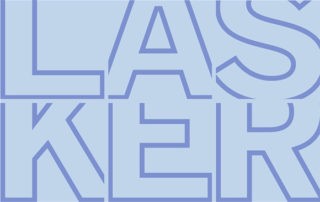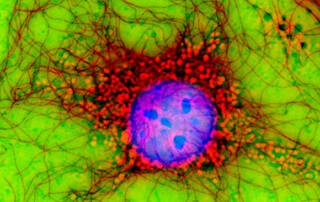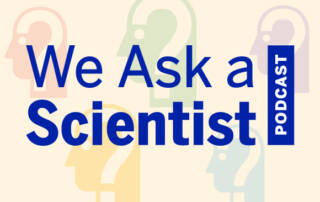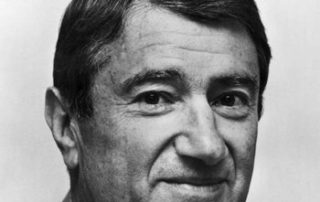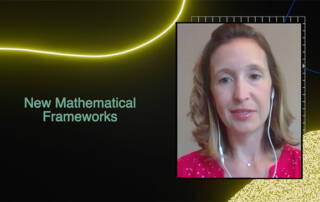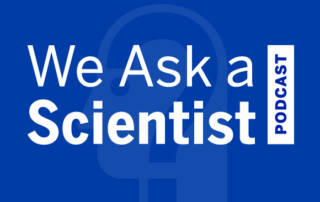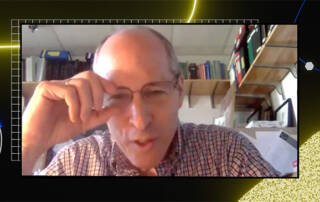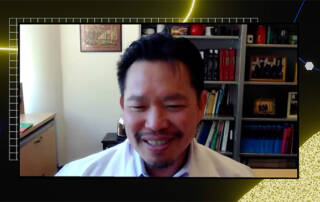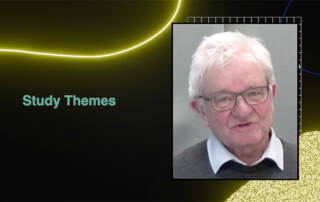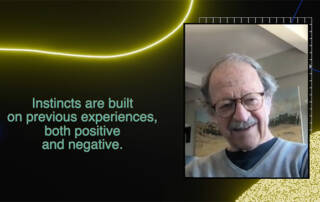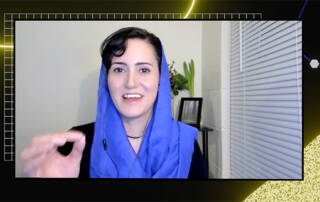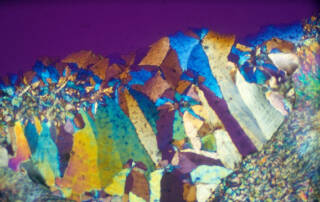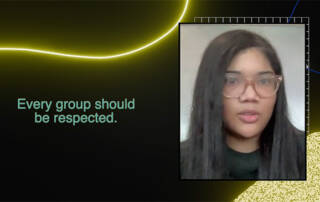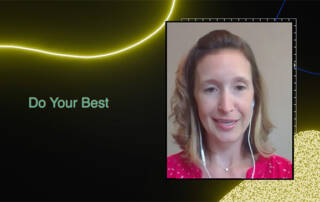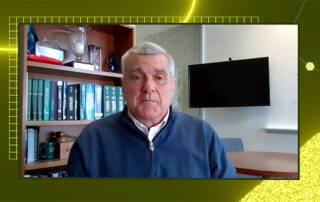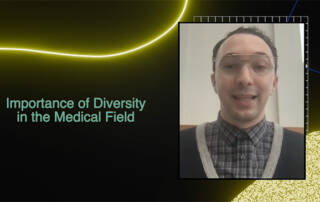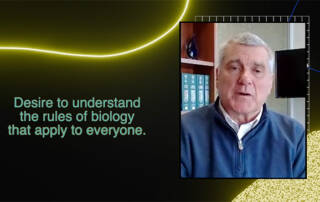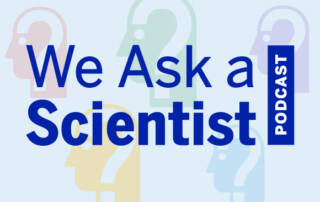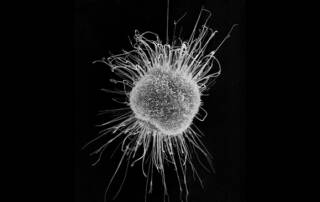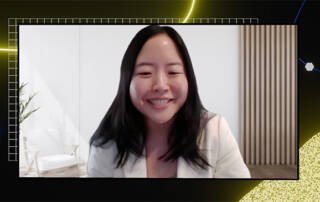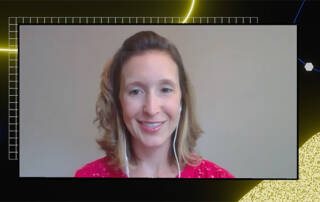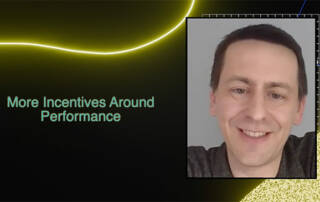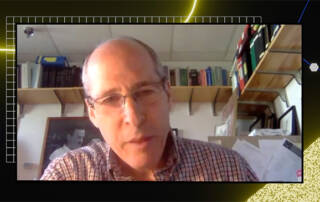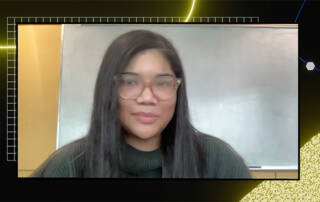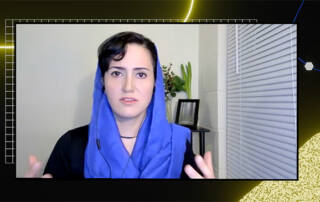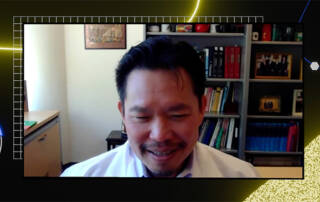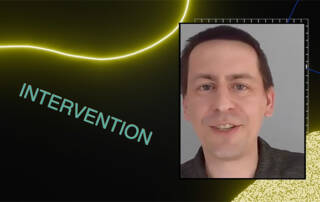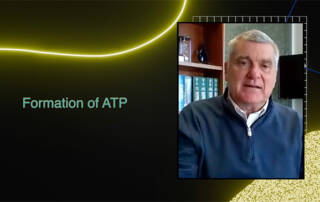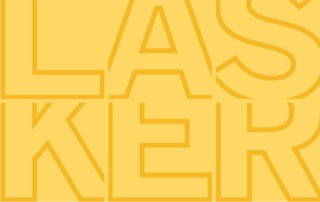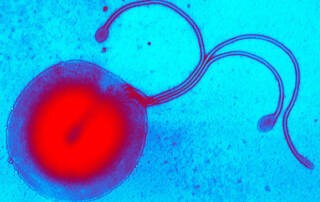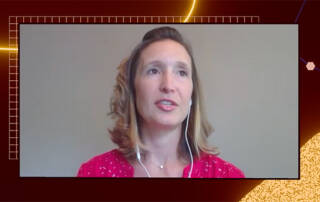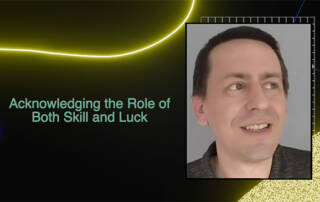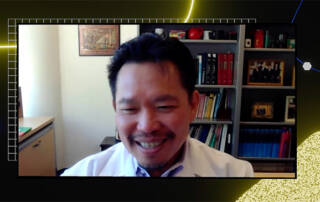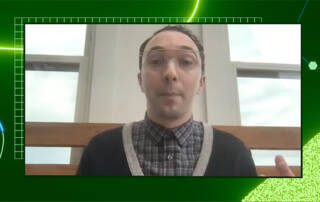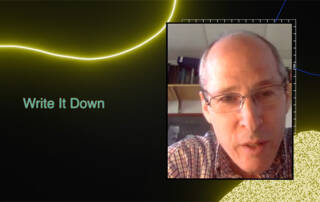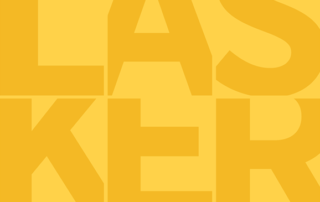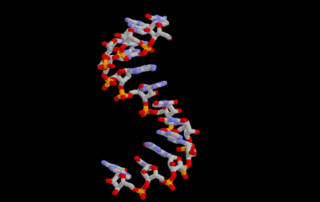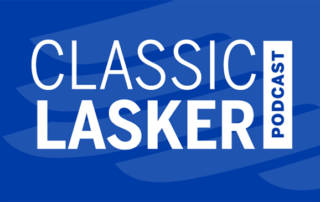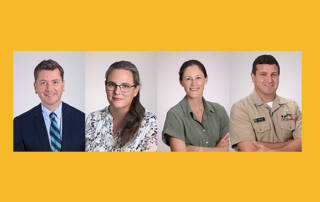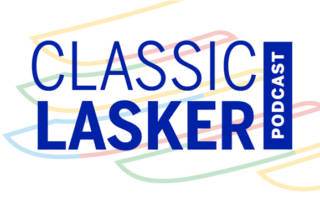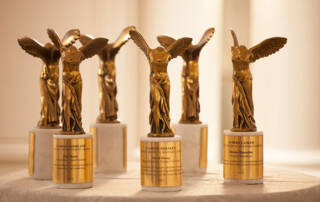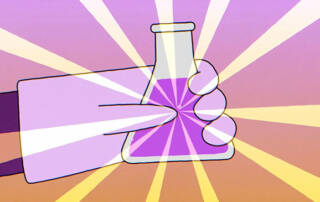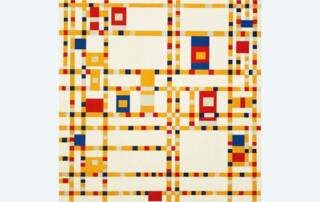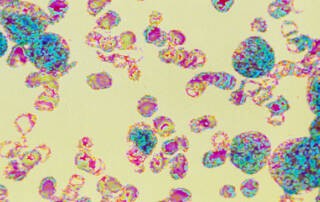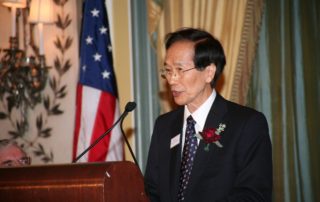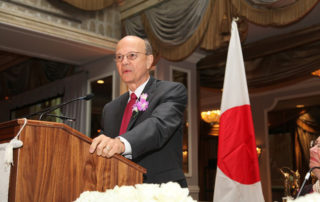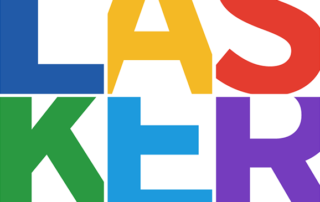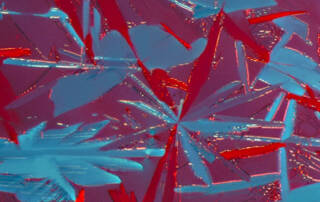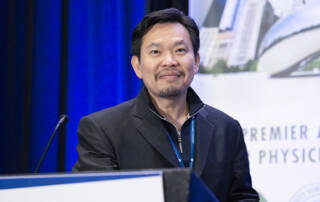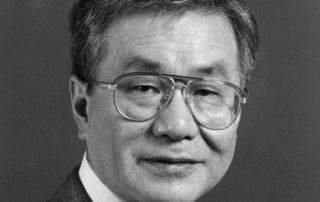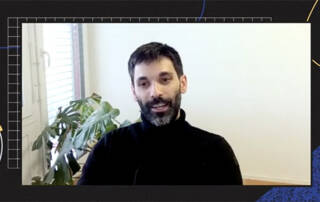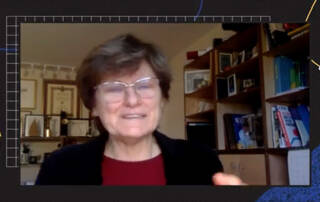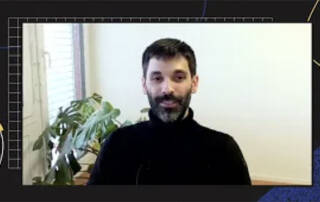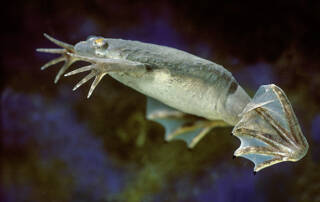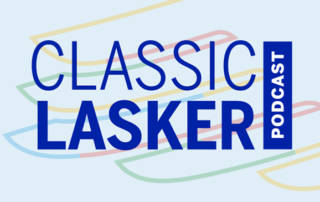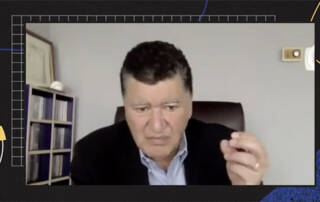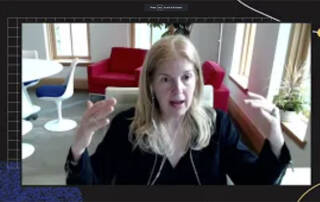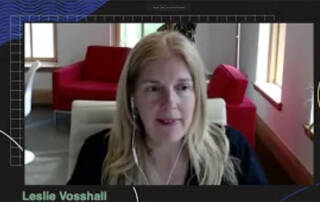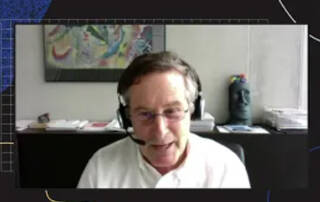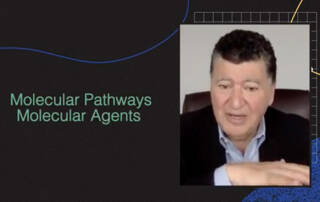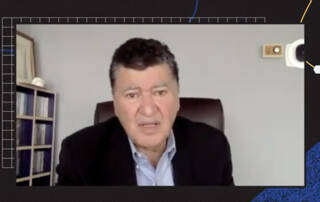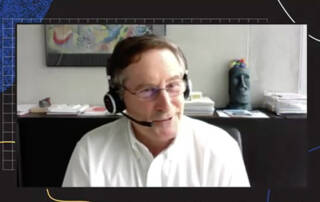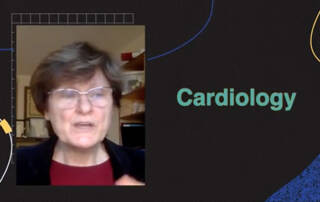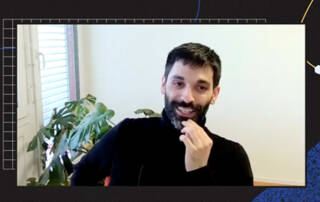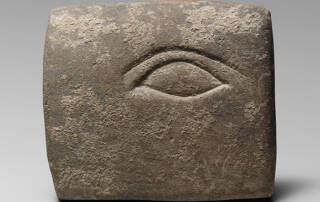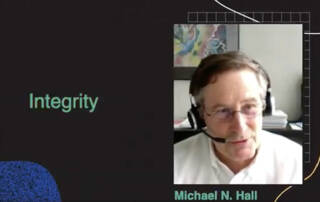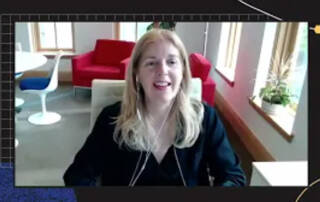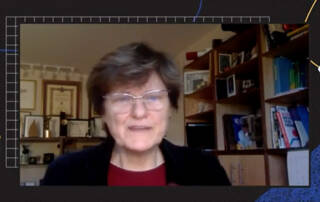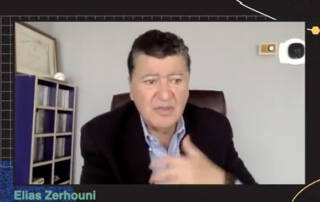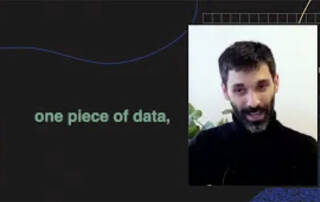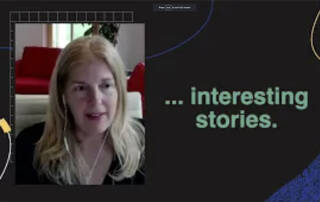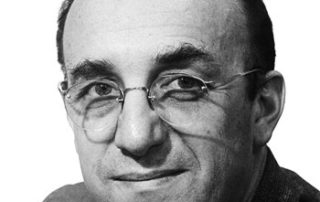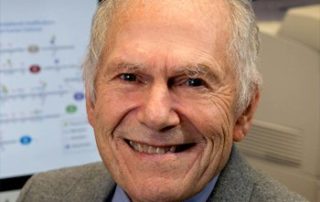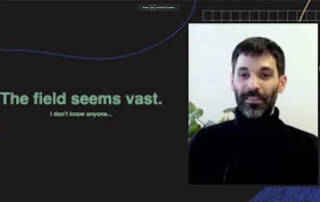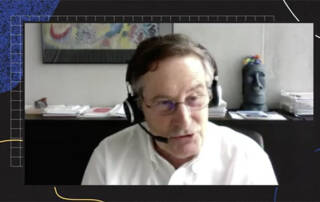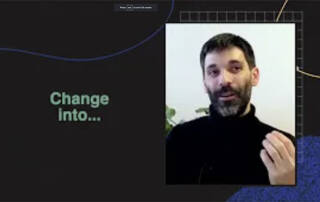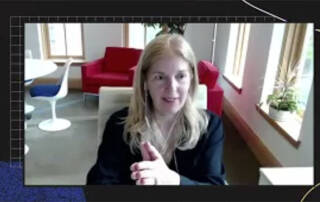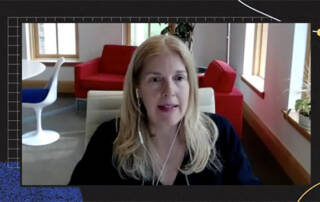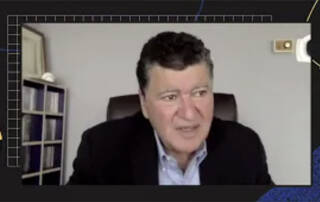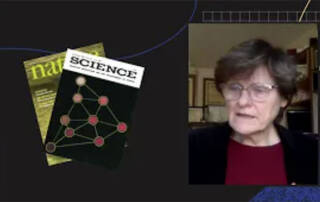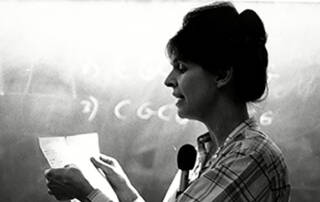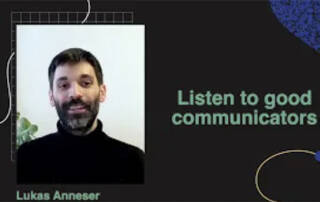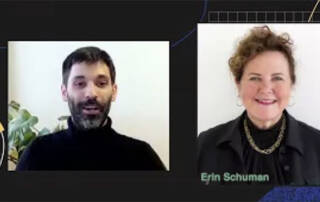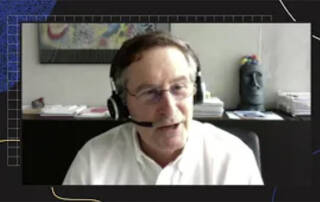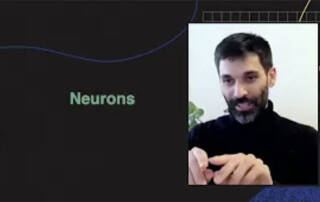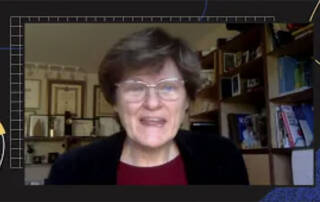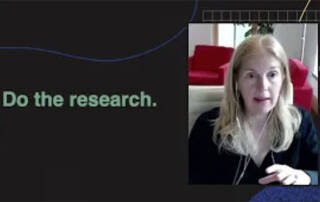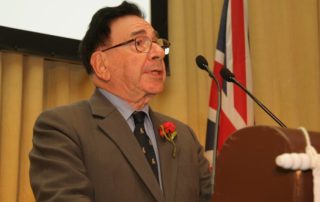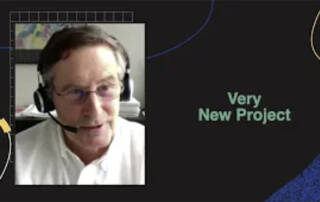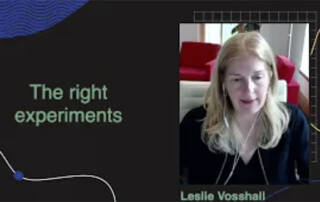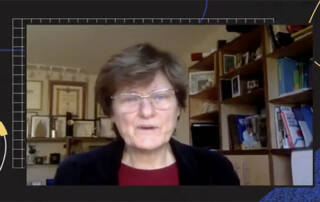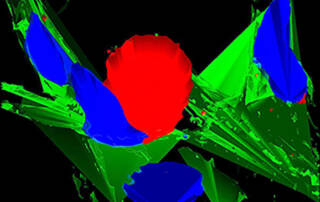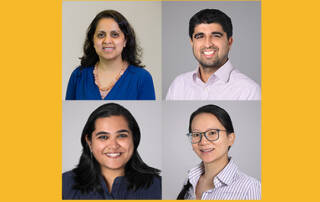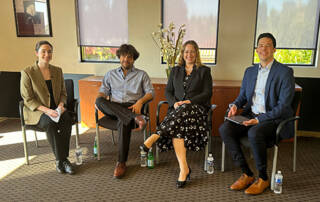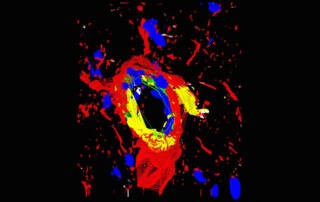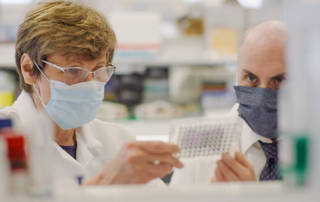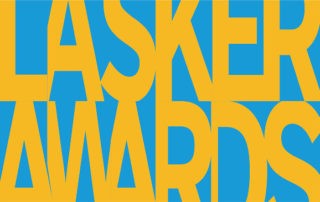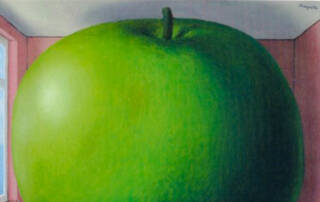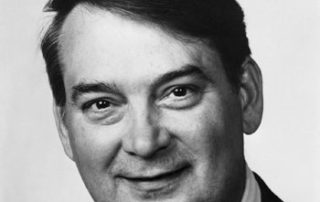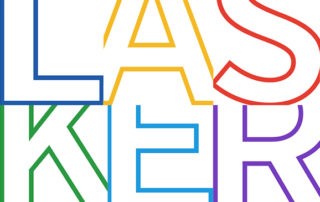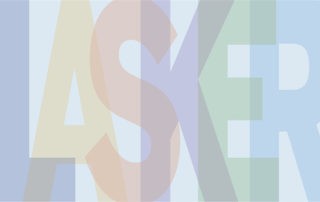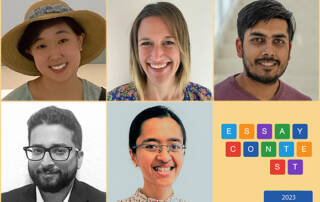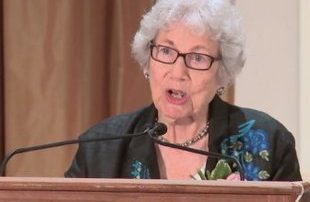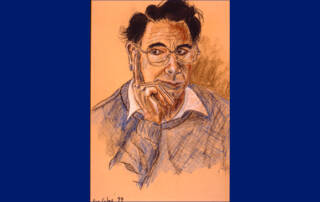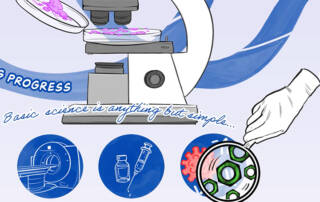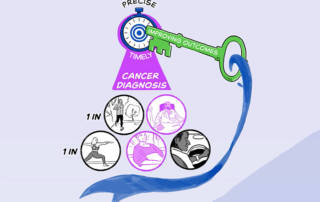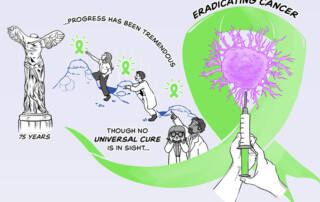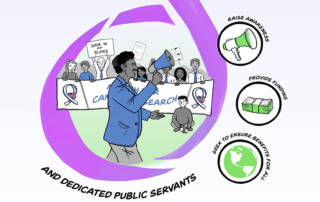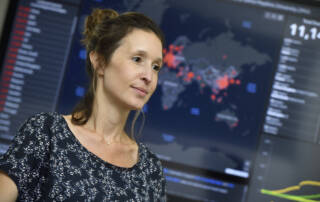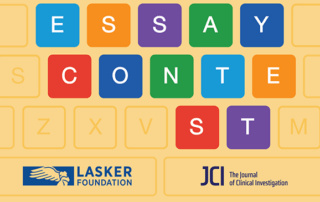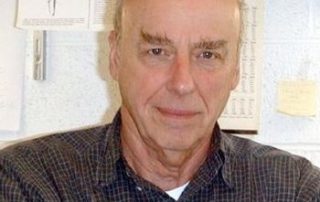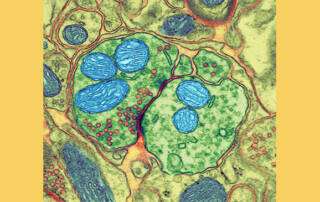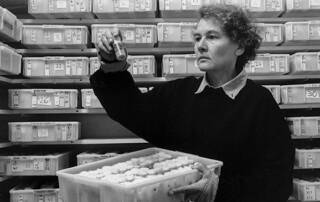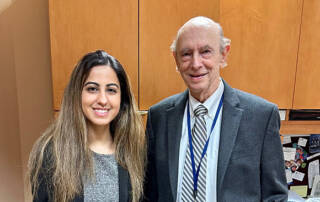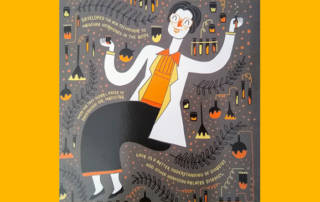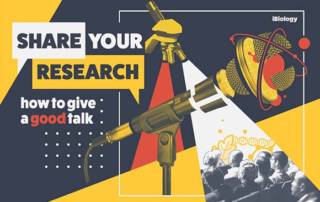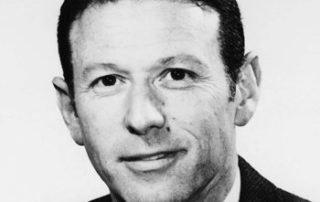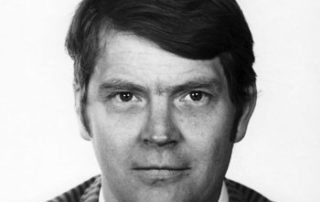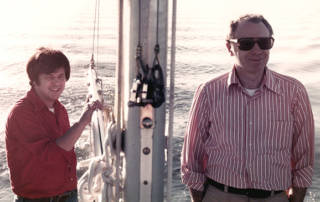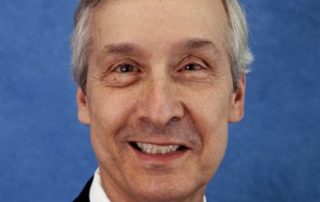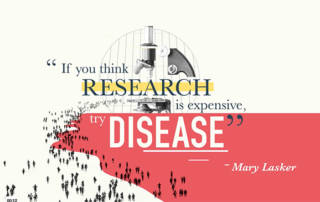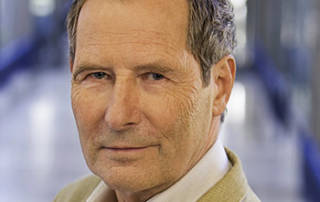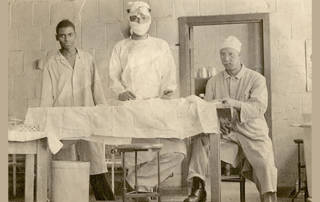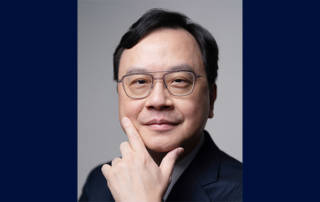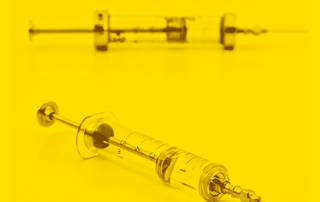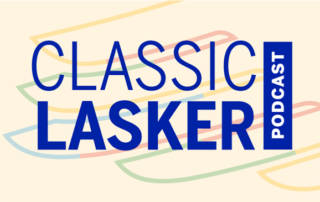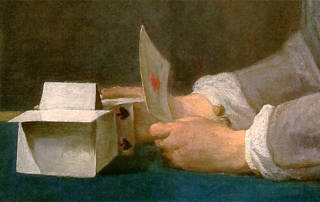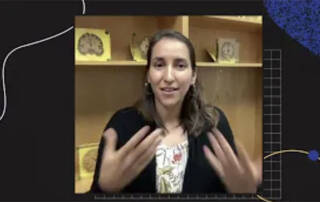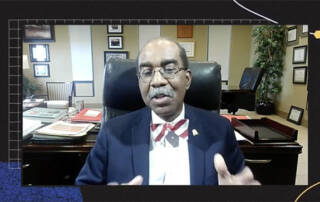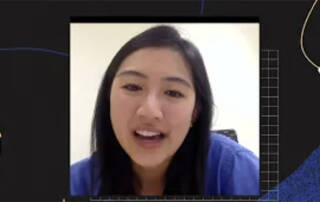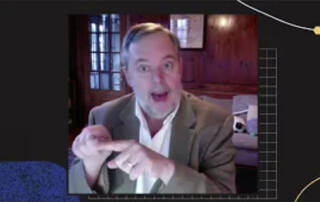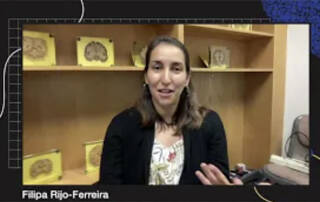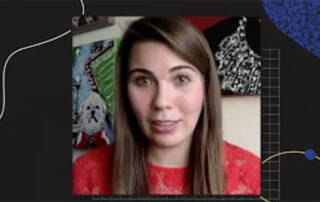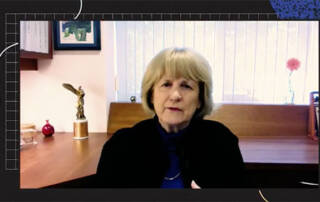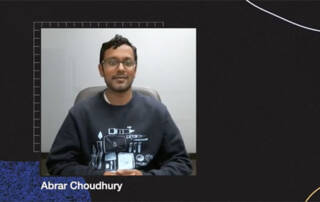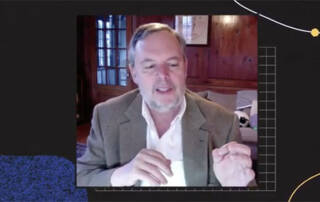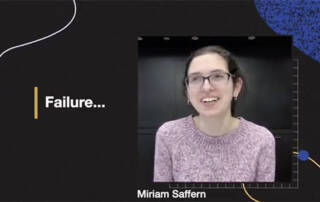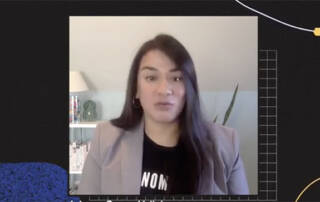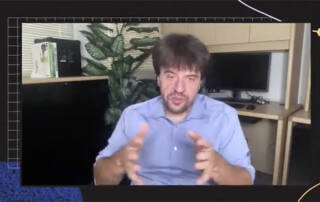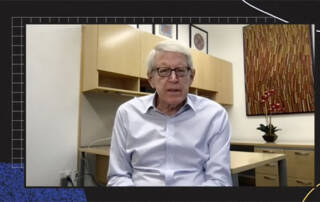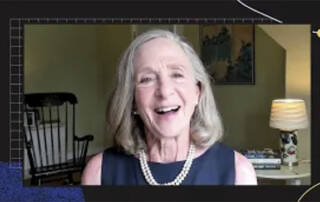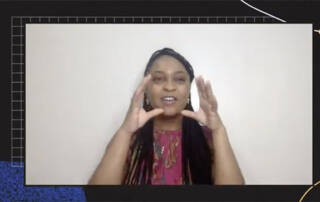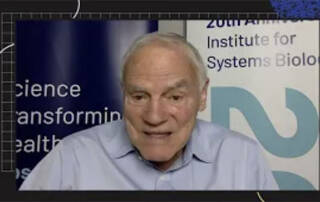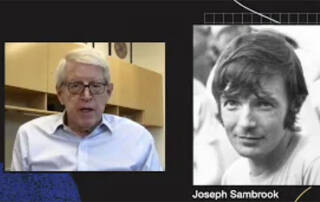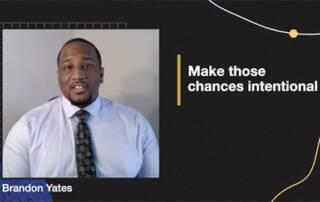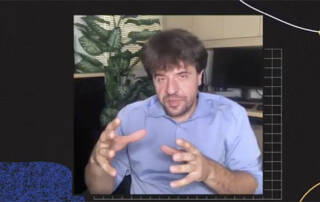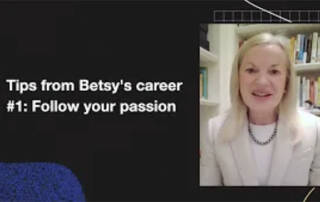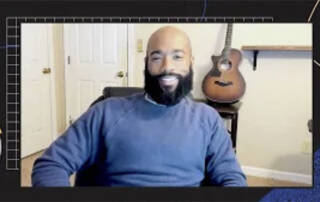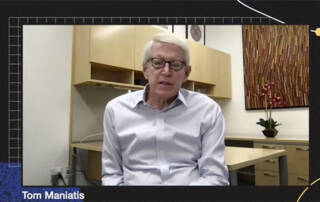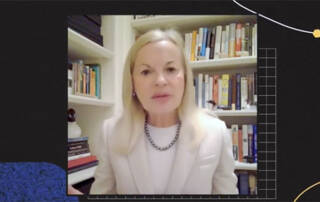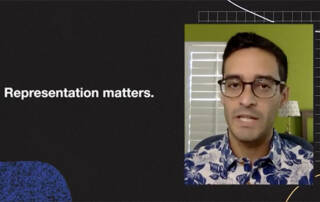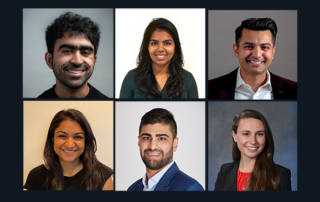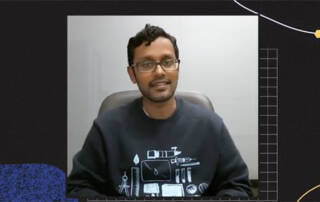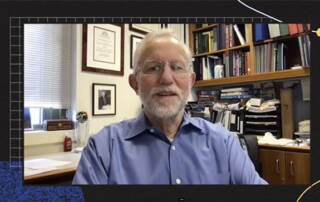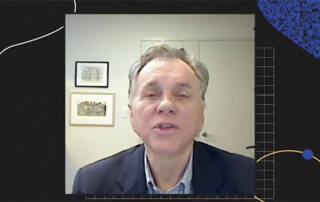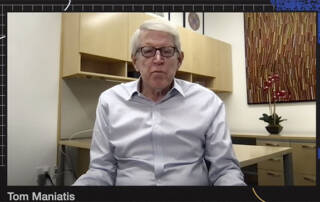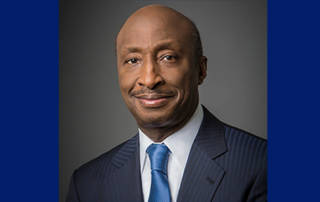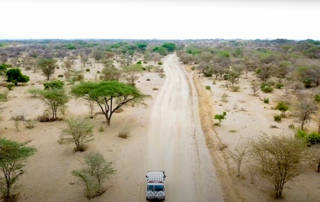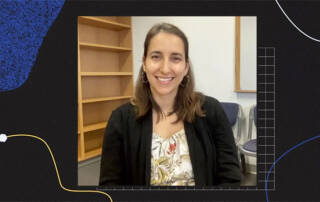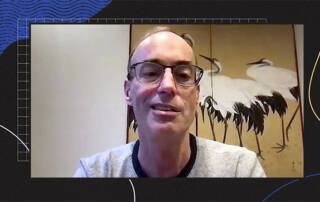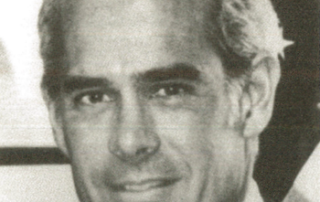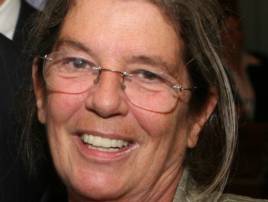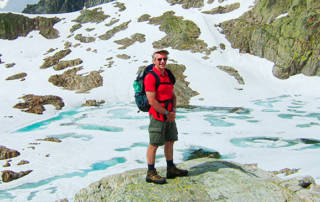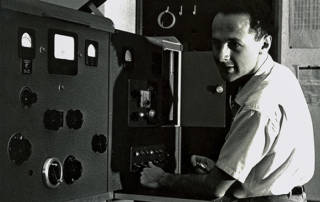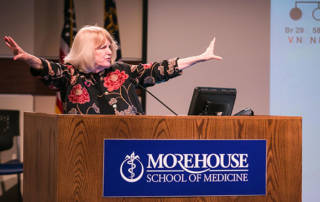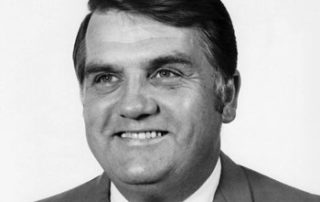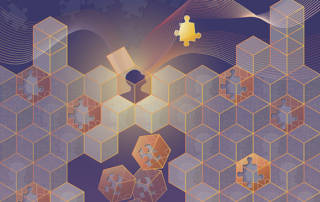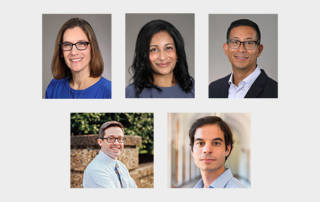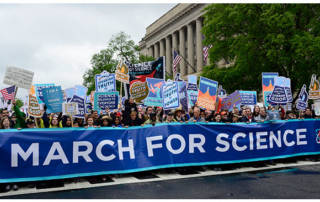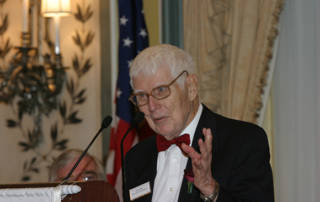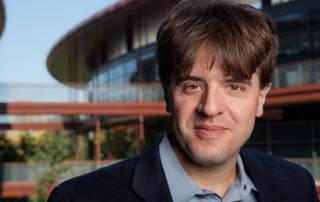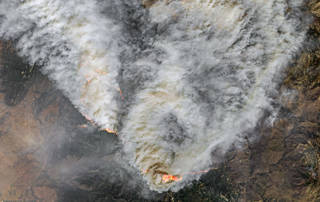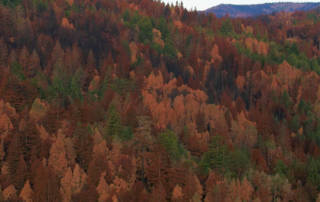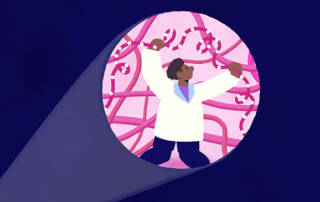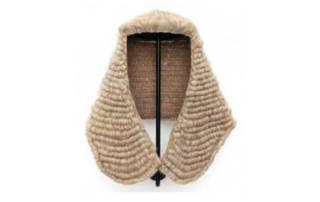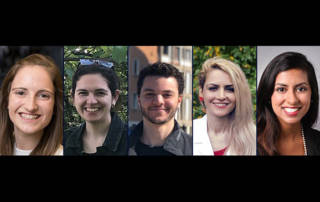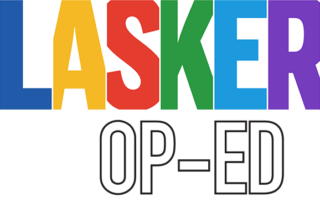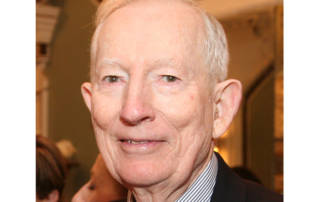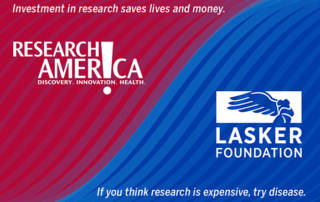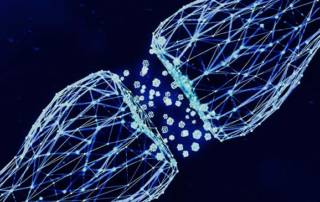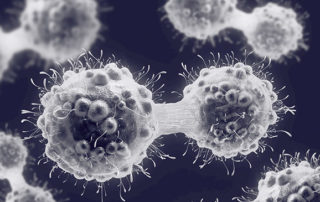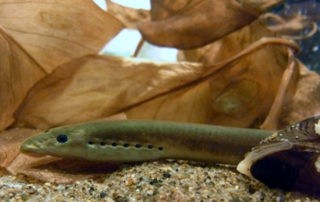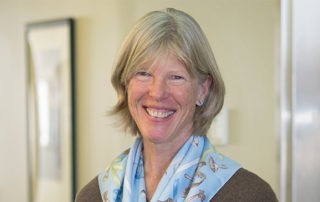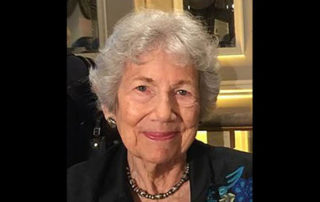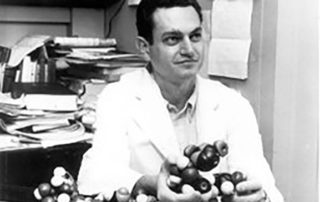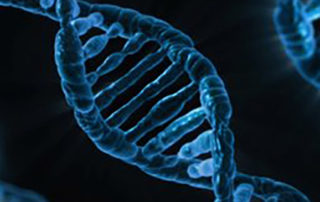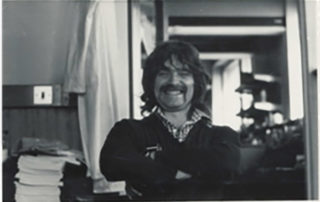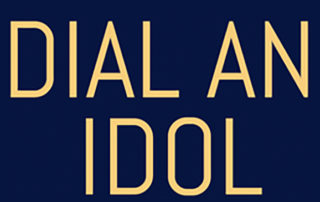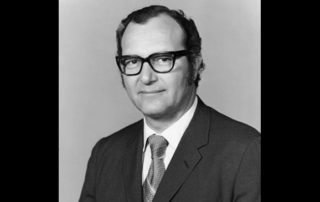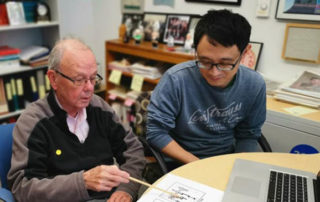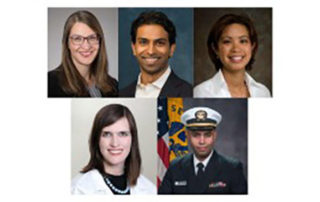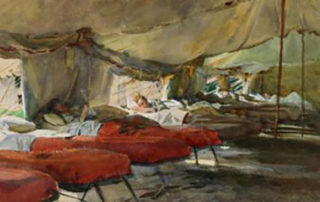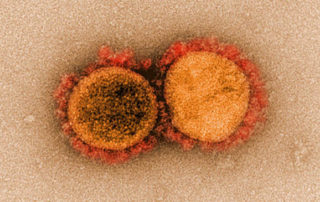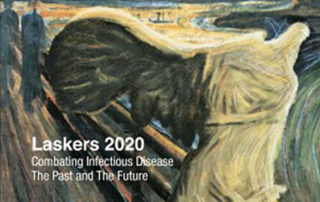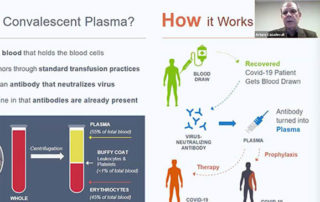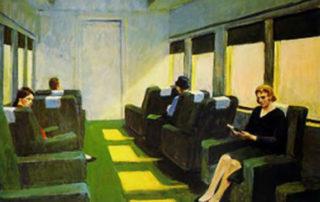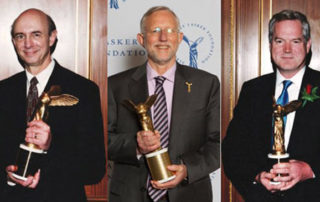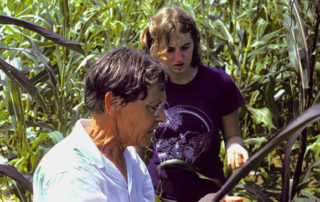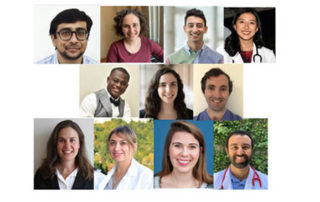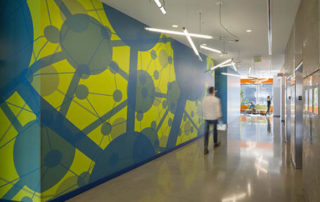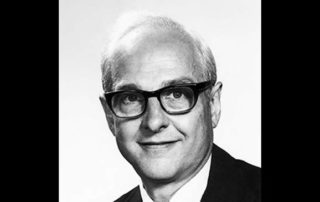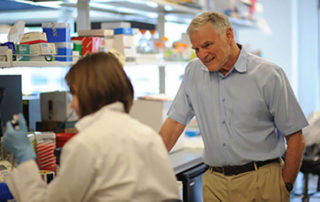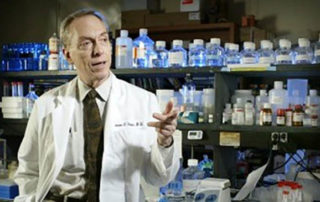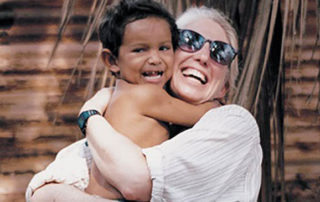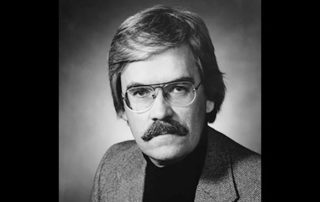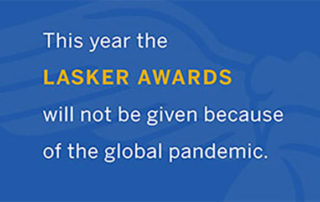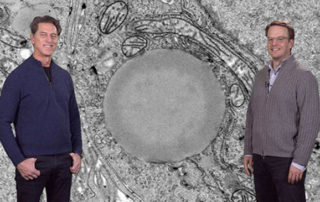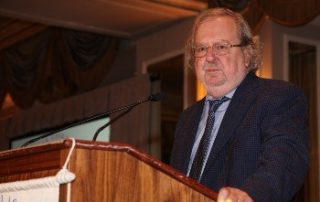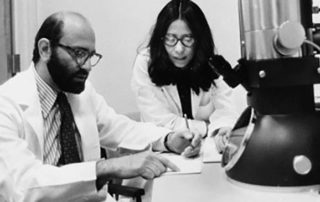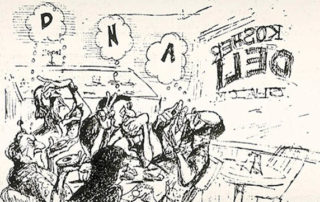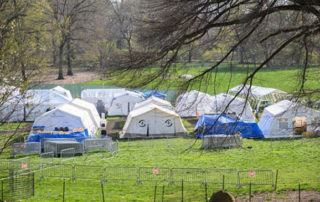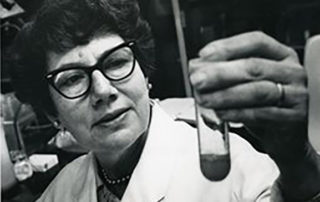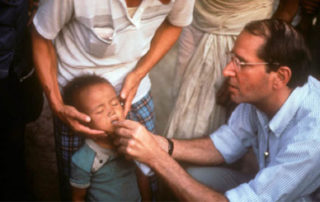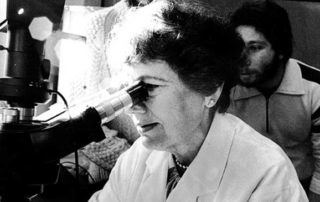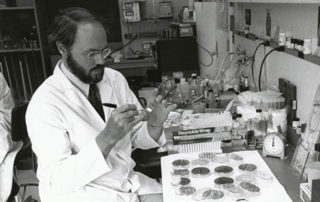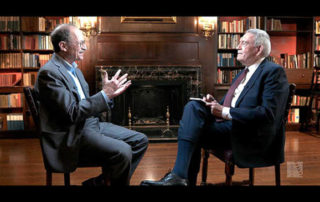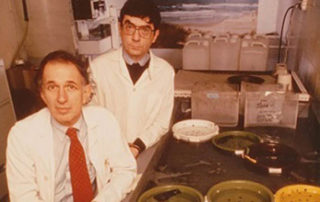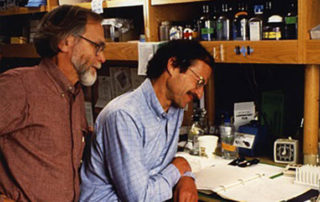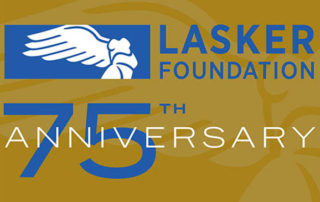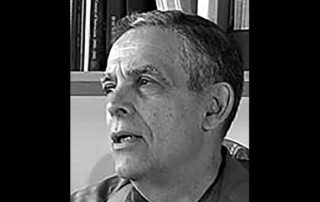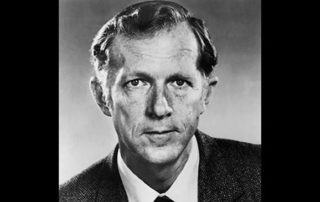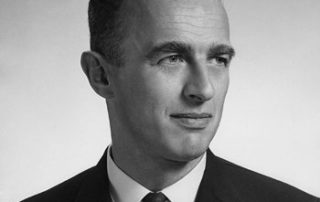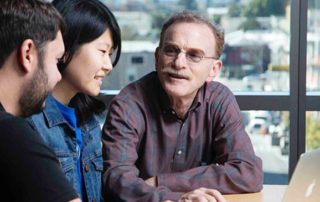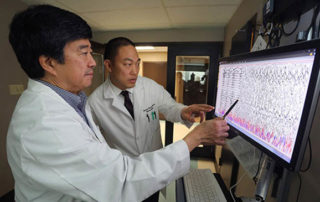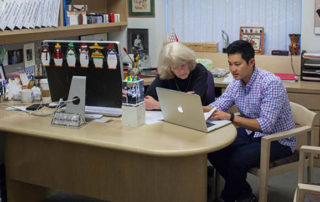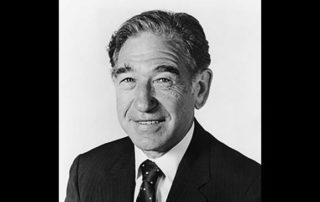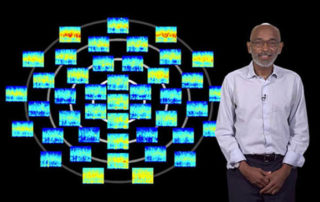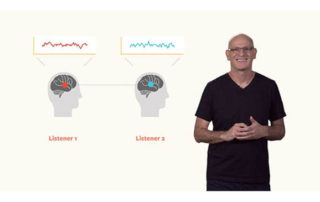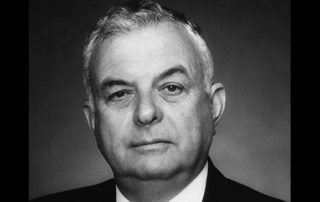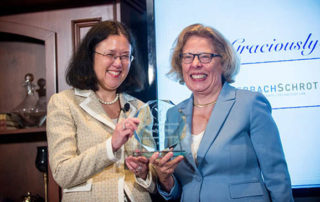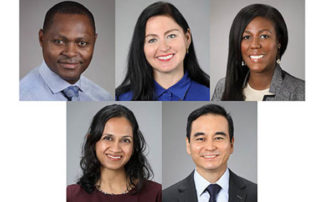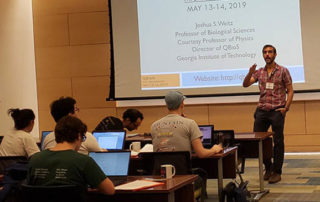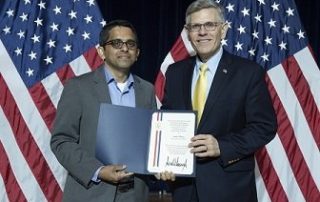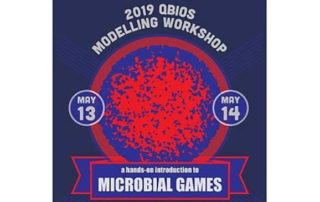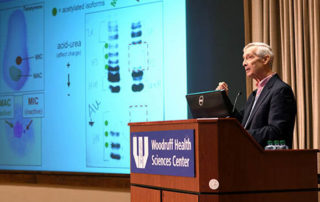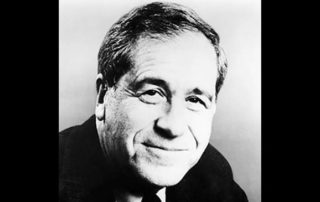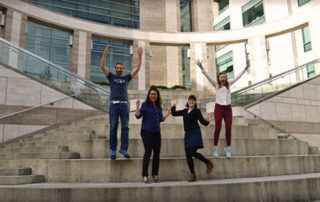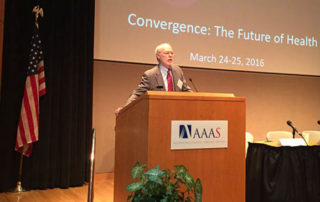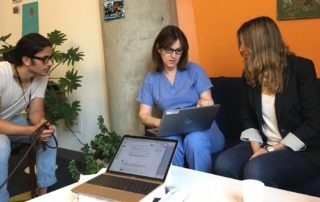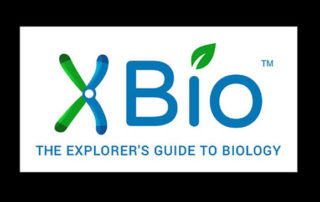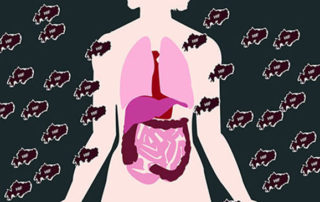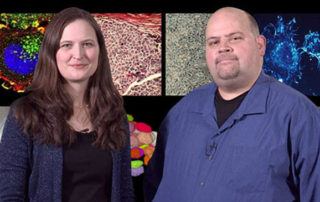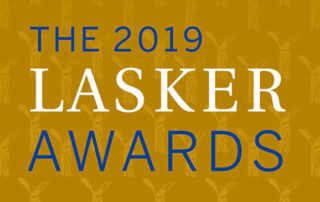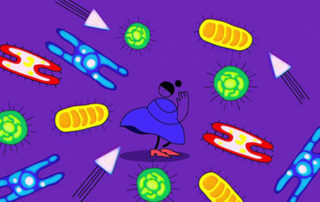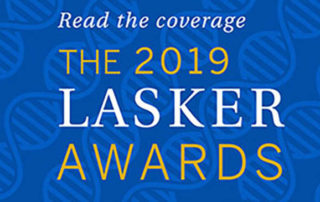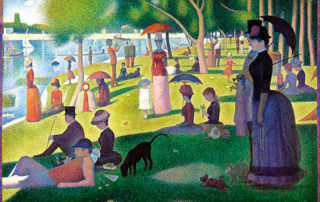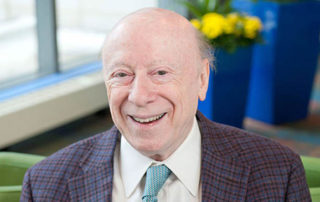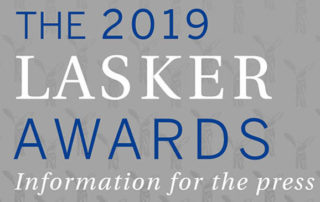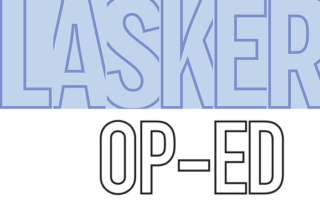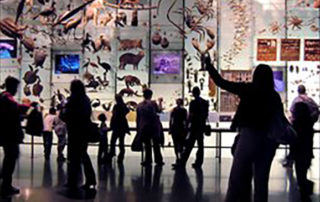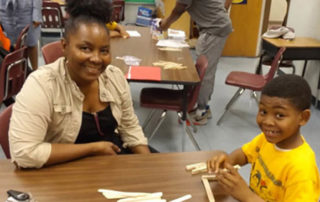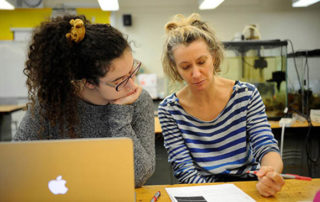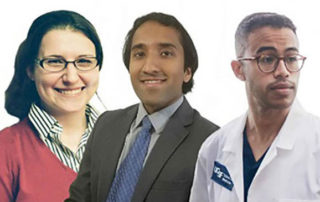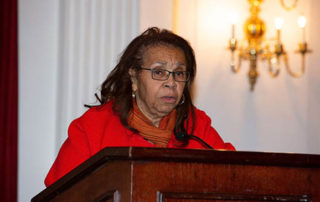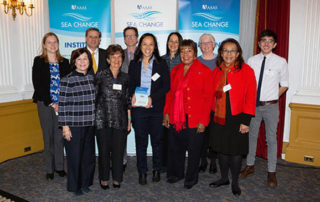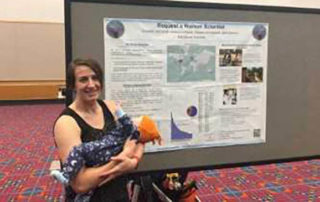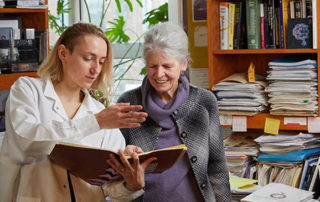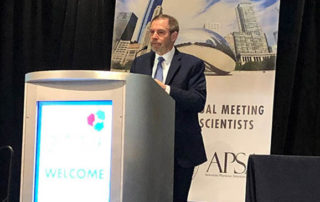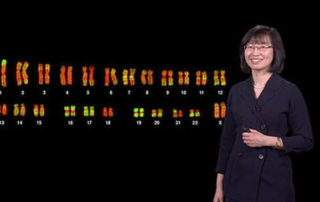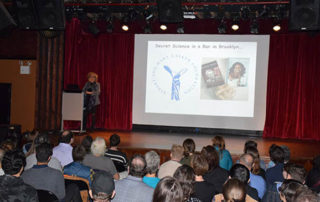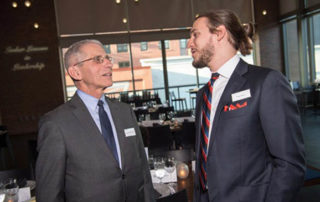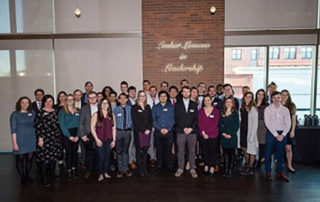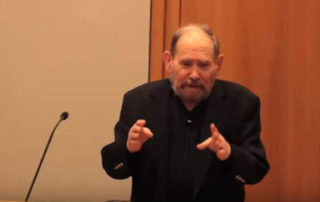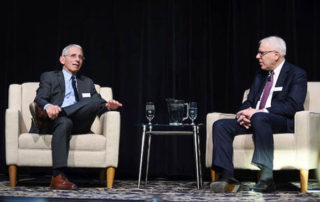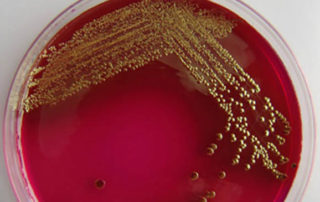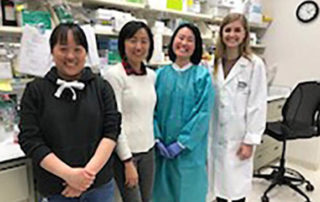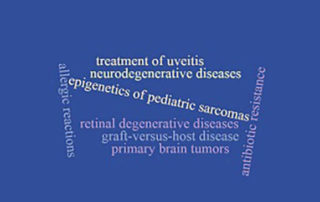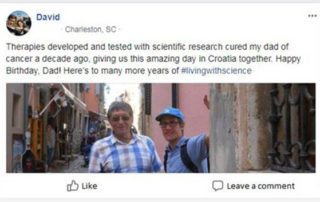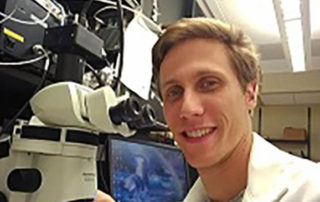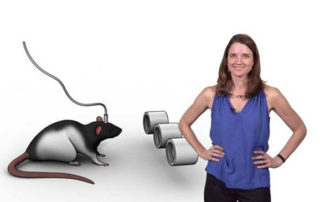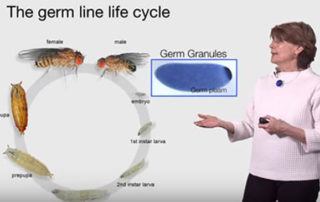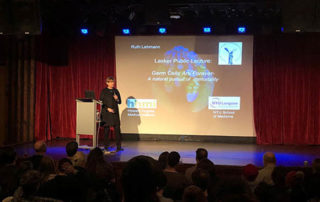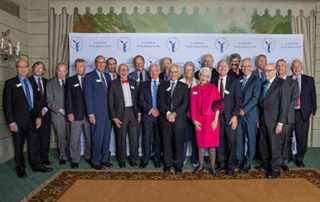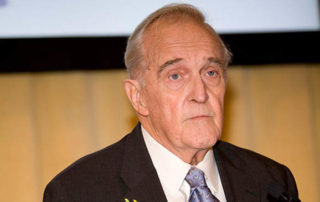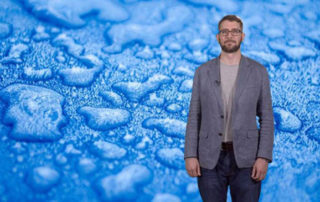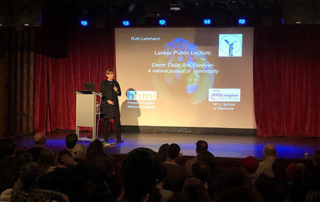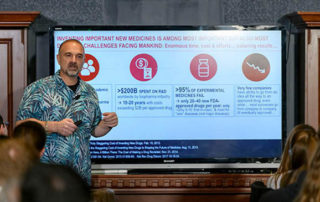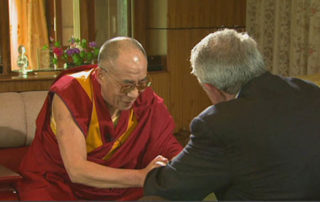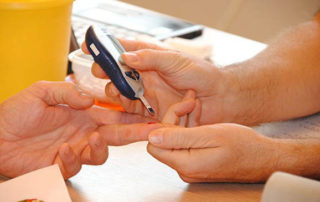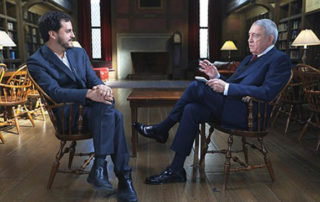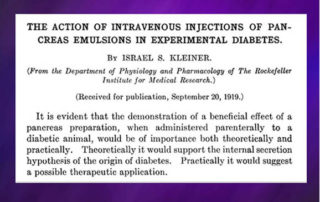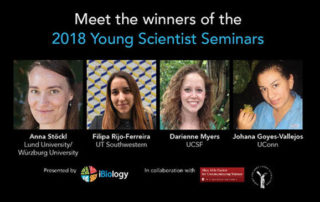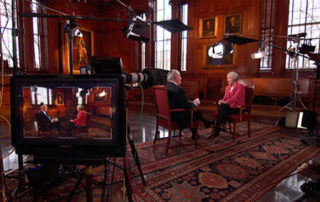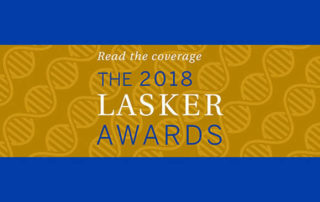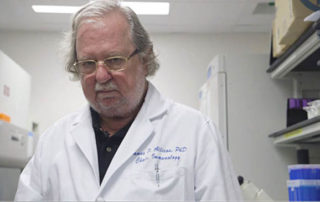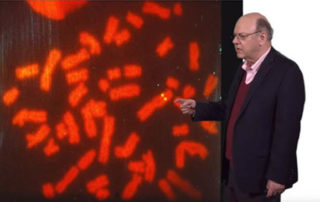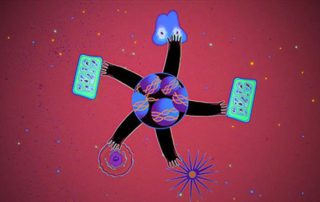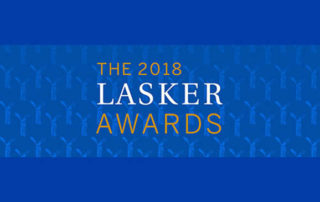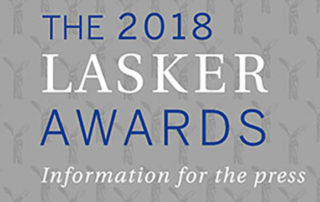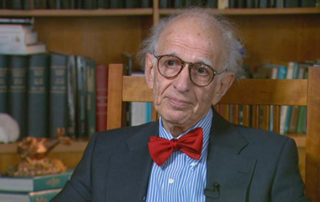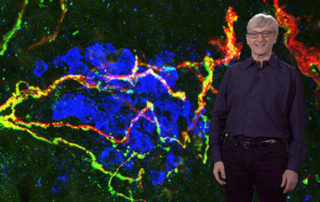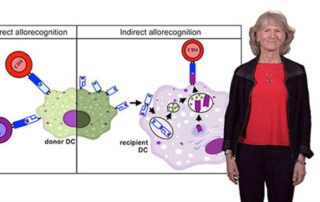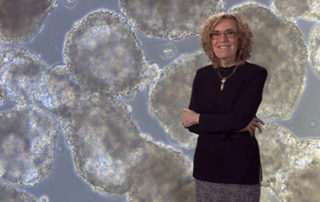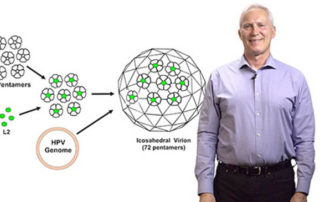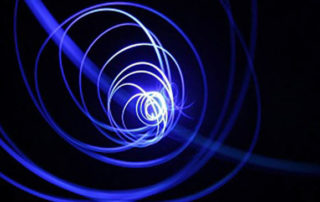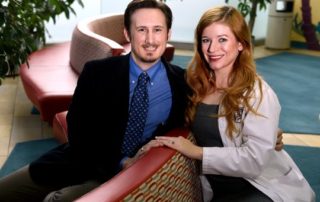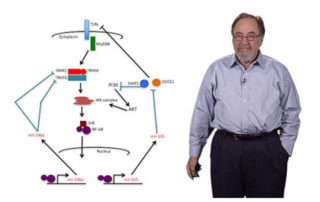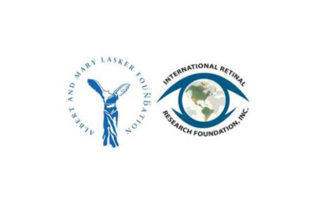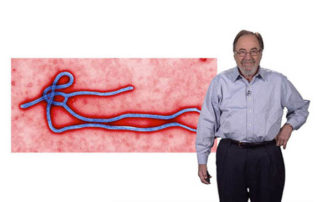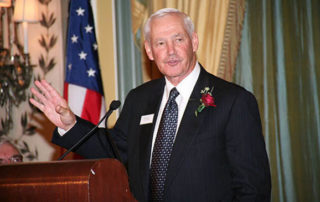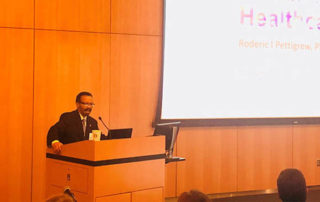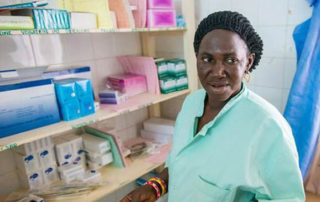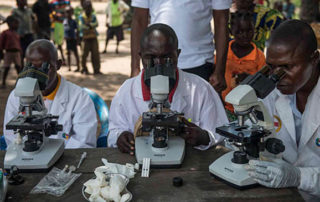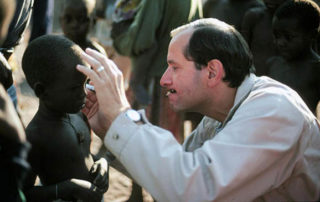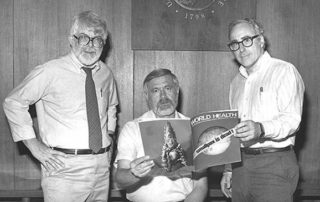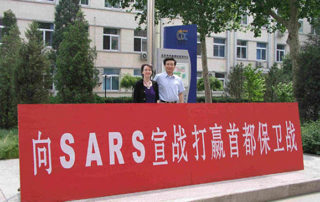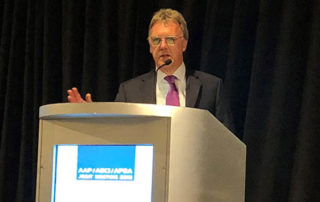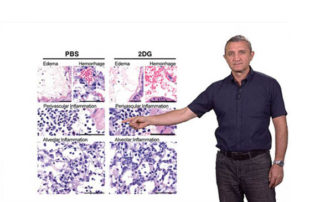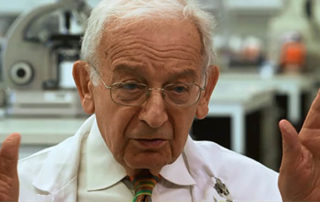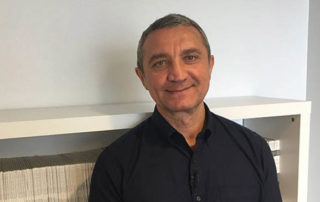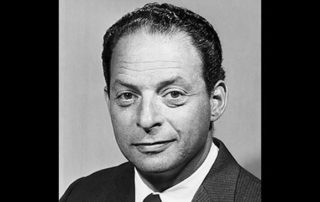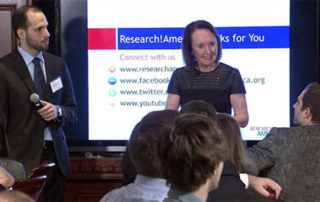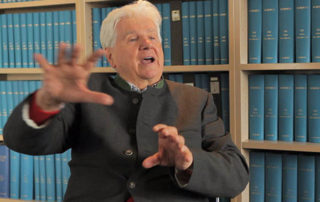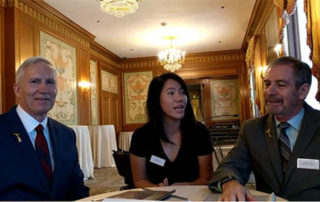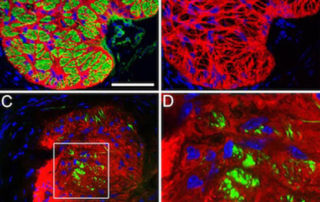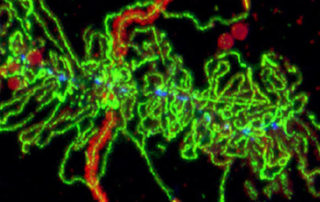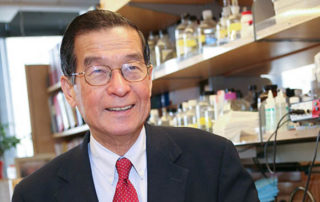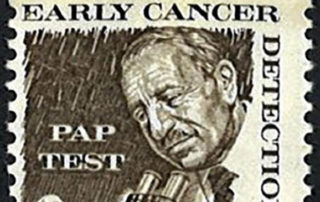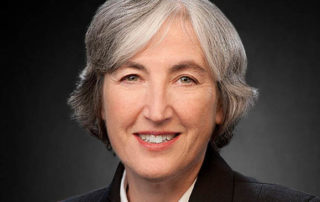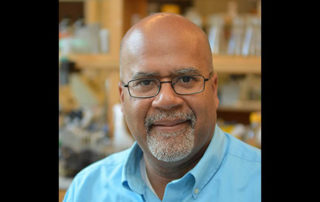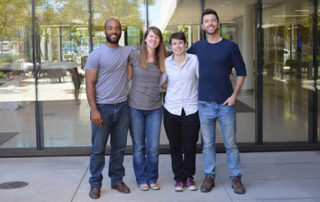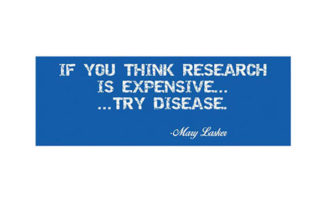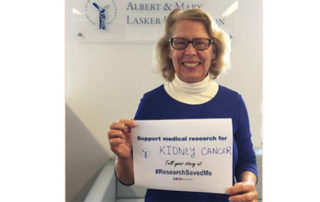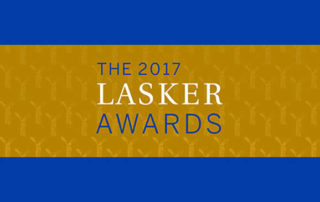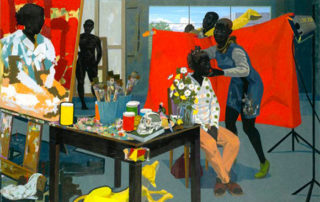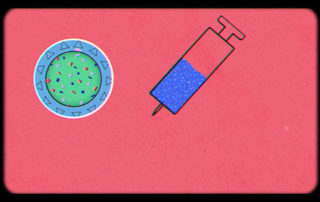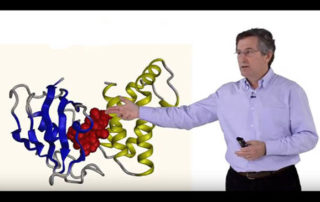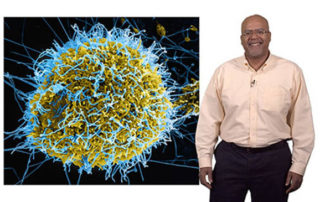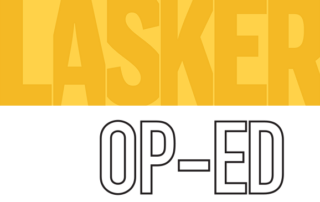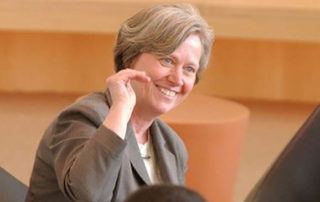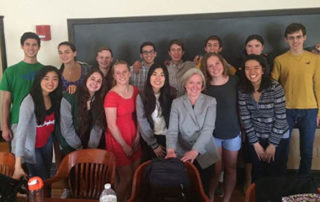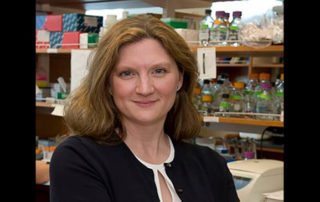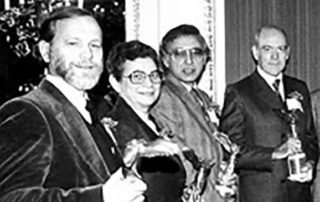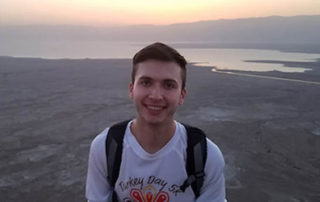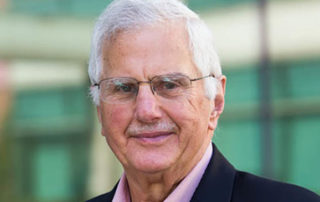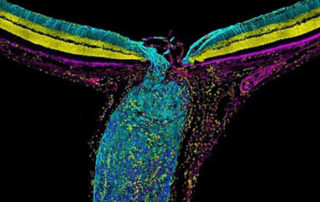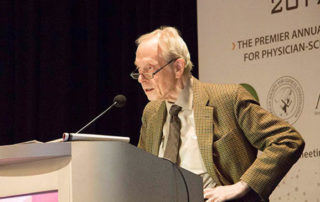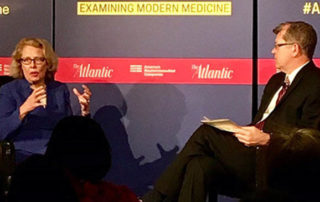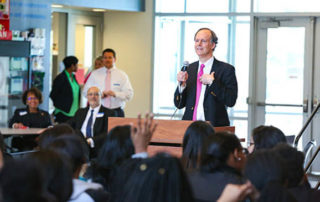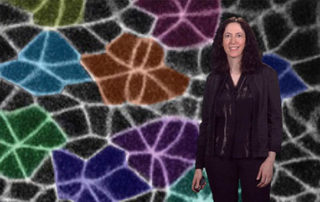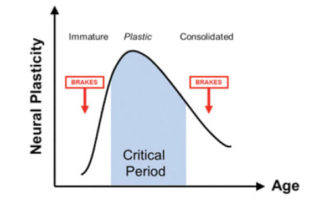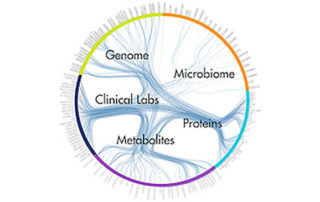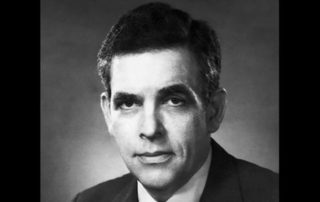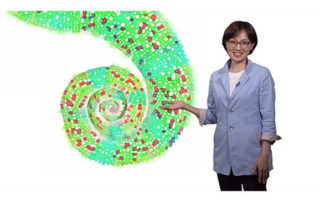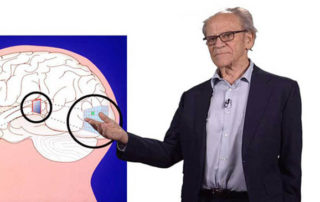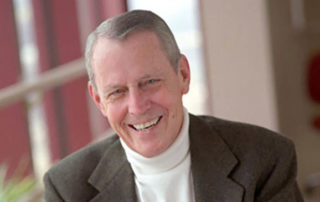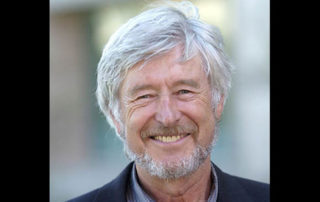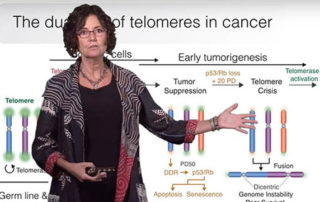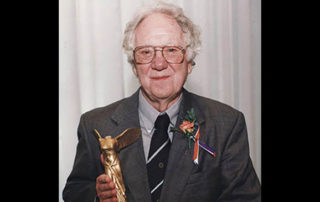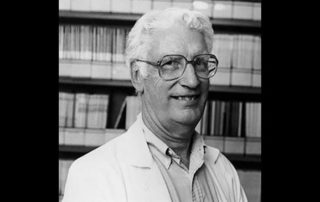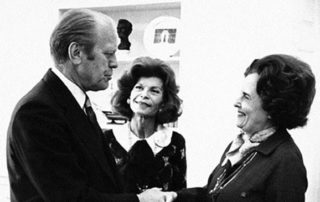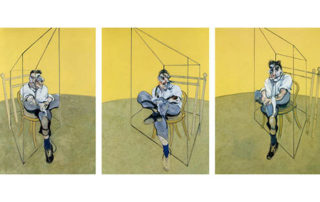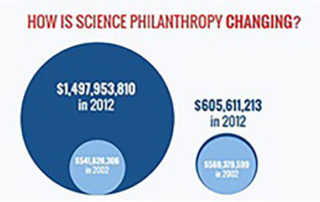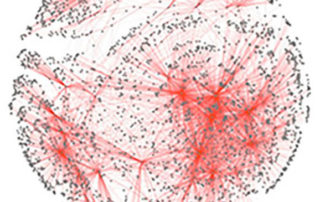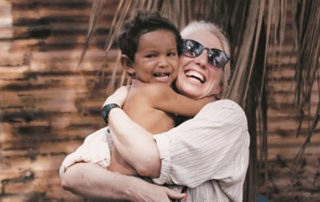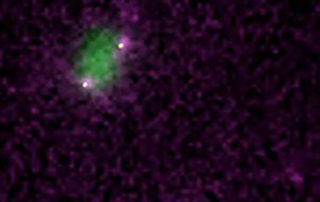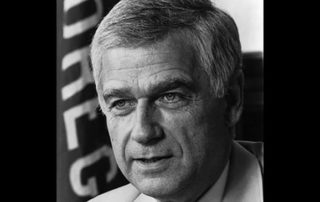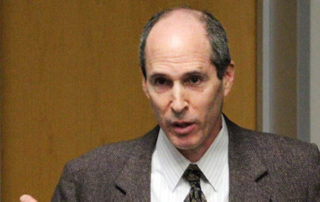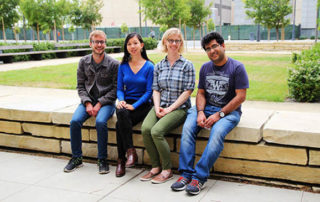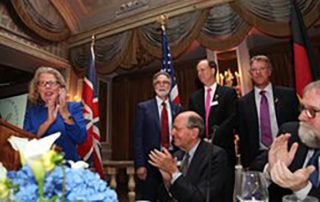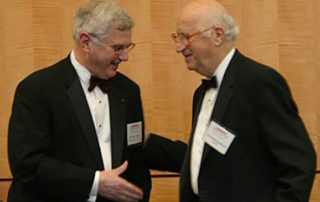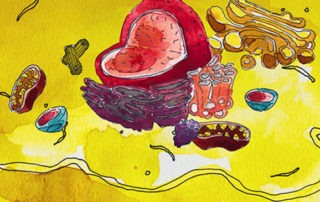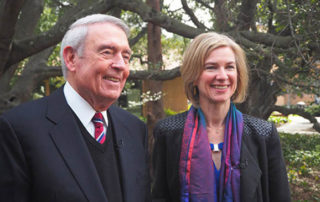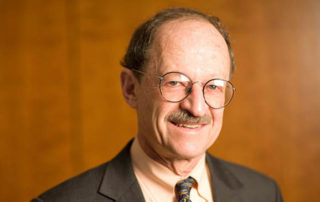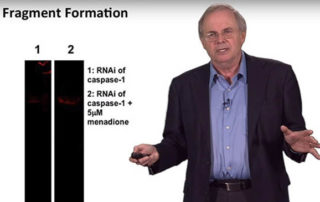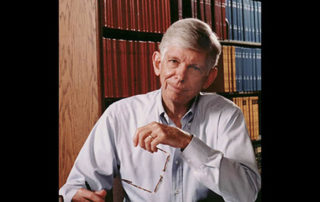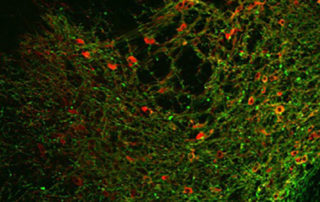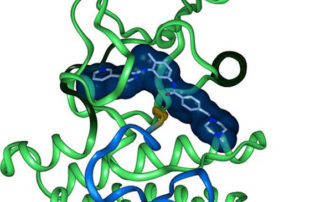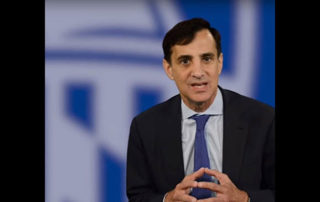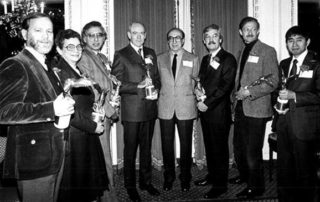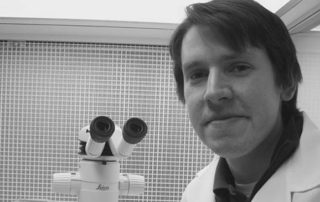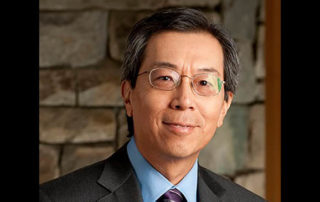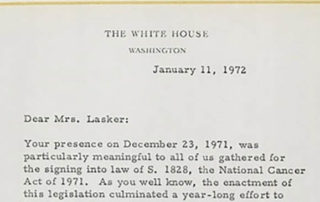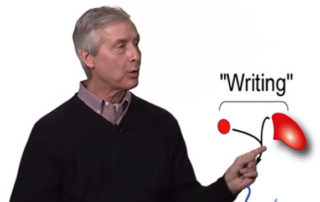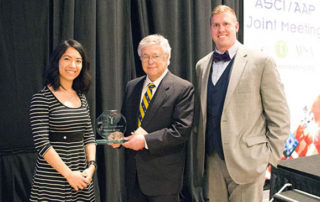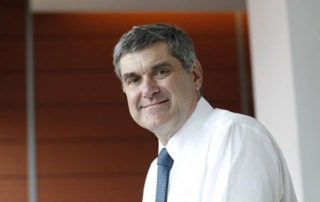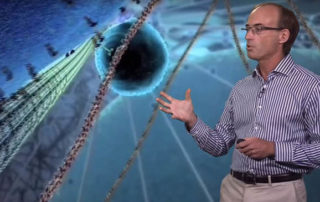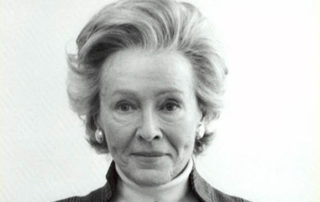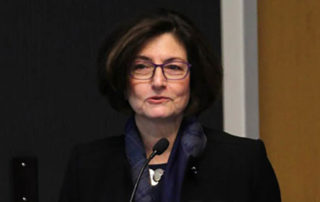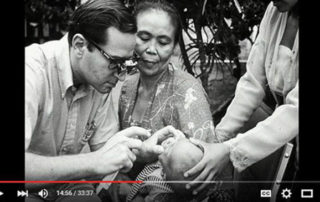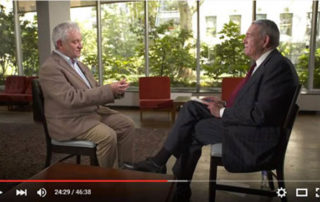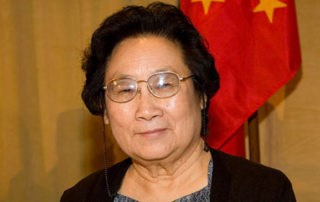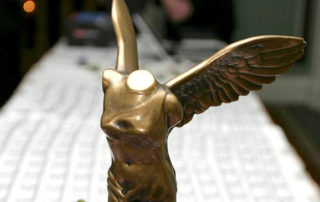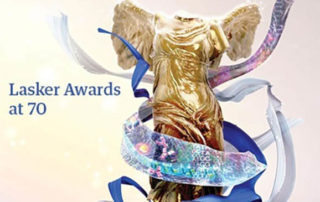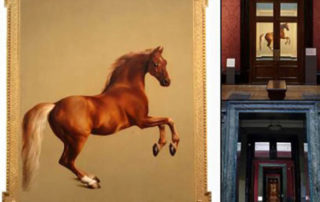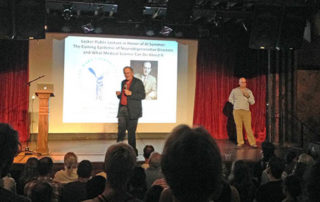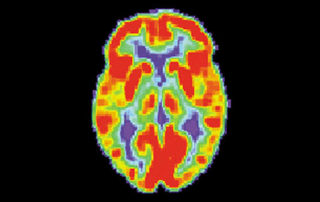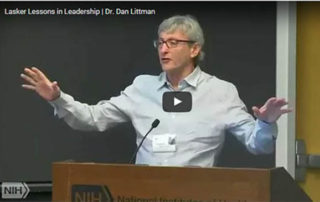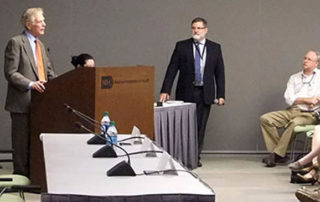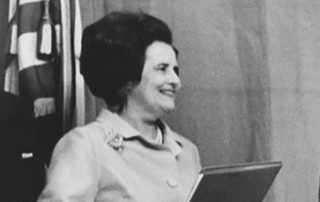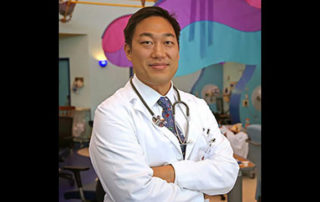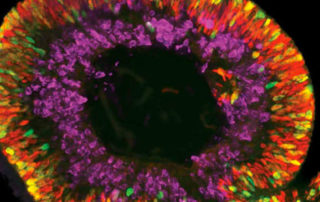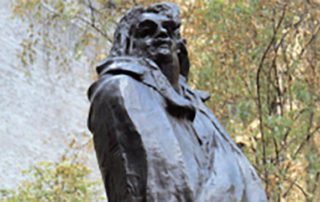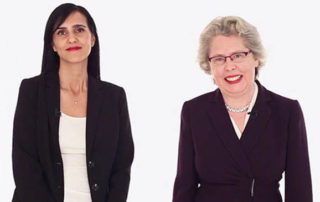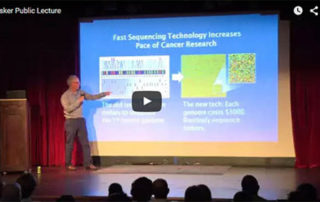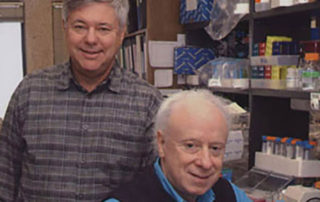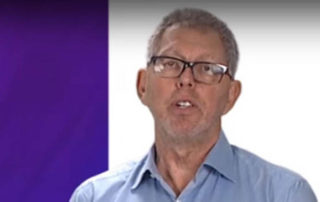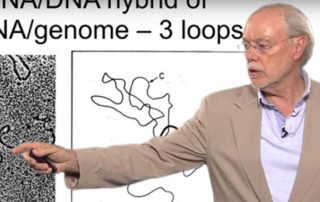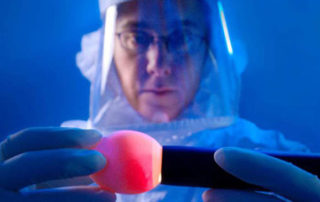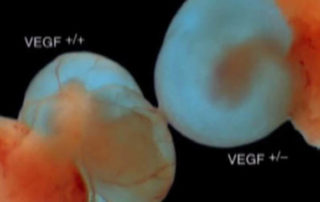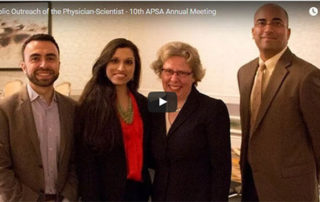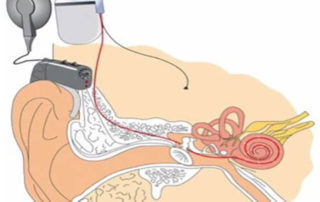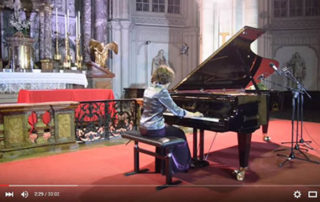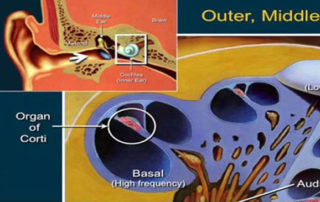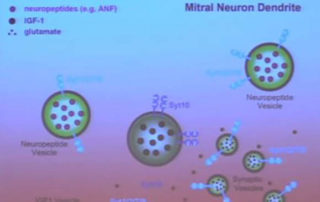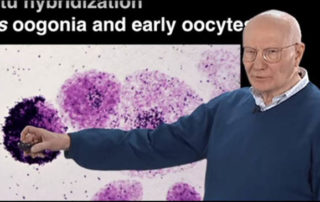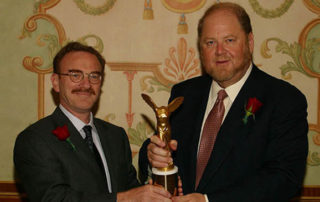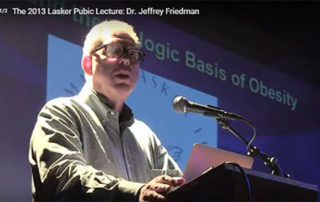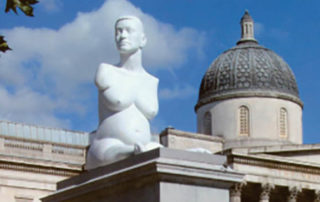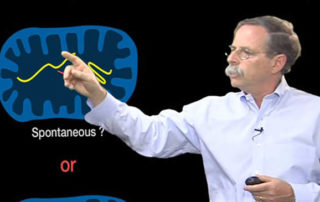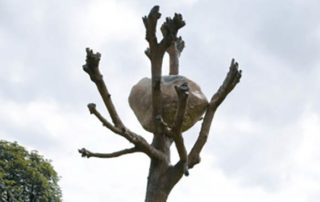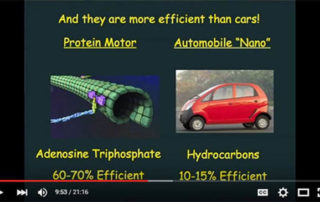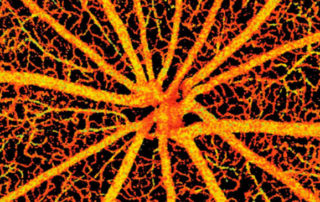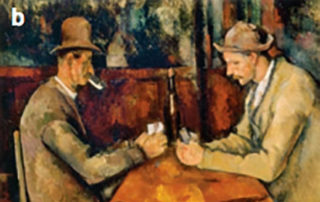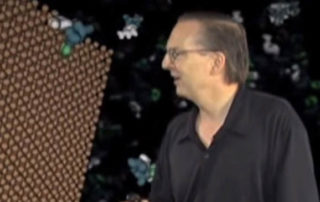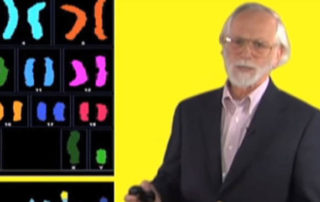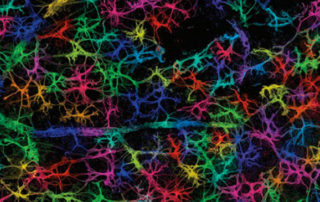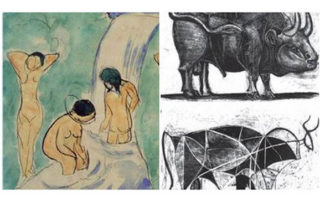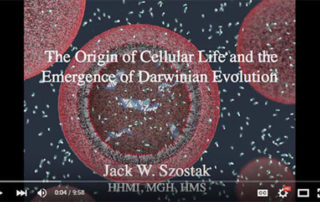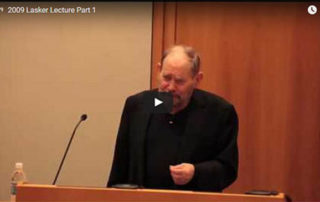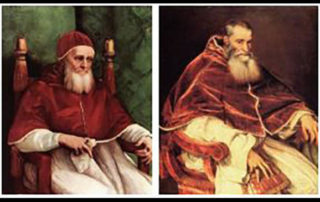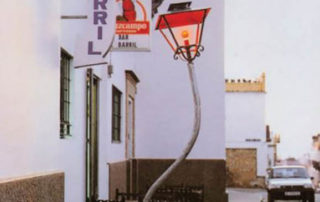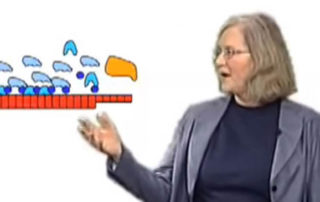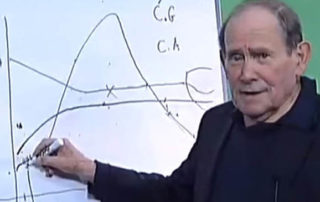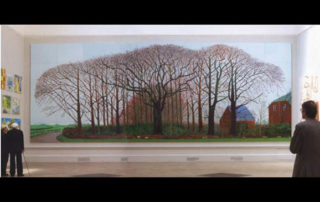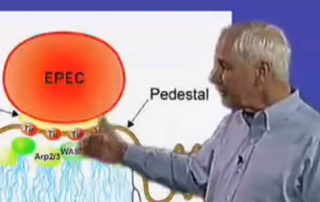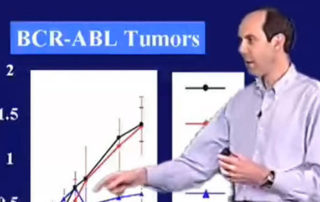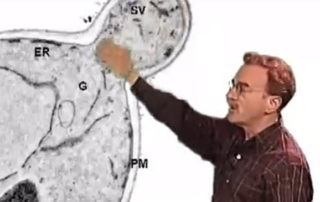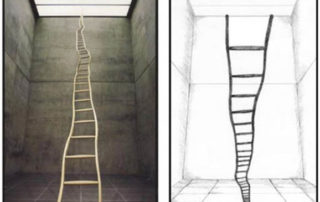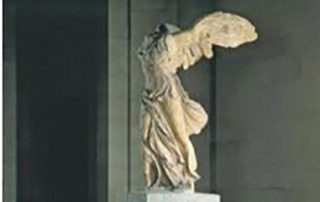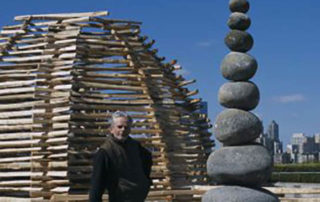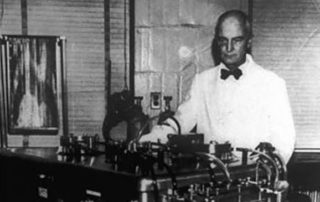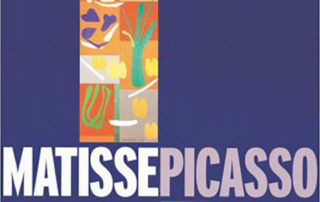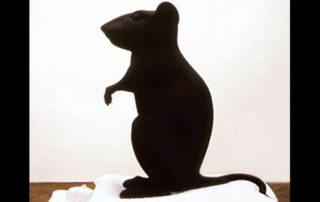Select a Category
Select a Date
Ask a Scientist: Lauren Gardner on Public Trust
JULY 9, 2025
Lauren Gardner, 2022 Lasker Laureate, shares how transparency about the scientific process can help generate public trust.
Ask a Scientist: Harold Varmus on Missteps
JULY 2, 2025
"Sometimes the answer is simpler than you think." 1982 Lasker Laureate Harold Varmus discusses how to approach difficulties in scientific research.
Ask a Scientist: Jeremy Nathans on Physician Patient Partnership
JUNE 30, 2025
"Decision making… is now very much a partnership between the patient and the physician." Molecular biologist Jeremy Nathans discusses physician-patient dynamics in the clinic.
Ask a Scientist: Paul Nurse on Public Trust
JUNE 25, 2025
Paul Nurse, 1998 Lasker Laureate, discusses how scientists can increase public trust in science.
Ask a Scientist: One Question for Harold Varmus From Grace Newton
JUNE 18, 2025
Grace Newton, a computer science and linguistics student, asks 1982 Lasker Laureate Harold Varmus a question about his field of research.
June 2025 Newsletter
JUN 17, 2025
Meet Lasker Laureate Albert Coons, who developed the fluorescent labeling technique. And listen to our latest podcast episode featuring Leslie Vosshall.
Albert Coons’s Bright Idea
JUN 17, 2025
Meet Lasker Laureate Albert Coons, who developed a fluorescent method to identify and localize antigens and antibodies in tissues—a major invention in medical science.
We Ask a Scientist: Leslie Vosshall
JUN 17, 2025
Join us for an interview with Leslie Vosshall, who discusses setbacks, collaborations, and why scientists are like “magpies.”
Ask a Scientist: David Huang on Technology
JUNE 11, 2025
2023 Lasker Laureate David Huang shares his excitement about the development of new tools in science.
Ask a Scientist: John Jumper on Communication Within a Team
JUNE 6, 2025
2023 Lasker Laureate John Jumper shares his guiding principles for efficient and effective communication in a team.
Ask a Scientist: Jeremy Nathans on Setbacks
JUNE 4, 2025
"The main mental mindset you need is flexibility. You need to roll with the punches." Molecular biologist Jeremy Nathans discusses how to deal with setbacks in scientific research.
In Memoriam: Étienne-Émile Baulieu
JUNE 2, 2024
Étienne-Émile Baulieu, whose investigations into steroid hormones led to the development of a safe and effective method to prevent a pregnancy, has passed away at the age of 98.
Ask a Scientist: Lauren Gardner on What Inspires Her
MAY 28, 2025
Lauren Gardner, 2022 Lasker Laureate, shares what inspired her to do research.
Ask a Scientist: Paul Nurse on Intuition
MAY 21, 2025
"I'm one of those scientists who's less inclined to impose order on the living world and more inclined to try and interpret the order that is there." 1998 Lasker Laureate Paul Nurse discusses the role of intuition in making scientific decisions.
Ask a Scientist: One Question for John Jumper … From Ollie
MAY 14, 2025
Ollie Benedetti, a physics and music student, asks 2023 Lasker Laureate John Jumper a question about his field of research.
Making Sense of Oxygen Sensing
May 14, 2025
Meet Lasker Laureate Peter Ratcliffe, who investigated how cells sense oxygen levels—a milestone discovery.
We Ask a Scientist: Elias Zerhouni
MAY 14, 2025
Join us for an interview with Elias Zerhouni, who discusses finding his path in biomedical research, the importance of technological advances, and the nature of instinct.
May 2025 Newsletter
MAY 15, 2025
Meet Lasker Laureate Peter Ratcliffe, who discovered how cells sense oxygen. And listen to our latest podcast episode featuring Elias Zerhouni.
Ask a Scientist: Jeremy Nathans on the Relationship Between Science and Humor
MAY 7, 2025
"A good idea is like a good joke." Molecular biologist Jeremy Nathans compares promising scientific ideas to well-crafted jokes.
Ask a Scientist: David Huang On Uncertainty
MAY 5, 2025
David Huang, 2023 Lasker Laureate, explains how to communicate about uncertainty in science.
Ask a Scientist: Paul Nurse on Collaboration
April 30, 2025
Paul Nurse, 1998 Lasker Laureate, discusses strategies to find good collaborators for interdisciplinary projects.
Ask a Scientist: Harold Varmus on Intuition
April 23, 2025
"Instincts are built on previous experiences, both positive and negative." Harold Varmus, 1982 Lasker Laureate, discusses the role of intuition in research.
Ask a Scientist: Marzieh Ghiasi on Science and Uncertainty
April 16, 2025
"Epidemiology itself is the study of uncertainty in populations." Physician-scientist Marzieh Ghiasi discusses the role of uncertainty in scientific research.
Bloody Good Job
APR 15, 2025
From rat poison to the most prescribed anticoagulant of all time, read about the discovery of warfarin and meet the winner of two Lasker Awards, Karl Link.
April 2025 Newsletter
April 15, 2025
Read about the discovery of warfarin, the most prescribed anticoagulant of all time. And check out our new podcast episode featuring Lasker Laureate Michael Hall.
We Ask a Scientist: Michael Hall
APR 15, 2025
Join us for an interview with Lasker Laureate Michael Hall, who discusses how to accept the unknown and how to have the courage to go where the results take you.
Ask a Scientist: Lauren Clai Morehead on her Heroes
April 9, 2025
Physician-scientist Lauren Clai Morehead shares who inspires her.
Ask a Scientist: Lauren Gardner on Opportunities and Winding Roads
April 4, 2025
Lauren Gardner, 2022 Lasker Laureate, gives advice on how to find new opportunities in scientific research.
Ask a Scientist: Craig Thompson on How to Be a Good Communicator
April 2, 2025
"In helping patients and their families come to grips with a disease, you learn to put the discussion in the context of everyone's common knowledge." Cell biologist Craig Thompson discusses strategies to communicate with patients.
Ask a Scientist: Alex Waldman on Being a Trainee in a Clinical Environment
March 26, 2025
Physician-scientist Alex Walman discusses strategies to provide information to patients.
Ask a Scientist: One Question for Craig Thompson From Lauren Clai Morehead
March 19, 2025
Physician-scientist Lauren Clai Morehead asks cell biologist Craig Thompson how he incorporates a sense of humanity into his work and research questions.
March 2025 Newsletter
MAR 18, 2025
Read about the Lasker Laureates who contributed to the field of immunology, listen to Lauren Gardner in the first episode of our new podcast We Ask a Scientist, and download our Annual Report.
We Ask a Scientist: Lauren Gardner
MAR, 18 2025
Join us for an interview with Lasker Laureate Lauren Gardner who discusses how to deal with uncertainty and setbacks in research.
Getting Defensive
MAR 18, 2025
Meet the Lasker Laureates who made fundamental discoveries in the field of immunology.
Ask a Scientist: Cynthia Tang on Uncertainty and Science
March 12, 2025
"We are still continuing to learn about everything." Physician-scientist Cynthia Tang discusses the role of uncertainty in scientific research.
Ask a Scientist: Lauren Gardner on Context Specific Intuition
March 7, 2025
2022 Lasker Laureate Lauren Gardner explains how context-specific intuition is crucial for network modeling.
Ask a Scientist: One Question for John Jumper… From Marzieh
March 5, 2025
Physician-scientist Marzieh Ghiasi asks Lasker Laureate John Jumper how he balances the pressures and demands put on scientific researchers.
Ask a Scientist: One Question for Jeremy Nathans … From Cynthia
February 26, 2025
Physician-scientist Cynthia Tang asks molecular biologist Jeremy Nathans what principles guide his research.
Ask A Scientist: Lauren Clai Morehead on Interacting With Patients
February 19, 2025
Physician-scientist Lauren Clai Morehead discusses strategies to communicate with patients.
Ask a Scientist: Marzieh Ghiasi on Science and Uncertainty
February 12, 2025
Physician-scientist Marzieh Ghiasi discusses the importance of increasing public literacy in statistics.
Ask a Scientist: David Huang on Intuition
February 7, 2025
2023 Lasker Laureate David Huang discusses the role of intuition in making scientific decisions.
Ask a Scientist: John Jumper on the Role of Intuition
FEBRUARY 6, 2025
"Nothing is fully ever proven." 2023 Lasker Laureate John Jumper discusses the role of intuition in scientific research.
Ask a Scientist: One Question for Craig Thompson From Ali Can Puskulcu
FEBRUARY 5, 2025
Ali Can Puskulcu, a music PhD student, asks cell biologist Craig Thompson a question about his field of research.
February 2025 Newsletter
FEB. 4, 2025
Discover the 2025 Lasker Essay topic, learn about Lasker Laureate Barry Marshall and hear scientists of all ages and career paths answer questions in our Ask a Scientist video series.
The 2025 Lasker Essay Contest Is Now Open!
FEB. 4, 2025
Read about this year's essay topic, eligibility criteria, prizes, and submission guidelines. Deadline for submission is March 31.
Gut Feeling
FEB 4, 2025
Meet Lasker Laureate Barry Marshall, whose investigations into the causes and treatment of peptic ulcers dispelled the darkness surrounding a painful chronic disease.
Ask a Scientist: Lauren Gardner on Collaborations
JANUARY 29, 2025
2022 Lasker Laureate Lauren Gardner discusses strategies to find good collaborators for interdisciplinary projects.
Ask a Scientist: One Question for John Jumper …From Carey
JANUARY 22, 2025
Physician-scientist Carey Jansen asks Lasker Laureate John Jumper how senior scientists can build a more accessible and sustainable future for the next generations of scientists.
Ask a Scientist: David Huang on Artificial Intelligence
JANUARY 15, 2025
2023 Lasker Laureate David Huang shares his thoughts on the role of AI as a tool for the future of scientific research.
Ask a Scientist: Alex Waldman on Public Trust
JANUARY 10, 2025
Physician-scientist Alex Waldman discusses methods to increase public trust in science.
Ask a Scientist: Jeremy Nathans on His Best Ideas
JANUARY 8, 2025
"Have lots of ideas. Keep producing a mental state in which things bubble up." Molecular biologist Jeremy Nathans on how he finds and refines his best ideas.
November 2024 Newsletter
NOV. 13, 2024
Explore the multifaceted functions of RNA, listen to our latest Classic Lasker podcast featuring Alain Carpentier and Albert Starr, and meet the 2024 Clinical Research Scholars.
RNA’s Extreme Makeover
NOV 13, 2024
Meet the Lasker Awardees whose discoveries propelled RNA to the forefront of biology.
Classic Lasker: Changing the History of Heart Disease
NOV 13, 2024
Join us for an interview with Alain Carpentier and Albert Starr, recipients of a 2007 Lasker Clinical Award for the development of prosthetic aortic and mitral heart valves.
Meet the 2024 Lasker Clinical Research Scholars
NOV. 13, 2024
Meet the four scientists who have joined the Lasker Clinical Research Scholars program, our partnership with the NIH to nurture the next generation of clinician-researchers.
Going Her Own Way
OCT 16, 2024
Meet Lasker Laureate Carol Greider, who helped solve the puzzle of telomerase and its implications for aging and cancer.
Classic Lasker: Enzyme Hunters
OCT 16, 2024
Join us for an interview with the 2006 Lasker winners, Elizabeth Blackburn, Carol Greider, and Jack Szostak, who tell the story of telomerase.
October 2024 Newsletter
OCT 16, 2024
Read about Carol Greider who helped solve the puzzle of telomerase and listen to her interview with her Lasker co-winners Elizabeth Blackburn and Jack Szostak in our latest podcast episode.
September 2024 Newsletter
SEPT. 19, 2024
Announcing the 2024 Lasker Awards in Basic Research, Clinical Research, and Public Service. Meet the winners and read about their accomplishments.
The 2024 Lasker Award Videos
SEPT. 19, 2024
Watch a series of video shorts about the 2024 Lasker Laureates and their work.
The boogie-woogie approach to creativity in art and science
SEPT. 19, 2024
The boogie-woogie approach to creativity in art and science.
Meet the Winners of the 2024 Essay Contest and Read the Essays
JULY 15, 2024
This year's Essay Contest winners wrote about a scientific question that is insufficiently addressed in biomedical research today. Meet the winners and read their essays.
July 2024 Newsletter
July 15, 2024
Announcing the winners of the 2024 Lasker Essay Contest.
Resistance Fighter
JUN 18, 2024
Meet Lasker Laureate Charles Sawyers, who broke new ground in cancer therapy and radically altered the prognosis of patients with chronic myeloid leukemia.
Classic Lasker: Roderick MacKinnon
JUN 18, 2024
Join us for an interview with Lasker Laureate Roderick MacKinnon, who provided the first molecular description of an ion selective channel.
June 2024 Newsletter
JUN 18, 2024
Read about Charles Sawyers, who helped develop molecularly-targeted treatments for chronic myeloid leukemia; listen to a new episode of our podcast featuring Roderick MacKinnon; and watch the video of the latest Lessons in Leadership with Yuk Ming Dennis Lo.
An Interview With Yuk Ming Dennis Lo
JUN 18, 2024
Lasker Lessons in Leadership featured an interview with 2022 Lasker Laureate Yuk Ming Dennis Lo.
In Memoriam: Akira Endo
JUNE 12, 2024
Akiro Endo, whose discovery of the statins revolutionized the prevention and treatment of coronary heart disease, has passed away at the age of 90.
In Memoriam: Mahlon DeLong
MAY 30, 2024
Mahlon DeLong, whose investigations of the area of the brain responsible for controlling movement led to a novel therapy for patients suffering from Parkinson’s disease, has passed away at the age of 86.
May 2024 Newsletter
MAY 15, 2024
Read about the Lasker Laureates who focused on genetic diseases, listen to our latest podcast episode, and watch the video of the 2024 Lasker~APSA Lecture.
It’s in the Genes
MAY 15, 2024
Read about the Lasker Laureates whose work helped illuminate, treat, or diagnose genetic diseases.
Classic Lasker: Daniel Koshland
May 15, 2024
Join us for an interview with Daniel Koshland, a visionary biochemist and tireless institution builder.
David Huang: Seeing Small & Aiming Big
MAY 10, 2024
In the 2024 Lasker-APSA Lecture, David Huang discussed the development and clinical impact of optical coherence tomography, a technology that revolutionized ophthalmology.
In Memoriam: Yoshio Masui
MAY 8, 2024
Yoshio Masui, whose studies of frog eggs helped reveal the universal machinery for regulating cell division in all eukaryotic organisms, has passed away at age 93.
Ask a Scientist: Lukas Anneser: Which scientists inspired you?
APRIL 24, 2024
Lukas Anneser, 2022 Share Your Research winner, tells us why he is inspired by the work of Eve Marder, a renowned neuroscientist.
Ask a Scientist: Katalin Karikó on Believing in Yourself
APRIL 23, 2024
“You will fail if you don’t believe in yourself.” This is the advice Lasker Laureate Katalin Karikó gives to her students.
Ask a Scientist: Lukas Anneser on Different Levels of Understanding
APRIL 19, 2024
2022 Share Your Research winner Lukas Anneser discusses his transformation from a molecular biologist to a systems neuroscientist.
April 2024 Newsletter
ARIL 17, 2024
Read about John Gurdon, the Lasker Laureate who discovered nuclear reprogramming. And listen to the latest two podcasts, featuring the stories of Alec Jeffreys and Christopher Reeve.
Classic Lasker: Alec Jeffreys
APRIL 17, 2024
Find out how DNA fingerprinting was developed and hear how a phone call from a lawyer helped speed its adoption by the legal system.
The “Failure” Who Revolutionized Developmental Biology
APRIL 17, 2024
Read about Lasker Laureate John Gurdon who discovered nuclear reprogramming, the process that instructs specialized adult cells to form early stem cells.
Classic Lasker: Christopher Reeve
APRIL 17, 2024
2003 Lasker Laureate Christopher Reeve talks about the power of political activism and patient advocacy: “I truly believe that nothing is impossible.”
Ask a Scientist: Elias Zerhouni on Scientific Pursuits
APRIL 16, 2024
“Great science is driven by problems and questions, not by existing solutions.”
Ask a Scientist: Leslie Vosshall on Humor
APRIL 11, 2024
Vice President & Chief Scientific Officer of HHMI Leslie Vosshall says that a successful scientist needs a sense of humor.
Ask a Scientist: Lukas Anneser: Where do your best ideas come from?
APRIL 10, 2024
2022 Share Your Research winner Lukas Anneser explains how he brainstorms new ideas.
Ask a Scientist: Leslie Vosshall on the Role of Success
APRIL 4, 2024
Vice President & Chief Scientific Officer of HHMI Leslie Vosshall says that her early successes in mosquito research emboldened her to “think bigger” for the future.
Ask a Scientist: Michael N. Hall on Success in Science
APRIL 3, 2024
Lasker Laureate Michael N. Hall talks about luck, his scientific heroes, and recognizing turning points in your research.
Ask a Scientist: Elias Zerhouni on How to Structure Research
APRIL 1, 2024
Elias Zerhouni, Professor Emeritus, Johns Hopkins University, explains why he started the NIH Common Fund. The Institutes were organized by organ and disease, while research is now focused on molecular pathways.
Ask a Scientist: Elias Zerhouni: Fear of Failure
MARCH. 1, 2024
“Address your insecurities.” Elias Zerhouni, Professor Emeritus, Johns Hopkins University, discusses the importance of overcoming the fear of failure.
Ask a Scientist: Michael N. Hall on Inspiration and Encouragement
MARCH. 25, 2024
Lasker Laureate Michael N. Hall shares the secret to his inspiration.
Ask a Scientist: Katalin Karikó on Learning From Others
MARCH. 20, 2024
Lasker Laureate Katalin Karikó discusses the power of multidisciplinary collaborations.
Ask a Scientist: Lukas Anneser: What does the future hold?
MARCH. 19, 2024
Lukas Anneser, 2022 Share Your Research winner, predicts what is next for neuroscience research.
March 2024 Newsletter
MARCH. 19, 2024
Meet the Laureates dedicated to fighting eye diseases, listen to our new episode of the Classic Lasker podcast featuring Nancy Brinker, and catch up with the 2023 Lasker Annual Report.
Visualizing Better Eye Health
MARCH. 19 2024
Read about the Lasker Laureates who improved the lives of patients with eye diseases.
Classic Lasker: Nancy Brinker
MARCH. 19, 2024
Nancy Brinker won the 2005 Public Service Lasker Award for increasing public awareness of breast cancer. In this interview, she talks about building the Susan G. Komen Foundation.
Ask a Scientist: How to Increase Public Trust in Science
MARCH. 18, 2024
How can scientists increase public trust in science? Be available and willing to engage.
Ask a Scientist: Leslie Vosshall on the Most Surprising Part of Her Career
MARCH. 14, 2024
Leslie Vosshall, Vice President & Chief Scientific Officer of HHMI, says that after setbacks, she feels lucky to have the career she’s had.
Ask a Scientist: Katalin Karikó on Perseverance
MARCH. 13, 2024
Lasker Laureate Katalin Karikó says that remembering all the past hurdles gives her the extra push to get over new ones.
Ask a Scientist: About Collaborations
MARCH. 8, 2024
A Lasker Laureate, a former NIH Director, and a postdoctoral fellow share their thoughts on the best way to collaborate.
Ask a Scientist: Lukas Anneser on How Not to Be Discouraged
MARCH. 5, 2024
2022 Share Your Research winner Lukas Anneser takes the long view on his research projects.
Ask a Scientist: Leslie Vosshall: Tell a Story
MARCH. 4, 2024
Vice President & Chief Scientific Officer of HHMI Leslie Vosshall says that papers should be more than a list of data. They should tell a story.
In Memoriam: Roger Guillemin
MARCH 1, 2024
Roger Guillemin, whose pioneering studies in the field of neuroendocrinology were recognized with a 1975 Lasker Basic Research Award, has passed away at age 100.
In Memoriam: Michael Grunstein
MARCH 1, 2024
Michael Grunstein, who helped demonstrate how modifications to histone proteins influence the expression of genes, has passed away at age 77.
Ask a Scientist: Lukas Anneser on The Unexpected
MARCH. 1, 2024
2022 Share Your Research winner Lukas Anneser explains that though the world of science is large, each field is a small community.
Ask a Scientist: Michael N. Hall on Finding a Good Lab
FEB. 29, 2024
When graduate students ask Lasker Laureate Michael N. Hall how to find a good lab, he tells them to find something “half-new.”
Ask a Scientist: A Turning Point Is…
FEB. 23, 2024
Two Lasker Laureates and the Vice President & CSO of HHMI tell us about the biggest turning point in their careers.
Ask a Scientist: Lukas Anneser: A Career Turning Point
FEB. 20, 2024
2022 Share Your Research winner Lukas Anneser recalls two moments in his training that shaped his career path.
Ask a Scientist: Leslie Vosshall: The Changes Ahead
MARCH. 28, 2024
Leslie Vosshall, Vice President & Chief Scientific Officer of HHMI, thinks that artificial intelligence will change the way we do science.
Ask a Scientist: Leslie Vosshall on Collaboration
FEB. 15, 2024
Leslie Vosshall, Vice President & Chief Scientific Officer of HHMI, shares her strategy for finding collaborators and successfully completing collaborative projects.
Ask a Scientist: Elias Zerhouni on the Nonlinear Nature of Research
FEB. 13, 2024
Elias Zerhouni, Professor Emeritus, Johns Hopkins University talks about the nonlinear way that research leads to breakthroughs.
Ask a Scientist: Katalin Karikó on Staying Inspired
FEB. 12, 2024
Lasker Laureate Katalin Karikó tells us how she gets new ideas.
Ask a Scientist: Leslie Vosshall on Finding Inspiration
FEB. 6, 2024
Leslie Vosshall, Vice President & Chief Scientific Officer of HHMI, shares the source of her scientific inspiration.
February 2024 Newsletter
FEB. 6, 2024
Discover the 2024 Lasker Essay topic, read about Lasker Laureate Joan Steitz, and ask a scientist your question.
The 2024 Lasker Essay Contest Is Now Open!
FEB. 6, 2024
Read about this year's essay topic, eligibility criteria, prizes, and submission guidelines. Deadline for submission is April 2.
Joan Steitz: A Champion for RNA and Women in Science
Feb. 6, 2024
Read about Joan Steitz, a pioneering RNA biologist who vigorously championed women in science.
Ask a Scientist: Lukas Anneser: Communication is Essential
FEB. 5, 2024
2022 Share Your Research winner Lukas Anneser explains that science communication is fundamental.#Lasker #AskAScientist
Ask a Scientist: Learning to Communicate
FEB. 2, 2024
Communicating ideas, especially about science, can be difficult. Four scientists share how they learned to communicate more effectively.
Ask a Scientist: Elias Zerhouni on Complexity
FEB. 1, 2024
How do you build scientific teams to address the complexity of biological systems? Elias Zerhouni, Professor Emeritus, Johns Hopkins University, discusses.
Ask a Scientist: Lukas Anneser on Perseverance
JAN. 29, 2024
2022 Share Your Research winner Lukas Anneser relies on his mentors to help him get through rough patches.
Ask a Scientist: Michael N. Hall on Managing Frustrations
JAN. 23, 2024
Lasker Laureate Michael N. Hall says that to crack a problem, one needs to remain objective.
Ask a Scientist: Lukas Anneser: How it Began
JAN. 19, 2024
Lukas Anneser, 2022 Share Your Research winner, chose to be a scientist when he realized that with knowledge, he could make a difference.
Ask a Scientist: Katalin Karikó on Being Determined
JAN. 16, 2024
Lasker Laureate Katalin Karikó shares the secret to her endless determination.
Ask a Scientist: Leslie Vosshall on Finding a Lab
JAN. 12, 2024
“The best way to not get into a bad situation is don’t get into the bad situation.” Leslie Vosshall, Vice President & Chief Scientific Officer of HHMI, advises students to pick labs carefully. Do research on the lab environment before making a commitment.
In Memoriam: Roy Calne
JAN. 8, 2024
Roy Calne, whose role in developing liver transplantation brought about a revolution in organ transplantation, has passed away at the age of 93.
Ask a Scientist: Michael N. Hall: A Radical Change
JAN. 5, 2024
Lasker Laureate Michael N. Hall tells the story of how his lab pivoted from yeast genetics to developing immunosuppressive drugs for use in humans.
Ask a Scientist: What about instinct?
JAN. 4, 2024
“Every experiment can be done, but only some of them should be done.” –Leslie Vosshall, Vice President & Chief Scientific Officer of HHMI.
Ask a Scientist: Lukas Anneser on Finding New Research Questions
JAN. 3, 2024
2022 Share Your Research winner Lukas Anneser talks about developing “scientific intuition” when picking research questions.
Ask a Scientist: Katalin Karikó on Accessing Information
JAN. 2, 2024
Lasker Laureate Katalin Karikó talks about how accessing scientific information has changed and how scientists are a bit like a fictional character she loves: Lt. Columbo.
November 2023 Newsletter
NOV. 14, 2023
Explore the science of cell signaling, meet the 2023 Clinical Research Scholars, and view the Lasker Lessons in Leadership interview of Michelle Monje-Deisseroth and Karl Deisseroth.
The Language of Cells, Part 2
NOV. 14, 2023
Learn about the work of Lasker Awards winners who deciphered cell signaling mechanisms, part 2.
Meet the 2023 Lasker Clinical Research Scholars
NOV. 14, 2023
Meet the four scientists who have joined the Lasker Clinical Research Scholars program, our partnership with the NIH to nurture the next generation of clinician-researchers.
An Interview With Michelle Monje-Deisseroth and Karl Deisseroth
NOV. 14, 2023
Lasker Lessons in Leadership featured an interview with MacArthur Fellow Michelle Monje-Deisseroth and Lasker Laureate Karl Deisseroth.
October 2023 Newsletter
OCT. 18, 2023
Delve into the science of cell signaling and listen to Lasker Laureate Evelyn Witkin discuss her two passions: bacterial genetics and Victorian poetry.
The Language of Cells, Part 1
OCT. 18, 2023
Learn about the work of Lasker Awards winners who deciphered cell signaling mechanisms.
Classic Lasker: Evelyn Witkin
OCT. 18, 2023
Evelyn Witkin discovered the DNA-damage response, a fundamental mechanism that protects the genomes of all living organisms. Listen as she talks about her Award-winning work and what it was like to be at Cold Spring Harbor in the 1950s.
2023 Nobel Prize in Medicine
OCT. 2, 2023
Congratulations to the Lasker Laureates who were recognized with a 2023 Nobel Prize for the development of effective mRNA vaccines against Covid-19.
The 2023 Lasker Award Videos
SEPT. 21, 2023
Watch a series of video shorts about the 2023 Lasker Laureates and their work.
September 2023 Newsletter
SEPT. 21, 2023
Announcing the 2023 Lasker Awards in Basic Research, Clinical Research, and Special Achievement. Meet the winners and read about their accomplishments.
The Secret to a Successful Career in Science—According to Magritte
SEPT. 21, 2023
There is no shortage of words of advice on how to become a successful scientist.
In Memoriam: Furid Murad
SEPT. 8, 2023
Ferid Murad, whose discoveries concerning the role that nitric oxide plays in the cardiovascular system earned him a 1996 Lasker Clinical Medical Research Award, has passed away at the age of 86.
Why Are There So Few Women Medical School Deans?
JULY 7, 2023
In an article for Academic Medicine, Claire Pomeroy and co-authors debunk the myth that shorter tenures are the driving factor of gender disparities in medical school deanships.
July 2023 Newsletter
July 17, 2023
Congratulations to the five winners of the 2023 Essay Contest, read their essays and watch short interviews!
Meet the Winners of the 2023 Essay Contest and Read the Essays
JULY 17, 2023
This year's Essay Contest winners wrote about an unanticipated ethical question they were confronted with during their training and the strategies used to address it. Read the essays of the 5 winners!
In Memoriam: Evelyn Witkin
JUL. 12, 2023
Evelyn Witkin, a towering figure in genetics, whose discoveries provided the basis for understanding the DNA damage response, has passed away at 102.
June 2023 Newsletter
JUN. 12, 2023
Meet Roy Calne, who made organ transplantation a reality when others deemed it an impossible dream. And watch a new series of whiteboard animation videos celebrating cancer breakthroughs.
An Artist in the Operating Room and Beyond
JUN. 12, 2023
Meet Lasker Laureate Roy Calne, a rebellious surgeon, who made organ transplantation a reality.
Celebrating the Fight Against Cancer: Basic Research
JUN. 12, 2023
Breakthroughs in cancer are only possible because of fundamental insights into biological principles. Watch the video.
Celebrating the Fight Against Cancer: Screening and Diagnosis
JUN. 12, 2023
Advances in screening and diagnostic techniques allow earlier detection of cancer and timely initiation of treatment. Watch the video.
Celebrating the Fight Against Cancer: Therapies
JUN. 12, 2023
Clinical research has revolutionized cancer therapies, including targeted and molecular treatments. Watch the video.
Celebrating the Fight Against Cancer: Public Service
JUN. 12, 2023
Public servants and advocates help ensure that the benefits of cancer research are available to all. Watch the video.
Lauren Gardner: Tracking Covid-19 in Real Time
JUN. 9, 2023
In the 2023 Lasker-APSA Lecture, Lauren Gardner discussed the development the Covid-19 Dashboard, a new tool for disseminating authoritative public health data in real time.
Partnership With The Journal of Clinical Investigation
JUN. 8, 2023
Lasker Foundation announces the partnership with The Journal of Clinical Investigation (JCI) to publish winning submissions of the Lasker Essay Contest.
In Memoriam: Donald Brown
JUN. 8, 2023
Donald Brown, a biologist who provided insights into gene amplification and the ways that cells manufacture RNAs, has passed away at the age of 91.
May 2023 Newsletter
MAY 17, 2023
Meet fearless biochemist James Rothman and listen to a new episode of our podcast Classic Lasker featuring David Cushman, designer of the ACE inhibitors.
The Protein Trafficking Engineer
MAY 17, 2023
Meet 2002 Lasker Laureate James Rothman, whose discoveries helped elucidate the universal molecular machinery that orchestrates the budding and fusion of membrane vesicles.
Classic Lasker: David Cushman
May 17, 2023
Listen as David Cushman tells the story of bringing captopril, the first orally active ACE inhibitor and one of the first medications developed through rational design, to the world.
April 2023 Newsletter
APR. 18, 2023
Meet awe-inspiring developmental biologist Christiane Nüsslein-Volhard, listen to our new episode of our podcast Classic Lasker featuring Oliver Smithies, and catch up with the 2022 Lasker Annual Report.
I Dreamt of Fruit Flies
APR. 18, 2023
Meet Christiane Nüsslein-Volhard, the 1991 Lasker Laureate who charted new paths in developmental biology.
Classic Lasker: Oliver Smithies
APR. 18, 2023
Oliver Smithies gene targeting technology revolutionized the study of human health and disease. Listen as this Lasker Laureate tells the story of how he turned his failure into a resounding success that forever changed biomedical research.
Harvey Alter: HCV, Could This Be the Beginning of the End?
April 4, 2023
Lasker Lessons in Leadership featured a talk from Harvey Alter, 2000 Lasker Laureate.
March 2023 Newsletter
MAR. 14, 2023
Meet pioneer scientist Rosalyn Yalow and check out the new episode of our podcast Classic Lasker, featuring Willem Kolff. And don't forget that the 2023 Lasker Essay Contest closes on March 31 at 2pm Eastern Time.
Classic Lasker: Willem J. Kolff
MAR 14, 2023
Willem Kolff wanted to save as many people as he could from renal failure. Listen as this Lasker Laureate tells the story of how he developed renal hemodialysis, artificial kidneys, and more.
A “Woman of Firsts” Who Transformed Medical Testing
MAR. 14, 2023
Meet Rosalyn Yalow, the first woman and the first nuclear physicist to win a Lasker Basic Medical Research Award. She developed the technique of radioimmunoassay, one of the most important clinically applied basic research advances of the past 50 years.
2022 Share Your Research Series: Watch the Videos
MAR. 7, 2023
The Lasker Foundation is proud to sponsor the annual Share Your Research competition with iBiology and the Rita Allen Foundation. Watch the winners' videos.
In Memoriam: Paul Berg
FEB. 20, 2023
Paul Berg, whose role in launching the recombinant DNA revolution was recognized with a 1980 Lasker Award, has passed away at age 96.
In Memoriam: Emil Gotschlich
FEB. 20, 2023
Emil Gotschlich, whose vaccine against bacterial meningitis has protected millions of lives, has passed away at age 88.
February 2023 Newsletter
FEB. 8, 2023
Discover how to compete in the 2023 Lasker Essay. And read about Michael Brown and Joseph Goldstein's extraordinary and enduring scientific partnership.
The 2023 Lasker Essay Contest Is Now Open!
FEB. 8, 2023
Read about this year's essay topic, eligibility criteria, prizes, and submission guidelines. Deadline for submission is March 31.
Brown & Goldstein: The Partnership That Sparked a Cholesterol Revolution
Feb. 8, 2023
The power of human fusion: read about the scientific duo, Michael Brown and Joseph Goldstein, who lead the discovery of the basic mechanisms controlling cholesterol metabolism.
In Memoriam: David Allis
JAN. 20, 2023
David Allis, whose work underpinned a new understanding of the role of histone proteins in gene expression, has passed away at 71.
Celebrating our 75th Anniversary
JANUARY 3, 2023
In Memoriam: Dieter Oesterhelt
DEC. 2, 2022
Dieter Oesterhelt, whose discovery of the first bacteriorhodopsin helped launch a new field of medical research, has passed away at the age of 82.
November 2022 Newsletter
NOV. 15, 2022
Read about Lasker-winning research that has improved the health of mothers and their children, listen to our podcast Classic Lasker featuring Robert Edwards, and view the 2022 Lasker Public Lecture with Dennis Lo.
Making Mothers and Children Healthier
NOV. 15, 2022
Read about Lasker Laureates whose research improved the health of mothers and their children.
Classic Lasker: Robert G. Edwards
NOV. 15, 2022
Millions of babies have been conceived through IVF, but developing the technology took decades. Robert Edwards guides us through the seminal research.
Dennis Lo: Circulating DNA as a Window into Our Health
OCT. 31, 2022
Dennis Lo discusses how circulating DNA allows valuable healthcare information to be obtained non-invasively and safely.
October 2022 Newsletter
OCT. 26, 2022
Read about Lasker scientists who developed vaccines against infectious diseases, listen to our podcast featuring James Darnell, and view the latest video shorts from our series Ask a Scientist. The Foundation is now accepting nominations for the 2023 Lasker Awards.
Shots Heard Around the World
OCT. 26, 2022
Learn about the Lasker Laureates who developed vaccines that benefit billions of people, sparing much of the world's population from a rogue's gallery of illnesses.
Classic Lasker: James Darnell Jr.
OCT. 26, 2022
Lasker Laureate James Darnell details the discovery of RNA processing—just one of the fields that he broke open during his career.
September 2022 Newsletter
SEPT. 28, 2022
Announcing the 2022 Lasker Awards in Basic Research, Clinical Research, and Public Service. Meet the winners and read about their accomplishments.
The 2022 Lasker Award Videos
SEPT. 28, 2022
Watch a series of video shorts about the 2022 Lasker Laureates and their work.
Building Castles in the Sky and Houses of Cards That Don’t Collapse
SEPT. 28, 2022
The creative process involves two phases—generating new ideas and then focusing on the most tractable and useful ones.
Ask a Scientist: When our understanding changes, does that mean the science was wrong?
SEPT 27, 2022
Several scientists explain how and why our understanding of a scientific topic can change.
Ask a Scientist: Albert Reece on giving back
SEPT 27, 2022
Albert Reece, maternal fetal medicine specialist and Executive Vice President and Dean of the University of Maryland School of Medicine, shares the many ways in which he contributes to his community.
Ask a Scientist: What do you predict will be the next “big thing”?
SEPT 26, 2022
What do researchers think will be the next breakthrough? We hear from several scientists at different career stages.
Ask a Scientist: Stephen Elledge on laying the groundwork for others
SEPT 28, 2022
Lasker Laureate Stephen Elledge discusses how he built on the findings of Evelyn Witkin and expresses joy in seeing others carrying his work further.
Ask a Scientist: How important is it to have role models?
SEPT 28, 2022
Scientists share the importance of role models in choosing their paths.
Ask a Scientist: What makes a memorable day in science?
SEPT 28, 2022
Scientists at all career stages—PhD candidates, post-doctoral fellows, and professors—gave the same answer. Find out what makes a memorable day in science!
Ask a Scientist: Mary-Claire King on using genetics as a tool to improve lives
SEPT 28, 2022
Lasker Laureate Mary-Claire King shares why she is passionate about genetics and how she uses it to solve problems and benefit people.
Ask a Scientist: What is the difference between basic and applied science?
SEPT 28, 2022
How do fundamental discoveries lead to breakthrough applications? Several scientists discuss the importance of both basic and applied science.
Ask a Scientist: Stephen Elledge on serendipity in science
SEPT 28, 2022
Lasker Laureate Stephen Elledge tells the story of one of his graduate school successes.
Ask a Scientist: Failure–What makes it all worthwhile?
SEPT 28, 2022
Scientists often talk about the recurring failure they face in their research. Why do they keep going?
Ask a Scientist: What motivated you to become a scientist?
SEPT 23, 2022
Some scientists say that they always wanted to be a scientist, but many arrived in science for other reasons. Some of their answers will surprise you!
Ask a Scientist: Karl Deisseroth on developing optogenetics
SEPT 21, 2022
Lasker Laureate Karl Deisseroth shares the hurdles that had to be overcome to establish optogenetics, a revolutionary neuroscience technique.
Ask a Scientist: Tom Maniatis on creating the first library of DNA
SEPT 20, 2022
Lasker Laureate Tom Maniatis explains how his lab made the first library of human genomic DNA and why they shared it with the scientific community.
Ask a Scientist: Susan Hockfield on the power of collaboration
SEPT 19, 2022
Susan Hockfield, the 16th president of MIT, tells us about the collaborations behind the MIT Energy Initiative.
Ask a Scientist: Paige Greenwood on the importance of diversity in science
SEPT 15, 2022
What do you imagine when you hear the word “scientist”? Paige Greenwood discusses the importance of representation, diversity, and inclusion in science.
Ask a Scientist: Leroy Hood on shifting paradigms in science
SEPT 6, 2022
When he started doing research in 1970, it became obvious to Lasker Laureate Leroy Hood that humans and their diseases were extremely complex. He set out to make technologies that would facilitate researching human disease.
Ask a Scientist: Tom Maniatis on the surprising impact of his molecular biology manual
SEPT 2, 2022
Why is it so important to share techniques? Lasker Laureate Tom Maniatis reflects.
Ask a Scientist: What role does serendipity play in science?
AUG 24, 2022
How do scientific breakthroughs happen? Sometimes it really is about being in the right place at the right time.
Ask a Scientist: If the hypothesis is wrong, is that a failure?
AUG 19, 2022
Students and Lasker Laureates talk about the importance of failed experiments.
Ask a Scientist: Elizabeth Nabel on seizing opportunities
AUG 12, 2022
Elizabeth Nabel, cardiologist, hospital president, NIH director and entrepreneur, shares her career path and gives advice on how to make the most of yours.
Ask a Scientist: How can scientists communicate with the public better?
AUG 5, 2022
What can scientists do to bring their work to the world?
Ask a Scientist: Why are clinical trials so complex?
AUG 4, 2022
Scientists explain why clinical trials are run the way they are.
Ask a Scientist: Why is diversity in clinical trials so important for patients?
AUG 3, 2022
Elizabeth Nabel discusses the critical need for diversity and inclusion in clinical trials.
Ask a Scientist: How can we encourage diversity in science?
AUG 2, 2022
Representation matters. Several scientists share ideas on how to encourage diversity in STEM fields.
July 2022 Newsletter
July 13, 2022
Congratulations to the six winners of the 2022 Essay Contest, read their essays! Watch more videos from our series Ask a Scientist.
Meet the Winners of the 2022 Lasker Essay Contest
JULY 13, 2022
This year's Essay Contest winners talk about interdisciplinary approaches to answer complex biomedical questions.
The 2022 Lasker Essay Contest
JULY 13, 2022
2022 Essay Contest: the Foundation received record number of thoughtful entries. Read the winning essays.
Ask a Scientist: Why are clinical trials important?
JUNE 30, 2022
Several scientists explain the necessity of clinical trials.
Ask a Scientist: Charles Rice on growing hepatitis C virus
JULY 5, 2022
Lasker Laureate Charles Rice recounts his 25-year journey studying hepatitis C virus to develop a cure for hepatitis C infections.
Ask a Scientist: Barry Marshall on discovering that stomach ulcers are caused by bacteria
JUNE 30, 2022
People thought that stress or alcohol led to ulcers, but Lasker Laureate Marshall collected evidence to show the true cause.
Ask a Scientist: How has the relationship between academia and industry changed over time?
JUNE 29, 2022
Industry used to be considered “the dark side” while academia was characterized as “slow”. Find out how those views have changed and the ways in which industry and academia can come together.
Ken Frazier on His Career Path, Social Justice, and Making a Difference
June 21, 2022
Lasker Lessons in Leadership featured an interview with Ken Frazier, Executive Chairman of the Board and Former CEO of Merck & Co.
June 2022 Newsletter
June 14, 2022
Read about the Lasker Public Service Awards, listen to our podcast Classic Lasker featuring William Foege, and view short videos from our new series Ask a Scientist.
Bringing Research Benefits to the World
June 14, 2022
Read about the people and organizations honored with the Lasker Public Service Award for bringing the fruits of medical research to the public.
Classic Lasker: William Foege
June 14, 2022
William Foege helped eradicate smallpox, served as the CDC director, and trained young public health professionals. Listen as Foege shares the trials and triumphs of his career.
Ask a Scientist: What does failure in science mean?
JUNE 13, 2022
Scientists reflect on the meaning of failure in science.
Ask a Scientist: Ron Vale – What Motivates Me To Do Science
JUNE 13, 2022
There must be more to science than textbooks and memorizing facts. Ron Vale tells us why he loves being a scientist.
In Memoriam: John Edward Porter
JUNE 8, 2022
John Edward Porter, whose legislative efforts to increase support for medical research was recognized with a Lasker Award has passed away at 87.
In Memoriam: Anne B. Fordyce
JUNE 4, 2022
Anne B. Fordyce, a longtime member of the Lasker Board of Directors, has passed away at 77.
May 2022 Newsletter
May 10, 2022
Read about Marc Feldmann's contributions to the fight against rheumatoid arthritis, watch Katalin Karikó discuss the development of mRNA therapies, and listen to the third episode of our podcast Classic Lasker, featuring Ralph Steinman.
Marc Feldmann: Teaming Up to Take on Rheumatoid Arthritis
May, 10 2022
Meet Marc Feldmann who established the brilliant use of the immune system’s own defenses to treat an autoimmune disease.
Classic Lasker: Ralph Steinman
May 10, 2022
Ralph Steinman eloquently explains the role of dendritic cells and what it felt like to receive the Lasker award.
Katalin Karikó: Developing mRNA for Therapy
MAY 5, 2022
In the 2022 Lasker-APSA Lecture, Katalin Karikó traces the history of messenger RNA, from its discovery in the early 1960s, through the modifications that enabled it to be used to rapidly deploy effective Covid-19 vaccines, and then looks forward toward the development of new mRNA therapies.
April 2022 Newsletter
APRIL 6, 2022
Read about Matthew Meselson's lifelong accomplishments in science and public service and check out the second episode of our podcast Classic Lasker, featuring Janet Rowley.
Matthew Meselson: A Double Life
APR. 6, 2022
Read about Matthew Meselson, who was recognized with a Lasker Award for his extraordinary contributions to two different areas of the scientific enterprise: molecular biology and public policy.
Classic Lasker: Janet Rowley
APR. 6, 2022
Janet Rowley had to wait nine months to start medical school because the quota for women had been filled. She went on to win a Lasker Award for transforming our understanding of the genetics of cancer, making it possible to diagnose cancer at the molecular level. Listen to her story.
March 2022 Newsletter
MAR. 14, 2022
Meet groundbreaking scientist and humanitarian Mary Claire King and check out the first episode of our podcast Classic Lasker, featuring Paul Zamecnik. And don't forget that the 2022 Lasker Essay Contest closes on March 30 at 2pm Eastern Time.
Mary-Claire King: Genetics as a Way of Thinking
MAR. 14, 2022
Pioneering scientist, social activist, humanitarian – discover the multifaceted portrait of Lasker Laureate Mary-Claire King.
In Memoriam: Donald Pinkel
MAR. 13, 2022
Donald Pinkel, who was recognized with a 1972 Lasker Award for developing a cure for acute lymphocytic leukemia, has passed away.
Classic Lasker: Paul Zamecnik
MAR. 9, 2021
Listen as 1996 Lasker Award winner Paul Zamecnik tells us how he got into basic research as WWII was imminent, about not winning the Nobel prize, and his chance encounters that would set him on his scientific path.
February 2022 Newsletter
FEB. 9, 2022
Discover the 2022 Lasker Essay topic, read about three scientists that went against the grain, and catch up with the 2021 Lasker Annual report.
The 2022 Lasker Essay Contest Is Now Open!
FEB. 9, 2022
Read about this year's essay topic, eligibility criteria, prizes, and submission guidelines. Deadline is March 30.
Toppling Dogma
FEB. 8, 2022
Meet three Lasker Laureates who shattered conventional wisdom.
2020 Share Your Research Series: Watch the Videos
NOV. 20, 2021
The Lasker Foundation is proud to sponsor the annual Share Your Research competition with iBiology and the Alan Alda Center for Communicating Science. Watch the winners' videos.
November 2021 Newsletter
NOV. 10, 2021
Read about the United States biomedical research enterprise, meet the 2021 Clinical Research Scholars, check your eligibility to enter next year's Essay Contest, and submit a nomination for the 2022 Lasker Awards.
Meet the 2021 Lasker Clinical Research Scholars
NOV. 10, 2021
Meet the five scientists who have joined the Lasker Clinical Research Scholars program, our partnership with the NIH to nurture the next generation of clinician-researchers.
Advancing Biomedical Research in the United States
NOV., 10 2021
The US biomedical research enterprise strives to build on decades of scientific advances and world leadership.
In Memoriam: Aaron Beck
NOV. 8, 2021
Aaron Beck, who developed cognitive therapy to treat depression, anxiety, and other disorders, has passed away at 100.
Karl Deisseroth: Light-Activated Microbial Molecules
OCT. 22, 2021
Karl Deisseroth gives a guided tour of the development of optogenetics, a technology that uses light-sensitive microbial proteins to explore the workings of the brain.
The Health Toll of Natural Disasters
OCT. 20, 2021
Beyond the immediate damages of floods and fires there are long-term consequences for physical and mental health.
A Walk in the Woods: After the Flames
OCT. 20, 2021
What does a redwood forest look like, and sound like, in the wake of a devastating fire? See the forest in a new way.
October 2021 Newsletter
OCT. 20, 2021
Read about the health effects of natural disasters, see how wildfires impact redwood forest ecology, get the tools to advocate for medical research, and join Karl Deisseroth for a tour of optogenetics.
Diseases, Conditions, and Disorders That Impact Our Lives
OCT. 20, 2021
A new report provides a compelling picture of the significance of science to the health of us all and offers tools that citizens can use to advocate for medical research.
The 2021 Lasker Award Videos
SEPT. 24, 2021
Watch a series of video shorts about the 2021 Lasker Laureates and their work.
The Surprise Element: A Hallmark of Creativity in Scientists, Artists, and Comedians
SEPT. 24, 2021
Truly creative works of science and art produce unexpected and surprising results—just like the punch line of a good joke that generates an unfamiliar twist on a familiar idea. Surprise stimulates curiosity, which triggers a search to reveal the mystery of things unknown.
September 2021 Newsletter
SEPT. 24, 2021
Read about the 2021 Lasker Awards in Basic Research, Clinical Research, and Special Achievement.
Celebrating Aaron Beck’s 100th Birthday
JULY 21 2021
Aaron Beck turns 100 years old! Beck transformed the way psychiatric conditions are treated.
July 2021 Newsletter
JULY 13, 2021
Read the five winning entries of the 2021 Essay Contest and meet their authors. Learn about the health issues resulting from 'long Covid' in an opinion piece from Lasker President Claire Pomeroy.
Meet the Winners of the 2021 Lasker Essay Contest
JULY 13, 2021
This year's Essay Contest winners talk about their favorite model organisms, share the most exciting research paper they've read recently, and discuss their inspirations in science.
The 2021 Lasker Essay Contest
JULY 13, 2021
We asked early-career medical professionals and research scientists about lessons learned from the pandemic. The Foundation received hundreds of thoughtful entries. Read the winning essays.
A Tsunami of Disability Is Coming as a Result of ‘Long Covid’
JULY 7, 2021
In an opinion piece for Scientific American, Lasker President Claire Pomeroy argues that we need to plan for a future where millions of survivors are chronically ill.
In Memoriam: Purnell W. Choppin
JULY 6, 2021
Purnell W. Choppin, a renowned virologist and a longtime member of the Lasker Board of Directors, has passed away at 91.
June 2021 Newsletter
JUNE 15, 2021
Learn about some of the wide-ranging discoveries made in the field of neuroscience. And read our disease fact sheets that illustrate the impact of research investment on alleviating disease burden.
Investment in Research Saves Lives and Money
JUNE 15, 2021
We developed a series of fact sheets made in collaboration with Research!America to highlight the benefits of research to improve health.
Exploring the Nervous System
JUNE 15, 2021
Lasker Laureates have helped map the wiring of the brain, decipher the chemical communication between neurons, create innovative therapies for Parkinson's disease, and restore hearing to the deaf.
May 2021 Newsletter
MAY 12, 2021
Learn about revolutionary contributions made by Lasker Laureates in understanding and treating cardiovascular disease. And read an opinion piece on the importance of supporting the Biden Administration's revamped Cancer Moonshot.
Getting to the Heart of Cardiovascular Disease
MAY 12, 2021
Read about landmark Lasker-winning advances in the field of cardiovascular disease that have saved and improved lives for millions of people around the world.
Biden’s Revamped Cancer Moonshot Doubles Down on Advancing Cures
APRIL 15, 2021
In an opinion piece for The Hill, Lasker President Claire Pomeroy urges renewed vigor in public support for the newest phase of the Cancer Moonshot.
April 2021 Newsletter
APRIL 14, 2021
Read about the role that Lasker Laureates have played in understanding and treating cancer. Listen as Cynthia Kenyon shares how following one’s interests can lead to unexpectedly fruitful results. And watch Max Cooper discuss the evolution of alternate adaptive immune systems.
Deciphering Cancer
APRIL 14, 2021
Lasker laureates shed light on "The Big C": from developing a theory of cancer to deploying immunotherapy and targeted molecular therapies.
Max Cooper: Evolution of Alternative Adaptive Immune Systems
APRIL 8, 2021
In the 2021 APSA-Lasker Lecture, Max Cooper discusses how research into jawless vertebrates revealed an alternative evolutionary pathway for adaptive immunity.
Cynthia Kenyon: Life Lessons from a Small Creature
MARCH 30, 2021
Lasker Lessons in Leadership featured a talk from Cynthia Kenyon, Vice President, Aging Research, Calico Labs.
Celebrating 100th Birthday
MARCH 7, 2021
What makes a great scientist? Lasker Laureate Evelyn Witkin says it is a combination of luck, an instinct for pursuing odd findings, and open-mindedness.
From Messy Glob to Driving Force: How Understanding DNA Revolutionized Biology
MARCH 9, 2021
Read about the scientists who elucidated the secrets of the double helix.
March 2021 Newsletter
MARCH 9, 2021
Learn about the path scientists took to understanding DNA. Also, follow Paul Nurse’s quest to decipher the molecular changes during the cell cycle.
Paul Nurse: Studying Yeast to Crack the Code of the Cell Cycle
MARCH 9, 2021
Fascinated by nature, Nurse, a self-described 'experimentalist', pursued a career path dedicated to understanding the control of cell division despite "long periods of drudgery."
February 2021 Newsletter
FEB. 18, 2021
The 2021 Essay Contest is open for submissions. And the Lasker Foundation launches a new podcast, Dial an Idol.
A Podcast from the Lasker Foundation
FEB. 17, 2021
On Dial an Idol, emerging researchers and physicians call their scientific heroes for guidance. They get advice that’s useful whether you want to be a scientist or anything else.
The 2021 Lasker Essay Contest Is Now Open!
FEB. 3, 2021
Read about this year's essay topic, eligibility criteria, prizes, and submission guidelines. Deadline is March 31.
In Memoriam: Emil Freireich
FEB. 2, 2021
Emil Freireich, who was recognized with a 1972 Lasker Award for developing combination chemotherapy as a treatment for childhood leukemia, has passed away at 93.
November 2020 Newsletter
NOV. 12, 2020
Meet the newest Lasker Clinical Research Scholars, explore the interactions between macrophages and T Cells with Emil Unanue, and learn how to submit a nomination for the 2021 Lasker Awards.
Meet the 2020 Lasker Clinical Research Scholars
NOV. 11, 2020
Meet the five scientists who have joined the Lasker Clinical Research Scholars program, our partnership with the NIH to nurture the next generation of clinician-researchers.
The Spanish 1918 Flu and the Covid-19 Disease: The Art of Remembering and Foreshadowing Pandemics
OCT. 15, 2020
An essay by Lasker Medical Research Award Jury Chair Joseph L. Goldstein on the art of remembering and foreshadowing pandemics.
Before Virus, After Virus: A Reckoning
OCT. 14, 2020
Siddhartha Mukherjee reflects on the historic contributions that have been made to our understanding of immunology and virology, and considers future directions in medical and basic research brought to the forefront by the Covid-19 pandemic.
Infectious Disease: The Past and the Future
OCT. 9, 2020
A special supplement in collaboration with the journal Cell: essays, articles, and timelines on past and future research against infectious disease.
Arturo Casadevall: Deployment of Convalescent Plasma against Covid-19
OCT. 8, 2020
Listen as Arturo Casadevall discusses the science behind convalescent plasma and antibody-based therapies against Covid-19.
October 2020 Newsletter
OCT. 7, 2020
In this issue, we explore different perspectives on the global pandemic.
2020 Nobel Prize in Medicine
OCT. 6, 2020
Congratulations to the three Lasker Laureates who were recognized with a 2020 Nobel Prize for the discovery of the hepatitis C virus.
75 Years of Lasker Awards that Recognize Advances in Infectious Disease
SEPT. 25, 2020
Celebrating advances in infectious disease research that have been honored with Laskers over the last 75 years.
September 2020 Newsletter
SEPT. 25, 2020
In this issue we celebrate 75 years of Lasker Awards recognizing advances against infectious disease. And we profile a geneticist extraordinaire who challenged dogma and changed the way we think about genes.
July 2020 Newsletter
JULY 10, 2020
We highlight past "The Art of Science" essays by Chair of the Lasker Medical Research Jury, Joseph Goldstein. And we invite you to read the winning entries in the 2020 Lasker Essay Contest.
Winners of the 2020 Lasker Essay Contest
JULY 9, 2020
This year's essay contestants wrote about scientists who inspired them. The Foundation received hundreds of thoughtful entries. Meet the winners.
June 2020 Newsletter
JUNE 30, 2020
In this issue, we speak with Leroy Hood and Solomon Snyder. We also feature the final three chapters of our video interview with Nancy Wexler.
In Memoriam: Dale Kaiser
JUNE 29, 2020
Pioneering molecular geneticist Dale Kaiser passes away at 92. Kaiser was honored with a 1980 Lasker Basic Medical Research Award.
Leroy Hood: Leading the Systems Biology Revolution
JUNE 8, 2020
A pioneer of systems biology, Hood is dedicated to developing new technologies and approaches to tackle complex biological questions.
Solomon Snyder: Defining How the Brain Responds to Opioids
JUNE 8, 2020
Snyder’s discovery of opiate receptors opened the field of neurotransmitter-synaptic interactions.
An Interview with Nancy Wexler
JUNE 7, 2020
In these three final chapters, Wexler discusses the ethical implications of genetic research, her experience winning the 1993 Lasker Award, and the future of Huntington’s disease research.
In Memoriam: Raymond Erikson
MAY 31, 2020
Raymond Erikson, who was honored with a 1982 Lasker Award for insights into oncogenes, has passed away at the age of 84.
The 2020 Lasker Awards
MAY 20, 2020
Read about the Foundation's decision to cancel the 2020 Lasker Awards.
Robert Farese and Tobias Walther: Lipid Droplets
MAY 11, 2020
A three-part seminar on the biology of lipid droplets, which play a critical role in an organism’s physiology.
James P. Allison: Crusading for Cancer Immunotherapy
MAY 6, 2020
Allison shares how his early-career fascination with T-cell behavior eventually led to monoclonal antibody therapy for melanoma, a fundamentally new strategy for treating cancer.
Stanley N. Cohen: Transforming Molecular Biology
MAY 6, 2020
Cohen’s quest to understand how bacteria share genes laid a foundation for recombinant DNA technology and helped expand the biological promise of genetic engineering.
May 2020 Newsletter
MAY 5, 2020
In this issue, we speak with James P. Allison and Stanley N. Cohen. We also feature the third and forth chapters of our video interview with Nancy Wexler.
If you think preparedness is expensive, the pandemic puts things in perspective
APRIL 30, 2020
Lasker President Claire Pomeroy shares five insights about medical research highlighted by the fight against COVID-19.
Failing another national stress test on health disparities
APRIL 15, 2020
In JAMA, William F. Owen Jr, Richard Carmona, and Claire Pomeroy emphasize the disproportionate burden of coronavirus on minority communities.
April 2020 Newsletter
APRIL 7, 2020
In this issue, we speak with Phillip Sharp, Alfred Sommer, and Evelyn Witkin. We also feature the second chapter of our video interview with Nancy Wexler.
Alfred Sommer: Discovering a Two-Cent Remedy that Saves Children’s Lives
APRIL 6, 2020
Using a data-driven approach, Alfred Sommer convinced the world of the importance of vitamin A for public health.
Evelyn Witkin: Pursuing the Mysteries of DNA Damage
APRIL 6, 2020
Renowned geneticist Evelyn Witkin discusses how enthusiasm, luck, and a little defiance helped shape her career.
Phillip Sharp: Translating Insights about RNA Splicing into Therapeutics
APRIL 6, 2020
Sharp's discoveries revealed how genetic information is processed at the RNA level.
Conversations in Science: Harold Varmus with Dan Rather
APRIL 2, 2020
Harold Varmus talks about his journey from studying literature to pursuing science, and from the discovery of oncogenes to the creation of the Public Library of Science.
Eric Kandel: Learning about the Human Brain from Sea Slugs
MARCH 10, 2020
Kandel discusses how studying an unusual model organism helped reveal mechanisms underlying learning and memory.
J. Michael Bishop and Harold Varmus: Partnering to Uncover Human Cancer-Causing Genes
MARCH 10, 2020
Bishop and Varmus share their personal and professional journeys that led to the discovery that oncogenes are present in normal cells.
March 2020 Newsletter
MARCH 10, 2020
To celebrate Lasker’s 75th anniversary, we will be publishing profiles of our Laureates every month. In this issue, we speak with J. Michael Bishop, Harold Varmus, and Eric Kandel. We also feature the first chapter of a multipart interview with Nancy Wexler.
In Memoriam: Philip Leder
FEB. 24, 2020
Philip Leder, who was honored with a 1987 Lasker Award for his studies of the genetics of antibody diversity, has passed away at 85.
In Memoriam: Michael Berridge
FEB. 13, 2020
Michael Berridge, whose landmark discoveries concerning the mechanism of cellular signaling earned him a 1989 Lasker Award, has passed away.
In Memoriam: Harry Rubin
FEB. 11, 2020
Harry Rubin, whose explorations of how normal cells become cancer cells transformed cancer research, has died at 93.
February 2020 Newsletter
FEB. 10, 2020
The 2020 Lasker Essay Contest is now open! We also talk with Lasker Laureates and past Essay contest winners about the importance of mentorship.
How to Make the Most out of Mentorship – a Conversation with Lasker Essay Contest Winners
FEB. 10, 2020
Essay Contest winners share tips on how to develop mentoring relationships in academia.
What a Difference a Mentor Can Make
FEB. 10, 2020
We speak with Lasker Laureates and other eminent scientists about the importance of offering mentees support in their careers and lives.
In Memoriam: Stanley Cohen
FEB. 7, 2020
Stanley Cohen, whose discovery of the epidermal growth factor receptor was recognized with a 1986 Lasker Award, has died at 97.
Emery Brown: Anesthesia and the Brain
JAN. 6, 2020
In a two-part seminar, Uri Hasson explores how brain activity is shared between listeners of the same story, and how those shared neural responses are coupled to and shaped by the neural activity in the storyteller’s brain.
Uri Hasson: Time Regained
JAN. 6, 2020
In a two-part seminar, Uri Hasson explores how brain activity is shared between listeners of the same story, and how those shared neural responses are coupled to and shaped by the neural activity in the storyteller’s brain.
In Memoriam: John B. Robbins
DEC. 4, 2019
John B. Robbins, who contributed to the development of a vaccine for bacterial meningitis, has passed away at age 86.
Wendy Chung: My life as a Zebra Hunter
NOV. 19, 2019
The November 7, 2019 installment of Lasker Lessons in Leadership featured a talk from Wendy Chung, Kennedy Family Professor of Pediatrics in Medicine at Columbia University.
Meet the 2019 Lasker Clinical Research Scholars
NOV. 12, 2019
Five scientists join the Lasker Clinical Research Scholars program, a NIH- funded initiative to nurture the next generation of clinician-researchers.
Wanted: Scientists Trained in Convergence Science
NOV. 12, 2019
We explore new programs introducing graduate students to quantitative biology and interdisciplinary problems.
Developing the Next Breakthrough Cancer Therapy
NOV. 11, 2019
Lasker Clinical Research Scholar and PECASE honoree Anish Thomas aims to advance treatment for small-cell lung cancer.
November 2019 Newsletter
NOV. 11, 2019
We speak with Lasker Clinical Scholar Anish Thomas about receiving his PECASE award and explore initiatives to introduce the next generation of scientists to convergence research.
David Allis: When Genetics and Epigenetics Collide, Insights Gained into Human Cancer
NOV. 4, 2019
David Allis, Joy and Jack Fishman Professor at The Rockefeller University, delivered the 2019 Lasker Lecture on October 31 at Emory University.
In Memoriam: Bernard Fisher
OCT. 22, 2019
Bernard Fisher, whose research transformed breast cancer treatment, has passed away at 101.
2019 Young Scientist Seminars: Watch the Videos
OCT. 18, 2019
The Lasker Foundation is proud to sponsor the annual Young Scientist Series competition with iBiology and the Alan Alda Center for Communicating Science. Watch the winners' videos.
Biological Sciences “Converge” on a New Direction
OCT. 15, 2019
Researchers are increasingly interested in integrating distinct disciplines and technologies to gain biological insights and make research breakthroughs.
October 2019 Newsletter
OCT. 15, 2019
We explore how convergence science is transforming biomedicine and talk with Lasker Laureate Ron Vale about iBiology's new online textbook, The Explorer's Guide to Biology.
Reinventing the Biology Textbook — an Interview with Ron Vale
OCT. 11, 2019
iBiology has launched a free introductory biology textbook, The Explorer's Guide to Biology. We speak with Ron Vale about why the textbook medium is ripe for reinvention.
William Kaelin Jr, Peter Ratcliffe, and Gregg Semenza win Nobel Prize
OCT. 7, 2019
Congratulations to William Kaelin Jr, Peter Ratcliffe, and Gregg Semenza for winning the 2019 Nobel Prize in Physiology or Medicine.
Bioimage Analysis Course
SEPT. 30, 2019
A multi-part introduction to bioimage analysis that provides an overview of the practice and principles of microscopy digital image handling. Follow the life cycle of an image data set, from acquisition to analysis.
Announcing the 2019 Lasker Award Winners
SEPT. 11, 2019
Cooper and Miller for the discovery of B and T cells; Shepard, Salmon, and Ullrich for the invention of a targeted antibody therapy for breast cancer; and Gavi, the Vaccine Alliance for providing sustained access to childhood vaccines around the globe.
The 2019 Lasker Award Videos
SEPT. 10, 2019
Learn about the 2019 Lasker laureates and their work.
Read the coverage of the 2019 Lasker Awards
SEPT. 9, 2019
News coverage, features, essays, and commentary on the 2019 Lasker Awards.
Seurat’s Dots: A Shot Heard ‘Round the Art World — Fired by an Artist, Inspired by a Scientist
SEPT 08, 2019
The iconic phrase “a shot heard ‘round the world” signifies an exceptional event. Seurat’s masterpiece La Grande Jatte, painted with many thousand dots of color, came as a shot to the art world—a shot fired by the imagination of the artist and inspired by the color theories of a scientist.
The Art of Science
SEPT. 8, 2019
Joseph Goldstein explores the deep relationship between art and science in a series of essays that accompany the annual Lasker Awards.
2019 Lasker Awards: Information for the Press
SEPT. 6, 2019
Press releases, quotes, and downloadable photos
Race Shouldn’t be a Factor in Cancer Care
AUG. 14, 2019
In an opinion piece for Fox News, Lasker President Dr. Claire Pomeroy discusses how addressing social determinants of health should be a central tenet of successful oncology.
New Report Identifies Critical Role for Communication at Science Philanthropies
AUG. 6, 2019
A collaboration between the Rita Allen, Albert and Mary Lasker, and John Templeton Foundations identified a promising area worthy of greater investment: communication.
July 2019 Newsletter
JULY 9, 2019
Announcing the 2019 Essay Contest winners! In this issue, we also speak with educators about innovative ways to make science classes more captivating for students.
Want to Excite Students about Biology? Don’t Make it Boring.
JULY 9, 2019
Educators discuss how to revamp science classes to engage the next generation.
Winners of the 2019 Lasker Essay Contest
JULY 9, 2019
Meet Grace Beggs, Peter John, and Dereck Paul – the three co-winners of the 2019 Lasker Essay Contest!
June 2019 Newsletter
JUNE 17, 2019
Finding solutions to the leaking pipeline and changing culture to support women in science
Stopping the Leaks
JUNE 17, 2019
In May’s newsletter, we discussed the obstacles women scientists face in their careers. This month, we explore initiatives to improve gender equity and promote diversity in science.
May 2019 Newsletter
MAY 15, 2019
Successful women scientists discuss the obstacles they overcame.
The Leaking Pipeline
MAY 15, 2019
We talked with scientists Carol Greider, Nancy Hopkins, Joan Steitz, and Elizabeth McCullagh about the past and ongoing challenges for women forging a career in academic research.
Douglas Lowy: Preventing HPV-Associated Cancers by Vaccination
MAY 14, 2019
APSA Lecture. 2019 Lasker Lecture at the American Physician Scientists Association.
Jeannie Lee: X Chromosome Inactivation
MAY 8, 2019
In a three-part seminar, Jeannie Lee explores the physiological importance of X chromosome inactivation and how it provides a research model to study gene silencing.
Elaine Fuchs: Stem Cells and the Promise for Regenerative Medicine
APRIL 17, 2019
Public Lecture. Elaine Fuchs surveyed the landscape of stem cell research before an audience in Brooklyn.
April 2019 Newsletter
APRIL 8, 2019
Career advice and other wisdoms
Follow Your Gut, and Other Career Advice
APRIL 8, 2019
As the Lasker Lessons in Leadership series hosts its tenth speaker, the NIH Oxford-Cambridge students reflect on how hearing from top scientists has shaped their careers.
In Memoriam: Sydney Brenner
APRIL 5, 2019
Sydney Brenner, whose pioneering insights expanded the frontiers of molecular biology, has passed away at age 92.
David Rubenstein Interviews Anthony Fauci
MARCH 21, 2019
The March 12, 2019 installment of Lasker Lessons in Leadership featured an interview with Anthony Fauci, Director of the National Institute of Allergy and Infectious Diseases.
Loneliness is Harmful to our Nation’s Health
MARCH 20, 2019
While chronic loneliness has serious health implications, these can be addressed by both practical and policy approaches. Read the opinion piece by Lasker Foundation president Claire Pomeroy in Scientific American.
March 2019 Newsletter
MARCH 12, 2019
Read about the Lasker Clinical Research Scholars program.
Supporting Clinician-Scientists
MARCH 12, 2019
Now in its eighth year, a program created by the NIH and Lasker Foundation allows early-career clinician-scientists to live the dream of being able to focus on research.
Meet the 2018 Lasker Clinical Research Scholars
MARCH 6, 2019
Eight scholars join the Lasker Clinical Research Scholars program, an innovative partnership to nurture the next generation of clinician-researchers.
February 2019 Newsletter
FEB. 12, 2019
Learn more about the Lasker Essay Contest!
Showing Science Love on Social Media
FEB. 12, 2019
The 2018 Lasker Essay Contest winner envisions a movement in which cancer patients share their stories to improve the public’s trust in science.
Anne Churchland: How do Brains Make Decisions?
FEB. 7, 2019
Anne Churchland tells us why understanding decision-making is important, and outlines common approaches to study decision-making in the lab.
Ruth Lehmann: Germ Cell Development
JAN. 29, 2019
In a two-part seminar, Ruth Lehmann discusses germ cells, which give rise to egg and sperm, are critical to the survival of a species
Raising the Bar
DEC. 14, 2018
Ruth Lehmann from New York University entered a bar, walked to the front of the room, and began to speak about germ cells for this year's Lasker Public Lecture in honor of Al Sommer.
December 2018 Newsletter
DEC. 13, 2018
Find out what happens when a scientist presents her work in a bar.
Scientists Who Transform Human Health
DEC. 13, 2018
Twenty-one Lasker Laureates gathered for a photo at the 2018 awards luncheon.
David Weatherall Passes Away at 85
DEC. 10, 2018
David Weatherall, whose pioneering discoveries concerning genetic diseases of the blood were recognized with a Lasker Special Achievement Award, has passed away at 85.
Cliff Brangwynne: Phase Separation in Living Cells
DEC. 5, 2018
Cliff Brangywnne delivers a three-part seminar on membrane-less organelles in living cells.
Ruth Lehmann: Germ Cells Are Forever
NOV. 20, 2018
Public Lecture. Ruth Lehmann provided a biologist's view of immortality in a lecture on germ line cells.
George D. Yancopoulos: From Academia to Starting and Building a Major Biotech Company
NOV. 16, 2018
The November 15, 2018 Lasker Lessons in Leadership talk was given by George Yancopoulos, Founding Scientist, President, and Chief Scientific Officer of Regeneron.
2018 November Newsletter
NOV. 9, 2018
Learn about the external forces that shape our current knowledge and pursuit of science.
An Interrupted Discovery
NOV. 9, 2018
One researcher knew that insulin could treat diabetes in animals, but his research stopped abruptly before he could develop the treatment for humans. What happened?
East Meets West to Explore Neuroscience
NOV. 9, 2018
What can we learn about neuroscience from a casual chat with Dan Rather, the Dalai Lama, and Eric Kandel?
Conversations in Science with Daniel Colón-Ramos and Dan Rather
OCT. 31, 2018
Daniel Colón-Ramos speaks about keeping alive one's youthful enthusiasm for the awe and wonder of the natural world in the setting of an academic research lab.
Friedman: Lessons from Science History
OCT. 31, 2018
Jeffrey Friedman, Marilyn M. Simpson Professor at The Rockefeller University and Howard Hughes Medical Institute Investigator, delivered a 2018 Lasker Lecture on October 30 at the University of Chicago. Friedman spoke about his exploration of the history of the discovery of insulin, and how World War I delayed the development of a first treatment for diabetes.
2018 Young Scientist Seminars: Watch the Videos
OCT. 25, 2018
The Lasker Foundation is proud to sponsor the annual Young Scientist competition with iBiology and the Alan Alda Center for Communicating Science. Watch the winners' videos.
Conversations in Science with Shirley Tilghman and Dan Rather
OCT. 16, 2018
In a far-reaching interview, Shirley Tilghman discusses her own path in science and how we need to rethink how we train and inspire budding scientists in a challenging career environment.
Read the Coverage of the 2018 Lasker Awards
OCT. 2, 2018
News coverage, features, essays, and commentary on the 2018 Lasker Awards.
James Allison Wins Nobel Prize
OCT. 1, 2018
The Lasker Foundation congratulates James Allison for winning the 2018 Nobel Prize in Physiology or Medicine.
Robert Singer: RNA Localization
SEPT. 29, 2018
Robert Singer speaks about his lab's study of single mRNAs within living cells, and what these studies reveal about gene expression, translation, and the dynamics of RNA degradation.
The 2018 Lasker Award Videos
SEPT. 28, 2018
Learn about the 2018 Lasker Award winners and their work.
When America Opens its Door, Science Benefits
SEPT. 25, 2018
In an opinion piece for Fox News, Lasker Foundation president Claire Pomeroy discusses the importance of immigrants in the advancement of science in the United States.
Announcing the 2018 Lasker Award winners
SEPT. 11, 2018
David Allis and Michael Grunstein for discoveries elucidating histone modification and gene expression; John Glen for the discovery and development of propofol; and Joan Argetsinger Steitz for pioneering discoveries in RNA biology and for four decades of leadership in biomedical science
2018 Lasker Awards: Information for the Press
SEPT. 9, 2018
Press releases, quotes, and downloadable photos
What Makes a Piece of Art or Science a Masterpiece?
SEPT 08, 2018
Critics of art and philosophers of science and have long wrestled with the question of what elevates a piece of art or a set of experiments to masterpiece status. Masterpieces of art and science are like hooks that capture our imagination.
Conversations in Science with the Dalai Lama and Dan Rather
SEPT. 6, 2018
The Dalai Lama speaks with Dan Rather about science and what we can learn from the practice of meditation.
Conversations in Science with Eric Kandel and Dan Rather
SEPT. 5, 2018
Neuroscientist Eric Kandel, a Lasker Laureate and Nobel Prize winner, speaks with Dan Rather about the mind, the brain, and his life in science.
Dan Littman: T Helper Cells in Barrier Defense and Inflammatory Disease
AUG. 1, 2018
Dan Littman discusses the opposing roles that Th17 cells play in promoting health and in the pathology of autoimmune disease, and talks about different T cell responses to commensal microbes.
Megan Sykes: Immunological Responses to Organ Transplantation
AUG. 1, 2018
Megan Sykes provides an in-depth look to the immunological responses associated with organ transplantation.
Elaine Fuchs: Stem Cell Biology
JULY 6, 2018
In a three-part talk, Elaine Fuchs offers an overview of stem cell biology and its implications for research, disease, and therapeutic approaches to patient care.
John Schiller: Human Papillomavirus Vaccines against Cancer
JUNE 28, 2018
Lasker laureate John Schiller discusses the development of HPV vaccines that prevent cancers of cervix, anus, genitals and throat.
Winners of the 2018 Essay Contest
JUNE 27, 2018
Join us in congratulating the 2018 first, second, and third place Lasker Essay Contest winners, and learn more about their essays, their experiences with the contest, and their thoughts about building public trust in science.
Abigail Cline: Ready for a Challenge
JUNE 26, 2018
The 2017 essay contest asked how to make biomedical research part of the daily global dialogue. Learn how the first place winner has been implementing her ideas.
Summer 2018 Newsletter
2018 Summer
Meet the winners of the 2018 Essay Contest and learn how they answered the question, “How can social media help build trust in science and the research enterprise?” We also check in with the 2017 Essay Contest winner, Abigail Cline.
Bipartisan Support for Medical Research is Good News for All
MAY 30, 2018
In an opinion piece for The Hill, Lasker Foundation president Claire Pomeroy expresses gratitude for the bipartisan cooperation that brought about a $3 billion increase in funding for the NIH.
David Baltimore: The Role of microRNAs in Mammalian Blood Cells
MAY 24, 2018
David Baltimore discusses how microRNAs create regulatory tension in mammalian blood cells.
The Lasker/IRRF Initiative for Innovation in Vision Science
MAY 21, 2018
2018 marks the end of a 10-year fruitful collaboration between Lasker Foundation and the International Retinal Research Foundation to foster innovation in vision science. Read more about the program highlights.
David Baltimore: Viruses and Reverse Transcriptase
MAY 11, 2018
David Baltimore outlines the different types of viruses, and discusses the discovery of reverse transcriptase and its implications for modern biology.
Remembering a Founding Father of Plasmid Biology
MAY 11, 2018
Stanley Falkow, one of the great microbe hunters of all time, has died at age 84.
Roderic Pettigrew: Engineering and Medicine
MAY 1, 2018
University Lecture. Roderic Pettigrew at the 2018 Biomedical Imaging Symposium hosted by Texas A&M University and the Houston Methodist Hospital.
Finding Common Ground
APRIL 25, 2018
Julie Gerberding from Merck & Co., Inc. details the intricacies of partnerships between academia, government, and industry for successfully managing disease in the developing world.
Focusing on Neglected Patients
APRIL 25, 2018
Rachel Cohen at the Drugs for Neglected Diseases initiative explains how her organization develops and implements new therapies for diseases affecting neglected patients.
Preventing Disease Pandemics
APRIL 25, 2018
Lasker Laureate Alfred Sommer discusses recent “near-miss” epidemics and the tactics that prevented those diseases from spreading worldwide.
Stopping Smallpox in its Tracks
APRIL 25, 2018
The eradication of smallpox is one of epidemiology’s most celebrated successes, made possible by Lasker Laureate William Foege’s “surveillance and containment” strategy.
The Web of Global Health
APRIL 25, 2018
Anne Schuchat from the US Centers for Disease Control and Prevention explores the cooperation required to contain epidemics and her hopes for new tools to help prevent disease.
Peter Ratcliffe: Oxygen Sensing Pathways – Implications for Medicine
APRIL 23, 2018
APSA Lecture. 2018 Lasker Lecture at the American Physician Scientists Association.
Spring 2018 Newsletter
2018 Spring
Get a global view on global health—Learn about Lasker Laureate William Foege’s “surveillance and containment” strategy to eradicate smallpox, hear from Lasker Laureate Alfred Sommer about recent “near-miss” epidemics, and read about how government, non-profit, and industry sectors all play a role in global health.
Ruslan Medzhitov: Inflammation and Homeostasis
MARCH 27, 2018
Ruslan Medzhitov provides an overview of the field of inflammation, outlines its role in pathology and homeostasis, and explains how inflammation is generated.
In Memoriam: James Holland
MARCH 26, 2018
James Holland, an early proponent of chemotherapy to treat cancer, has passed away at 92.
Ruslan Medzhitov: Toll-Like Receptors and Adaptive Immunity
MARCH 25, 2018
Ruslan Medzhitov provides a historical perspective that frames his involvement in the discovery of toll-like receptors.
Geneticist Charles Yanofsky Passes Away at 92
MARCH 23, 2018
Pioneering geneticist Charles Yanofsky, who established the co-linear relationship between genes and proteins, has died at age 92.
Mary Woolley: Winning Hearts and Minds for Science
MARCH 5, 2018
The February 28, 2018 Lasker Lessons in Leadership lecture was given by Mary Woolley, President and CEO of Research!America.
In Memoriam: Günter Blobel
FEB. 21, 2018
Günter Blobel, whose fruitful pursuit of the signal hypothesis yielded a 1993 Lasker Award in Basic Medical Research, has passed away at 81.
Interview with 2017 Lasker Awards Winners
JAN. 29, 2018
Before the Lasker Awards ceremony, Tammy Tran got the chance to speak to the 2017 Lasker~DeBakey Clinical Medical Research Award winners, Douglas R. Lowy and John T. Schiller.
America Must Get Out of the Woods on Medical Research Funding
JAN. 17, 2018
In an opinion piece for The Hill, Lasker President Claire Pomeroy calls upon Congress to broadly support funding for science.
The Vision Thief
DEC. 15, 2017
Glaucoma is the leading cause of irreversible blindness throughout the world. Read about the Lasker/IRRF initiative aiming to accelerate discovery of novel ways to treat and prevent this condition.
Advances in Diagnostics: From Antibiotic Resistance to Single Gene Disorders
DEC. 5, 2017
Image-based rapid detection systems, non-invasive real-time technologies, wearable devices – read about new and exciting advances in diagnostics research.
How Butterfly Nets Helped Joseph Gall Transform Modern Cell Biology
DEC. 5, 2017
Lasker Laureate Joseph Gall, the founder of modern cell biology, reveals some of the secrets behind his success.
The Critical Role of Diagnostic Technologies in Improving Health
DEC. 5, 2017
Newsletter Fall 2017. We look at some of the milestones in diagnostics innovation and we speak with leading scientists to learn more about progress and challenges in the field
In Utero Gene Therapy
DEC. 4, 2017
Lasker Laureate Yuet Wai Kan discusses major challenges in the development of novel therapies employing stem cells for the treatment of sickle cell disease and thalassemia.
The Inventor of the Pap Test
DEC. 4, 2017
Follow Lasker Laureate George Papanicolaou's path from studying music and humanities to developing a diagnostic method for detecting cervical cancer.
Fall 2017 Newsletter
2017 Fall
From the development of the Pap smear in the 1940s to new non-invasive prenatal testing techniques, Lasker Laureates have played an important role in improving diagnostic technology, sometimes unexpectedly. Read an interview with leading scientists from academia, industry, and government on new developments, and learn about historic milestones that have changed the way diseases are diagnosed and treated.
International Medicine and Global Health
DEC. 1, 2017
The November 30, 2017 Lasker Lessons in Leadership lecture was given by Anne Schuchat, Principal Deputy Director at the Centers for Disease Control and Prevention, and a Rear Admiral of the U.S. Public Health Service.
Paul Turner: The Good, the Bad, and the Ugly of Viruses
OCT. 26, 2017
Public Lecture. Are viruses alive? How, when, and why do viruses jump to new species and what are the implications for human health? Can viruses be harnessed as cures for dangerous bacterial infections and other diseases? A talk by Paul Turner, a professor of ecology and evolutionary biology at Yale University.
2017 Young Scientist Seminars: Meet the Winners
OCT. 6, 2017
The Young Scientist Seminars (YSS) nurture science communication skills of talented PhD students and postdocs. The Lasker Foundation is proud to sponsor the annual YSS competition with iBiology and the Alan Alda Center for Communicating Science.
Join Us in Supporting Medical Research
OCT. 4, 2017
88 organizations, representing millions of patients, united in support of sustained, robust funding for medical research
We All Need to Stand Up for the Medical Science that Yields the Miracles
OCT. 3, 2017
Op-ed: Nothing is more valuable than good health. Lasker President Claire Pomeroy argues that to improve our futures and those of our family, we must stand up for the science that yields the miracles of health.
Announcing the 2017 Lasker Award Winners
SEPT. 15, 2017
Michael Hall for nutrient-activated TOR proteins that regulate cell growth; Douglas Lowy and John Schiller for HPV vaccines that prevent cancer; Planned Parenthood for essential health services and reproductive care.
The Artist As Puzzle Creator, The Scientist As Puzzle Solver
SEPT 08, 2017
Unlike artists who get their thrills by creating puzzles that stimulate the imagination, scientists get their kicks by solving puzzles that advance biomedical research.
The 2017 Lasker Award Videos
SEPT. 5, 2017
Learn about the 2017 Lasker Award winners and their work.
Michael Hall: The Story of TOR
SEPT. 4, 2017
Michael Hall discusses research into nutrient-activated proteins that regulate cell growth, for which he was recognized with a 2017 Lasker Award.
Paul Turner: Virus Ecology and Evolution
AUG. 23, 2017
Paul Turner describes the fundamental biology of viruses, how they interact with their host organisms, how they might have originally evolved long ago, and discusses using phage therapy to treat bacterial infections.
The War on Drugs and the War on Pain
AUG. 16, 2017
Op-ed: Lasker President Claire Pomeroy cautions against making patients suffering from severe pain the collateral damage in the war on drugs.
Princeton President Emerita to Women Scientists: Toss Guilt out the Window
JULY 13, 2017
Shirley Tilghman shares with the Lasker Foundation what contributed to her early success as a scientist, how she became president of Princeton University, and strategies to help women attain leadership positions. (Podcast available)
Securing the Future of the Biomedical Workforce
JULY 13, 2017
Young scientists face many career challenges today. We explore these issues in our summer newsletter through interviews with early-career scholars and with established leaders in the biomedical field.
Being a Physician-Scientist Today
JULY 12, 2017
Beth Kozel, a Lasker/NIH Clinical Research Scholar, talks about the challenges and rewards of being a physician-scientist.
Neufeld’s Advice to Young Scientists: Be the Best You Can Be
JULY 12, 2017
Lasker Laureate Elizabeth Neufeld on being a woman in academia in the late 1940s and early 1950s, her advice to young scientists today, and what getting a Lasker Award meant to her.
Winners of the 2017 Essay Contest
JUNE 28, 2017
The Lasker Foundation is proud to announce the winners of the 2017 Essay Contest!
Q&A with the Winner of the 2016 Lasker Essay Contest
JUNE 27, 2017
David Ottenheimer shares with Lasker what inspired him to pursue a career in the field of psychiatric illness, the role of researchers in science communication, and how he sees his future as a young scientist.
Summer 2017 Newsletter
2017 Summer
Get advice on how to succeed in science from three accomplished women in science—Lasker Laureate Elizabeth Neufeld, president emerita of Princeton University Shirley Tilghman, and Lasker/NIH Clinical Research Scholar Beth Kozel. We also talk to the 2016 Lasker Essay Contest winner about his future as a young scientist.
Keeping Science and Society Healthy: Challenges for Scientists
JUNE 6, 2017
University Lecture. 2016 Lasker laureate Bruce Alberts gave a talk on April 18 at Virginia Commonwealth University tackling some of the most vexing questions of our times: science communication and science literacy.
Astrocytes and Glaucoma
MAY 23, 2017
The IRRF initiative has produced five review articles published in a special issue of Experimental Eye Research discussing the big questions in the Glaucoma field and identifying topics and experiments that should be addressed within the next five years.
Sol Snyder: Drugs, Neurotransmitters and the Brain
MAY 12, 2017
APSA Lecture. 2017 Lasker Lecture at the American Physician Scientists Association.
Claire Pomeroy on the State of Biomedical Research
MAY 1, 2017
Lasker President Claire Pomeroy on the role of science and biomedical research as the solution to many of our social vulnerabilities. An interview with The Atlantic's Steve Clemons.
Lasker Lecture at Duke University: William Kaelin, Jr.
APRIL 28, 2017
William Kaelin, Jr. spoke about oxygen sensing to medical school students, researchers, and faculty members at Duke University in the afternoon of April 12. That morning, he talked with high school students about pursuing scientific research.
Jennifer Zallen: Building Multicellular Structures During Development
APRIL 21, 2017
Jennifer Zallen describes the discovery of a system of spatial information that organizes cell movements in the developing fruit fly embryo to elongate the body axis from head to tail.
Amblyopia: Challenges and Opportunities
APRIL 20, 2017
The fourth report from the Albert & Mary Lasker Foundation and the International Retinal Research Foundation's collaboration provides new insights and innovative approaches to better diagnose, treat, and prevent amblyopia.
21st-Century Healthcare: Big Data Medicine
APRIL 10, 2017
Precision medicine and systems medicine approaches explore the possibility of integrating big data into medical practice to provide more effective therapies and disease prevention strategies.
Leroy Hood: There Is Going to Be a Fantastic Revolution in Medicine
APRIL 10, 2017
Leroy Hood, Lasker laureate and president and co-founder of the Institute for Systems Biology, discusses how systems medicine could revolutionize current medical care.
Susumu Tonegawa on Heading World-Class Brain Research Institutes
APRIL 10, 2017
Susumu Tonegawa, Lasker laureate, director of the RIKEN Brain Science Institute in Japan, and former director of MIT’s Picower Institute for Learning and Memory, shares his thoughts on what makes the RIKEN Institute special and why collaboration occurs naturally at the Picower Institute.
Lasker Archives: Passion and Optimism in Scientific Research
APRIL 9, 2017
From the archives: Geneticist and Lasker laureate Philip Leder discusses his work on solving the genetic code, why patents are important, and what drives his research.
Narry Kim: microRNA Biogenesis and Regulation
MARCH 21, 2017
Narry Kim delivers talks in English and in Korean on the microRNA biogenesis pathway and points where the pathway can be regulated.
We Must Fight the Superbug Threat with Every Tool We’ve Got
MARCH 17, 2017
Lasker President Claire Pomeroy argues that the threat posed from strains of bacteria that have developed resistance to the most powerful antibiotics must be taken seriously.
Torsten Wiesel: Exploring the Visual Brain
MARCH 16, 2017
Torsten Wiesel tells the story of the Nobel Prize winning discovery of how the brain processes information through the visual cortex.
Spring 2017 Newsletter
2017 Spring
Learn about 21st-century healthcare—precision medicine and systems medicine—and how the Lasker Laureates who discovered the genetic basis of antibody diversity are leading the way. Read exclusive interviews with Leroy Hood, Susumu Tonegawa, and Philip Leder
Evelyn Witkin: The SOS Response in Bacteria
MARCH 6, 2017
Evelyn Witkin provides a historical perspective on the discovery that cells have a mechanism to repair DNA damage, the SOS response.
Thomas Starzl Passes Away at 90
MARCH 5, 2017
Thomas Starzl, an innovative and determined surgeon who performed the first successful human liver transplant, has died at age 90.
Regis Kelly: Leadership and Entrepreneurship in Science
FEB. 17, 2017
The March 8, 2017 Lasker Lessons in Leadership lecture will be given by Regis Kelly, the director of QB3, one of the four California Institutes for Science and Innovation.
More Research is Needed to Address the Social Determinants of Health
FEB. 2, 2017
Lasker President Claire Pomeroy argues that prioritizing research on the social determinants of health will be critical for a healthier nation.
Titia de Lange: Telomeres and Human Disease
JAN. 20, 2017
Titia de Lange gives an overview of telomeres, the protective repeats at the ends of chromosomes, and the role they play in human disease.
In Memoriam: Oliver Smithies
JAN. 12, 2017
Oliver Smithies, whose research into gene targeting paved the way for the development of a powerful technology to create animal models of human diseases, has died at 91.
Peter Nowell Remembered
JAN. 11, 2017
Peter Nowell, whose investigations of a chromosomal abnormality changed the course of cancer research, has died at age 88.
Catalyst for the National Cancer Act: Mary Lasker
DEC. 15, 2016
From the community: High-School Senior, aspiring scientists and student cancer researcher, Langley Grace Wallace, writes about Mary Lasker's role as a catalyst for the National Cancer Act of 1971 and her impact on the nation's elite scientists.
The Rule of Three for Prizes in Science and the Bold Triptychs of Francis Bacon
NOV. 22, 2016
Scientific awards afford a special opportunity to enlighten the general public on how scientific discoveries arise. Like a Francis Bacon triptych, a prizeworthy scientific discovery has its greatest impact in capturing the public’s imagination when the story of its origin can be traced to its fundamental roots and told in an engaging way
Enlisting Philanthropies to Invest in Basic Medical Research
NOV. 15, 2016
What is the role of science philanthropy today? How does private investment in science and technology compare to that of the government, and what challenges stand in the way of more support for basic research?
Investing In Projects That Are “a Little Crazy” – Jim and Marilyn Simons on Science Philanthropy
NOV. 15, 2016
Jim and Marilyn Simons talk about establishing and running the Simons Foundation — one of the most dynamic science foundations based in New York — and how they see the role of philanthropy in supporting science.
The Hunt for the Huntington’s Gene: A Conversation with Nancy Wexler
NOV. 15, 2016
Nancy Wexler’s journey to find the gene that causes Huntington’s disease began in 1968 when her mother was diagnosed with the condition. It took years of fundraising, collaboration, and conferences, and months spent in the stilt villages of Lake Maracaibo in Venezuela collecting samples, to find the answer.
The Last Big Piece of the Biology Puzzle – a Conversation with Robert Tjian
NOV. 15, 2016
Robert Tjian, the former president of the Howard Hughes Medical Institute, discusses whether it’s better to fund people or projects, how to encourage collaboration, and what questions in biology excite him most today.
Senator Mark Hatfield: The NIH Is the Cornerstone of Improved Quality of Life in This Nation
NOV. 14, 2016
Senator Mark Hatfield received the Albert Lasker Public Service Award for his enduring leadership in support of biomedical research.
Jeremy Nathans: Advice for Young Scientists
NOV. 9, 2016
The November 9, 2016 Lasker Lessons in Leadership keynote lecture was given by Jeremy Nathans at NIH.
2016 Young Scientist Seminars: Watch the Videos
OCT. 12, 2016
The Young Scientist Seminars is a new video series from iBiology featuring talented PhD students and postdocs giving talks about their research and discoveries. The Lasker Foundation is pleased to partner with iBiology on this initiative.
See the 2016 Lasker Awards
OCT. 6, 2016
Watch the 2016 laureates deliver their acceptance remarks, view comments by Lasker Jury members, and the keynote address by Sean Carroll.
Fall 2016 Newsletter
2016 Fall
Join the discussion about science funding. We explore the role of science philanthropy and government in funding basic research, talk to former HHMI president Robert Tijan about funding people versus projects, and learn how Lasker Laureate Nancy Wexler persevered in her hunt for the Huntington’s gene before there was funding for that type of research.
Bruce Alberts Remembers Daniel Koshland
SEPT. 15, 2016
Bruce Alberts, winner of the 2016 Lasker~Koshland Special Achievement Award in Medical Science, talks about his life in science, and his colleague and friend Daniel Koshland.
The 2016 Lasker Award Videos
SEPT. 12, 2016
See the 2016 Lasker Laureates talk about their research.
Conversations in Science with Jennifer Doudna and Dan Rather
SEPT. 7, 2016
iBiology partnership. Biochemist Jennifer Doudna speaks with Dan Rather about new genome editing technologies and their implications for science and society.
Harold Varmus: Understanding Cancer
AUG. 12, 2016
Public Lecture. What are the molecular mechanisms by which cancer develops? How can cancer be prevented and treated, and are new approaches being developed to promising new therapies? A talk by Lasker laureate Harold Varmus, a professor of medicine at Weill Cornell Medical College.
Gregory Petsko: The Coming Epidemic
JULY 19, 2016
Gregory Petsko discusses the coming epidemic of neurodegenerative disease, and what medical research can do about it.
Remembering a Great Cancer Biologist
JULY 13, 2016
Alfred Knudson, a 1998 Lasker Laureate whose two-hit hypothesis explained that malignancies can occur because of a loss or inactivation of both copies of a gene that normally functions to inhibit cell growth, which we now call a tumor suppressor gene, has passed away at age 93.
Winners of the 2016 Essay Contest
JUNE 6, 2016
The Lasker Foundation is proud to announce the winners of the 2016 Lasker Essay Contest! Participants in this year's contest were asked to consider which fundamental discoveries in basic medical research have not been clinically explored and translated into better human health.
Advancing Cancer Research from the Lab to Therapies
APRIL 28, 2016
Newsletter Spring 2016. The 2009 Lasker~DeBakey Clinical Mecical Research Award winners developed one of the first successful targeted molecular therapy drugs that converted chronic myeloid leukemia from a fatal cancer to a manageable chronic condition. What lessons can be learned from that exemplary academia-industry partnership?
Ron Daniels: Opportunities for Young Investigators
MAY 11, 2016
Ron Daniels discusses the challenges facing young people in pursuing a career in biomedical research.
Lasker Archives: When Cancer Drugs Were Still a Distant Dream
APRIL 28, 2016
Newsletter Spring 2016. In 1982, five scientists received the Albert Lasker Basic Medical Research Award for work that revolutionized our understanding of cancer. Read an excerpt from J. Michael Bishop's inspirational — and revealing — acceptance speech.
Q&A with David Hill, Winner of 2015 Essay Contest
APRIL 28, 2016
Newsletter Spring 2016. David Hill shares with Lasker what inspired him to pursue a career in the field of human microbiome, how he prepared for the essay contest, and how he envisions his future as a young scientist.
The Country Needs More PhDs – a Conversation with HHMI’s President Robert Tjian
APRIL 28, 2016
Newsletter Spring 2016. The president of the Howard Hughes Medical Institute — the largest private funder of academic biomedical research in the United States — reflects on what needs to change to better support young scientists and on why, despite tight funding, we need more PhDs.
The Promise of the Cancer Moonshot
APRIL 28, 2016
Newsletter Spring 2016. One of the monumental achievements of Mary Lasker’s advocacy in support of biomedical research was the signing of the National Cancer Act in 1971. What has been accomplished in cancer research since then, and how will the National Cancer Moonshot build on its legacy?
David Allis: Why your DNA isn’t Enough
APRIL 26, 2016
David Allis discusses the ways in which chromatin structures are modified, and the role of epigenetics in disease and in development.
Michael Brown: Why Science Prizes?
APRIL 18, 2016
APSA Lecture. Lasker Lecture at the American Physician Scientists Association (APSA).
Here’s How we Prevent the Next Killer Virus
APRIL 4, 2016
Lasker President Claire Pomeroy writes for CNBC urging sustained, proactive investment in vaccine research to prepare us for future outbreaks.
Craig Thompson: The Difference Between Leadership and Management
MARCH 30, 2016
Lessons in Leadership. Craig Thompson, President and CEO of Memorial Sloan Kettering Center will discuss strategies for successful leadership, and the difference between leadership and management. March 31, 9am ET.
Spring 2016 Newsletter
2016 Spring
Read about the evolution of cancer research, why we need more PhDs, and check-in with our 2015 Lasker Essay Contest winner.
Cancer, this Time it’s Personal. How Lasker Award Winners Saved my Life
MARCH 1, 2016
Lasker President Claire Pomeroy describes her personal experience with cancer and how the diagnostic technologies developed by former Lasker laureates saved her life.
Richard Nixon’s War on Cancer – the Other Cancer Moonshot
FEB. 23, 2016
Lasker President Claire Pomeroy talks to BBC Radio 4 about the role Mary Lasker played in mobilizing public support to bring pressure on Congress and President Nixon to support cancer research. Part 1 of a BBC Radio 4 series focused on discussions related to President Obama's Cancer Moonshot.
Ron Vale: Molecular Motor Proteins
FEB. 18, 2016
Ron Vale discusses molecular motor proteins: their roles in the cell, their movement, regulation, and the research approaches that the Vale Lab has used to elucidate their function.
Remembering Robin Chandler Duke
FEB. 15, 2016
Robin Chandler Duke was a tireless advocate of family planning, world population stabilization and women's reproductive rights. In 1991, she received Albert Lasker Basic Medical Research Award for her work. Ms. Duke died on Saturday, February 6, at 92.
Linda Fried: Leadership and Communication in Science and Health
JAN. 19, 2016
Lessons in Leadership. What does it mean to be a leader in science and what role do the different forms of communication play in leadership?
Gender Equality in Science will Require a Culture Shift
JAN. 1, 2016
We must change a culture of unconscious bias in order to support women in research careers and to achieve the full promise of science and medicine, argues Lasker President Claire Pomeroy in Scientific American.
Alfred Gilman Remembered
DEC. 24, 2015
Alfred Gilman, a 1989 Lasker Laureate whose investigations of G-proteins revealed processes by which cells communicate with one another and make sense of their environment, has died.
Evelyn Witkin, a Life in Science
DEC. 14, 2015
View an interview with Evelyn Witkin. Read a New York Times piece that highlights her career in science.
Alfred Sommer: Peregrinations of a Physician-Scientist
NOV. 25, 2015
APSA Lecture. Lasker Lecture at the American Physician Scientists Association (APSA).
Conversations in science with Paul Nurse and Dan Rather
NOV. 24, 2015
iBiology partnership. Geneticist Paul Nurse, a Lasker Laureate and Nobel Prize winner, speaks with Dan Rather about the importance of science for culture and civilization, how to inspire young minds to be interested in discovery, and what it means to be brilliant.
Tu Youyou Awarded Nobel Prize
OCT. 6, 2015
Congratulations to Lasker Laureate Tu Youyou for winning the Nobel Prize in Physiology or Medicine!
Michael Brown: Why prizes?
SEPT. 18, 2015
Lasker Award winner Michael Brown shares his insights about the impact of science prizes.
The Lasker Awards at 70
SEPT. 15, 2015
Lasker President Claire Pomeroy discusses the history of the Lasker Awards and their importance in highlighting the contributions of hundreds of scientists involved in research and public service.
A Well-Hung Horse: Sired by Knowledge and Imagination
SEPT. 8, 2015
For more than a century, historians of science have been pondering which is more important in the creative process: knowledge or imagination. The most original scientists (and artists) in our day discover newness by blending existing knowledge with imaginative thinking.
Gregory Petsko: The Coming Epidemic of Neurodegenerative Diseases
AUG. 26, 2015
Public Lecture. What are the mechanisms underlying neurodegenerative diseases such as Alzheimer's, ALS, and Parkinson's, and are there promising new therapies? A talk by Gregory Petsko, a professor of neurology and neuroscience at Weill Cornell Medical College.
Prescription for a Healthier Nation: Support our (Foster) Kids
AUG. 26, 2015
Lasker Foundation President Claire Pomeroy discusses the underlying conditions that contribute to the poor health of foster children and what our society needs to do to address these issues.
Pioneer Mapmaker of Brain Function Dies
AUG. 5, 2015
Louis Sokoloff, who deployed PET scan technology to create vivid maps of brain function and won a 1981 Clinical Medical Research Award, has passed away.
Dan Littman: The Art of Scientific Publishing
AUG. 4, 2015
Lessons in Leadership. What does it take to turn good research into a successful publication in today's competitive academic environment? Dan Littman, Professor of Molecular Immunology at New York University, shared insights.
Winners of 2015 Essay Contest: The “Research Challenge”
JULY 31, 2015
The Lasker Foundation is proud to announce the winners of the 2015 Lasker Essay Contest! Participants in this year's contest were asked to consider the most important fundamental mystery in biology today that, if unlocked by basic research, would yield the greatest dividends for human health.
Congressional Myopia: Without Research, no Medical Breakthroughs
JUNE 23, 2015
Lasker Foundation President Claire Pomeroy argues that the development of cost-effective therapies and cures for disease flounders when Congress short-changes medical research funding.
Ralph Snyderman: “The What, the How, and the Why of a Researcher’s Career”
JUNE 1, 2015
Lessons in Leadership. The presentation, entitled "From Brooklyn to Lab Bench to Board Room: Lessons Learned," took place on May 19, 2015, on the NIH main campus in Bethesda and was the first in a series of talks aiming to inspire MD and PhD students for future leadership.
The US Can’t Afford its Myopia Regarding Medical Research
MAY 19, 2015
Lasker Foundation President Claire Pomeroy argues in Forbes that lagging investment in future medical research is political and societal shortsightedness.
Mary-Claire King: Inherited Breast Cancer — from Gene Discovery to Public Health
APRIL 20, 2015
University Lecture. Mary-Claire King delivered a talk at UCLA discussing the future of genetic screening and its ability to save many lives.
Empress of All Maladies: Mary Lasker
MARCH 20, 2015
Who was Mary Lasker? What motivated her to dedicate her life to the cause of ensuring sustained and substantial public funding for medical research?
William Bialek: Developing Unifying Theories for Biology
FEB. 12, 2015
William Bialek posits that scientists can develop unifying theories, in the physics tradition, that predict precisely how living systems work.
Measles and the Tragic Seduction of Pseudoscience
FEB. 6, 2015
The MMR vaccine developed by Lasker Laureate Maurice Hilleman was a gift that has saved many millions of lives. Now it is up to us to ensure that all children have access to life-saving science, argues Lasker Foundation President Claire Pomeroy in an editorial on Fox News
Will Support for Biomedical Research be Dead on Arrival?
JAN. 29, 2015
What are we to think when we read that NIH funding for medical research has lost nearly one quarter of its purchasing power in the last decade? Lasker President Claire Pomeroy discusses how loss of funding for medical research affects our ability to cope with crises such as Ebola.
2014 Essay Contest Winner: Q&A with Peter Soh
JAN. 14, 2015
We asked our 2014 essay contest winner, Peter Soh, to share his thoughts about how this award has affected his professional development and his views on communicating medical and science issues with the public.
Restoring Vision to the Blind
JAN. 7, 2015
The third report from the Albert and Mary Lasker Foundation and the International Retinal Research Foundation's 10-year collaboration, recently published in the ARVO journal Translational Vision Science & Technology (TVST), explores which approaches to restoring sight are most promising and most likely to benefit the greatest number of blind individuals who have lost vision as a result of retinal degenerative disease.
Solving the Cholesterol Conundrum
OCT. 10, 2014
Emily Hoelzli and Angela Troia, the Lasker Foundation's 2014 summer interns, discuss the discovery of LDL receptors by Michael Brown and Joseph Goldstein and the development of statins to lower blood cholesterol by Akira Endo.
Spotting the Next Big Thing in Art and Science
SEPT. 9, 2014
Lasker Jury Chair Joseph Goldstein writes about the essence of creativity making parallels between art and science. He begins by quoting Oscar Wilde, who has famously proclaimed that the most creative individuals are those who have taught their minds to misbehave.
2014 Lasker Awards winners
SEPT. 8, 2014
The Lasker Awards honor extraordinary individuals who have made fundamental biological discoveries, developed therapies to dramatically improve patient care, and provided mentorship and leadership to pave the way for the next generation of scientists.
Conversations with Lasker Giants
SEPT. 2, 2014
For the last five years, the Lasker Foundation has had the privilege to partner with the Journal of Clinical Investigation. During this time, JCI has produced profiles of Lasker award winners, and several Lasker Laureates have been featured in their video series, Giants of Medicine.
Charles Sawyers: From Cancer Genomics to Cancer Drugs
AUG. 22, 2014
Public Lecture. Charles Sawyers discussed new approaches to cancer research and treatment at the Secret Science Club in June.
Michael Brown and Joseph Goldstein: Receptor-Mediated Endocytosis
AUG. 1, 2014
Michael Brown and Joseph Goldstein discuss the molecular basis of familial hypercholesterolemia, the discovery of LDL receptors, and receptor-mediated endocytosis.
Jeffrey Friedman: Leptin and Obesity
JULY 1, 2014
Jeffrey Friedman discusses the causes of obesity and the discovery of leptin.
Phillip Sharp: RNA Splicing
JULY 1, 2014
Phillip Sharp discusses RNA splicing and asks the question, "What defines a gene?"
To Improve Americans’ Health, Let More Women Lead in Medicine
JUNE 23, 2014
The US needs more physicians, researchers, educators, and leaders. A solution is within reach — women are ready, capable, and willing to extend a healing hand, yet they are discouraged by systematic underrepresentation at leadership levels in medicine, argues Claire Pomeroy, President of the Albert & Mary Lasker Foundation, in The Hill.
2014 Essay Contest: Supporting Medical Research
JUNE 10, 2014
This summer, the Lasker Foundation asked the people whose future professional lives will be devoted to health and the development of new disease therapies and cures to propose innovative ways to build support and ensure funding for medical research.
The Physician’s Call to Justice
JUNE 10, 2014
Commencement address to the 2014 graduating class of the University of North Dakota School of Medicine and Health Sciences: "The Physician's Call to Justice: Healing Patients, Healing the World."
Napoleone Ferrara: Therapeutic Applications of VEGF Inhibitors
JUNE 9, 2014
APSA Lecture. Napoleone Ferrara delivered the 2014 APSA/Lasker Award Lecture, "Therapeutic Applications of VEGF Inhibitors: Progress and Challenges."
Panel Discussion: Public Outreach of the Physician-Scientist
JUNE 9, 2014
Panelists Bechara Choucair, Niranjan Karnik, and Claire Pomeroy joined moderator and APSA Board of Directors member Shwayta Kukreti for a panel discussion of Public Outreach of the Physician-Scientist at the 10th APSA Annual Meeting/2014 Joint Meeting of the ASCI and AAP.
Blake Wilson: The Modern Cochlear Implant — from Research and Invention to Global Use
JUNE 5, 2014
University Lecture. Blake Wilson discusses the modern cochlear implant and the journey from research and invention to global use and current challenges.
Ingeborg Hochmair: The Modern Cochlear Implant — Global Use and Challenges
JUNE 5, 2014
University Lecture. Ingeborg Hochmair discusses the modern cochlear implant and the journey from research and invention to global use and current challenges.
Graeme Clark: The Neuroscience behind the Modern Cochlear Implant
MAY 6, 2014
University Lecture. Graeme Clark discusses the underlying neuroscience behind the modern cochlear implant.
Thomas Südhof: The Molecular Basis of Synapse Formation
MARCH 23, 2014
University Lecture. Thomas Südhof, a professor of molecular and cellular physiology at Stanford University School of Medicine and recipient of the 2013 Nobel Prize in Physiology or Medicine, discusses the mechanism of neurotransmitter release.
Joseph Gall: In Situ Hybridization
MARCH 3, 2014
Joseph Gall discusses in situ hybridization.
James Rothman and Randy Schekman: The Secretory Pathway
DEC. 2, 2013
James Rothman and Randy Schekman discuss their research to elucidate the components and mechanisms of the secretory pathway.
Jeffrey Friedman: Leptin and the Biological Basis of Obesity
NOV. 8, 2013
Public Lecture. Jeffrey Friedman from Rockefeller University explored leptin and the biological basis of obesity.
Tip-Offs to Creativity in Art and Science
SEPT. 8, 2013
What do a sculpture in Trafalgar Square and Lasker Awards have in common?
Arthur Horwich: Chaperone-Assisted Protein Folding
JULY 1, 2013
Arthur Horwich discusses chaperone-assisted protein folding.
Paradigm Shifts in Science: Insights from the Arts
SEPT. 9, 2012
Explosive revelations or slowly forming ideas — how do paradigm shifts in science happen? Jury Chair Joseph Goldstein discusses these questions by looking at art pieces that explore the birth of great ideas.
Ron Vale: Molecular Motors and Movement in Biology
SEPT. 12, 2012
iBiology. Lasker Award winner Ron Vale visits a high school class and explains how he became fascinated with molecular motors and how they work. He also describes the experiments that led to his discovery of the motor protein kinesin.
Diabetic Retinopathy: A Path to Progress
MARCH 24, 2012
The Lasker/IRRF Initiative's second report, released in 2012, addresses diabetic retinopathy, the most common and most serious of the ocular complications of diabetes mellitus.
Shinya Yamanaka: From Somatic Cells to Pluripotent Stem Cells
OCT. 24, 2011
University Lecture. Shinya Yamanaka delivers a lecture to a packed auditorium at the Albert Einstein College of Medicine on October 24, 2011.
Tips for Getting Lucky in High-Stakes Research
AUG. 10, 2011
Scientists who receive Lasker Awards and Nobel Prizes share many things in common with poker superstars, both of whom take risks and gamble for high stakes.
Jack Szostak: The Origin of Cellular Life on Earth
JULY 1, 2011
Jack Szostak discusses research into the origin on cellular life on earth.
Michael Bishop: Forging a Genetic Paradigm for Cancer
JUNE 1, 2011
Michael Bishop discusses the genetic basis of cancer and its implications for therapeutic pursuits.
Astrocytes and Glaucomatous Neurodegeneration
OCT. 14, 2010
The first program of the Lasker/International Retinal Research Foundation's Initiative for Innovation in Vision Science, launched in 2009, explored the dual role of astrocytes in glaucoma.
How to Win a Lasker? Take a Close Look at Bathers and Bulls
SEPT. 8, 2010
An excellent way to learn how to become a great scientist is to study how exceptional artists like Matisse and Picasso create their magic.
Jack Szostak: The Origin of Cellular Life and the Emergence of Darwinian Evolution
MARCH 16, 2010
University Lecture. The 2010 Lasker Lecture, "The Origin of Cellular Life and the Emergence of Darwinian Evolution," was delivered by Jack Szostak, on March 16, 2010, at the Scripps Research Institute's Florida campus.
Sydney Brenner: Genes and Brains
NOV. 16, 2009
University Lecture. Dr. Brenner discusses reading the human genome as a means to unveil detailed, intricate paths of evolution.
Lasker Awards and Papal Portraiture: Turning Fields Upside Down
SEPT. 10, 2009
Papal portraiture has a long tradition, and the story of how it has changed over the last 500 years mirrors how changes have occurred in the biomedical sciences.
Exuberant Unpredictability: Sine qua non for Prizeworthy Biomedical Research
SEPT. 8, 2008
Unexpected discoveries open new fields of basic and clinical research, making the achievements of the scientists behind those discoveries both priceless and prizeworthy.
Elizabeth Blackburn: Telomeres and Telomerase
JUNE 2, 2008
Elizabeth Blackburn discusses telomeres, telomerase, and their implications in human health and disease.
Sydney Brenner: Genes Tell Us about the Past
APRIL 1, 2008
Sydney Brenner discusses what genes can tell us about the past.
Creation and Revelation in the Biomedical Sciences
SEPT. 11, 2007
As in art, creation (through invention) and revelation (through discovery) are two different routes to advancement in the biomedical sciences.
Stanley Falkow: Host-Pathogen Interaction
MAY 1, 2007
Stanley Falkow discusses host-pathogen interaction and human disease.
Brian Druker: Targeted Cancer Therapies
MARCH 1, 2007
Brian Druker discusses imatinib as a paradigm for targeted cancer therapies.
Randy Schekman: Protein Secretion and Vesicle Trafficking
MARCH 1, 2007
Randy Schekman discusses the cellular pathways involving the delivery of membrane and soluble secretory proteins.
Venture Science: Climbing the Ladder to Discovery
SEPT. 11, 2006
In many respects, carrying out bold, high-risk experiments resembles venture capital.
60 Years of Winged Victories for Biomedical Research
SEPT. 11, 2005
This year marks the 60th anniversary of the Lasker Awards. Mary Lasker's establishment of two separate awards reflects her philosophy of medical research: major advances come from both the bench and the bedside.
Towering Science: An Ounce of Creativity is Worth a Ton of Impact
SEPT. 10, 2004
A stone and wood installation by British sculptor Andy Goldsworthy reveals how decisions are made about which scientific discoveries are true milestones and prizeworthy of being etched in Lasker stone.
The Helix and the Centerfold
SEPT. 10, 2003
This year marks the 50th anniversary of the discovery of the chemical structure of DNA and the creation of a lung-heart machine that allowed open-heart surgeries. The year when these discoveries were made, however, the show was stolen by another event — the first issue of Playboy magazine featuring Marilyn Monroe on its cover.
Synergy and Symbiosis à la Matisse-Picasso
SEPT. 9, 2002
Advances in sciences and the arts often result from synergistic interactions and symbiotic relationships between pairs of individuals. An example of such interaction in the arts is the nature of the Matisse-Picasso relationship. This year's Lasker Awards honor individuals who illustrate such relationships in science.
Laskers for 2001: Knockout Mice and Test-Tube Babies
SEPT. 11, 2001
Conceptual advances in the biomedical sciences are crucially dependent on technological innovation. The 2001 Lasker awards celebrate the development of two technologies — one that has allowed the manipulation of the mouse genome with exquisite precision and a second one that has made in vitro fertilization (IVF) possible.
